UnusualConvergences
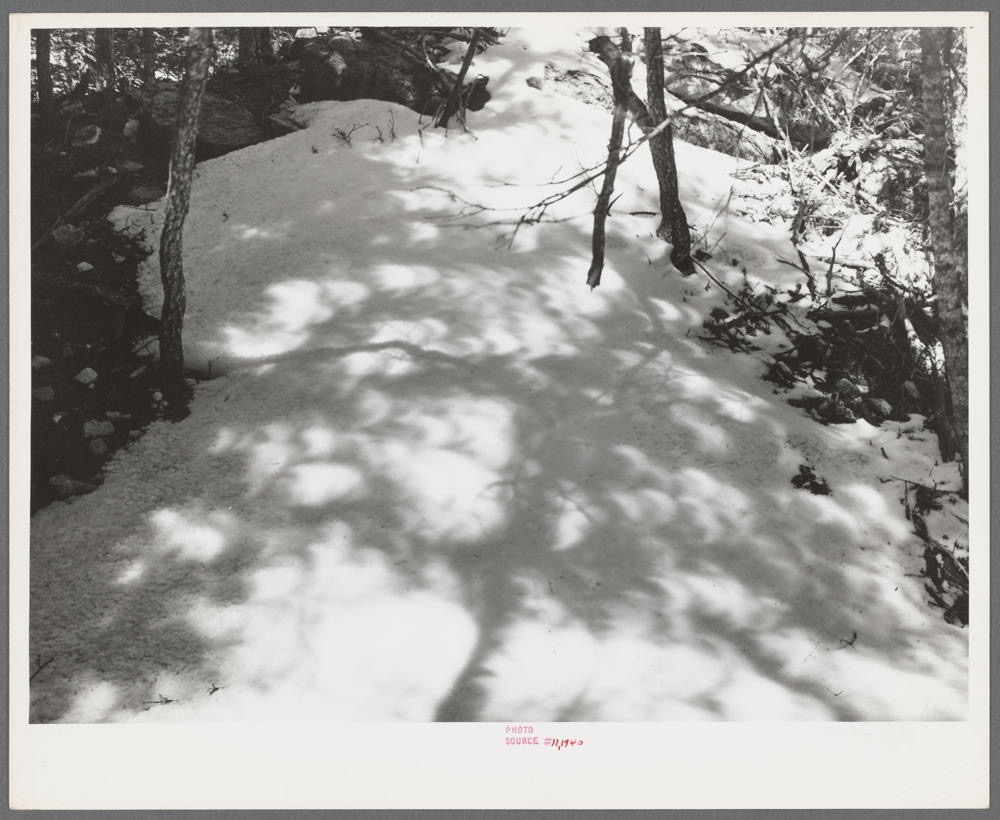
Russell Lee: Shadows on the snow in the mountains in Bernalillo County, New Mexico. The unusual crescent shaped light in patches in the shadows were caused by the eclipse of the sun (04/1940)
United States. Farm Security Administration (Sponsor)
The Miriam and Ira D. Wallach Division of Art, Prints and Photographs: Photography Collection, The New York Public Library. "Shadows on the snow in the mountains in Bernalillo County, New Mexico. The unusual crescent shaped light in patches in the shadows were caused by the eclipse of the sun" New York Public Library Digital Collections. Accessed February 15, 2026. (https://digitalcollections.nypl.org/items/ba84e0f0-4993-0137-010c-2971ff3091f6)
"We have become our own foreign adversary now."
Scrolling has seemingly suddenly taken an historically outsized role in current affairs. Hardly a newspaper can be published without some story harkening into some aspect of social media. Our president uses his own private social media platform as the primary conduit for disseminating government information. True to its social media nature, much of that information amounts to deliberate mis- and disinformation. In 2024, Congress passed, and President Biden signed into law, the Protecting Americans from Foreign Adversary Controlled Applications Act (PAFACAA). It was intended to address national security concerns regarding TikTok’s ownership by the Chinese company ByteDance. The act identified some critical risks that they insisted necessitated a forced sale or ban of the platform.
Congress feared that the Chinese government might employ its national intelligence laws to compel ByteDance to share so-called sensitive personal data of more than 170 million American users, including location and biometric identifiers.
Boobs&Sonsabitches
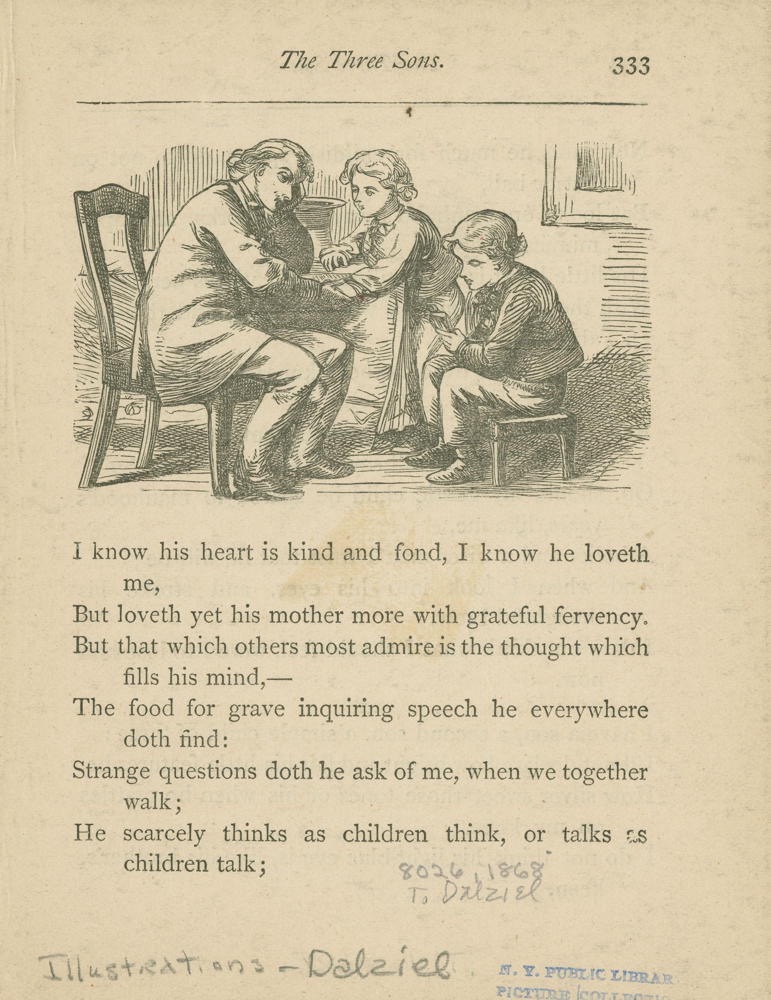
Thomas Bolton Gilchrist Septimus Dalziel:
Illustration of "The three sons" by poet John Moultrie (1868)
The Miriam and Ira D. Wallach Division of Art, Prints and Photographs: Picture Collection, The New York Public Library. "The three sons." New York Public Library Digital Collections. Accessed February 14, 2026. (https://digitalcollections.nypl.org/items/faee0690-c5bb-012f-199f-58d385a7bc34)
"These are who we’ve entrusted our precious attention spans to."
Who are these people we so easily entrusted with our precious attention spans? Most of us had no clue how precious our attention spans might have always been until technology made it practical to distract them. But even given that technology made mass distraction a practical possibility, who might find tapping into that an attractive occupation? Cue the thoroughly modern corporation. Such an occupation seems to demand a certain sense of presumption beyond what any technological capability might impart. A sense of privilege and self-possession might enable one to engage in any of the snoopier professions. One spies on lesser beings, not on equals; on fools. One must identify as a spy, an occupation that hardly lends itself to gentile persuasion. One lurks, often under misleading pretenses, and draws attention away from one’s actual operations. The providers of such services tend to grant themselves expansive labels: Meta, Google, Amazon, and X come readily to mind, names that provide little hint at what might pass for day-to-day operations going on under their hoods, but hint at the enormous and infallible.
They seemed the very soul of accommodating at first.
Weekly Writing Summary For The Week Ending 02/12/2026
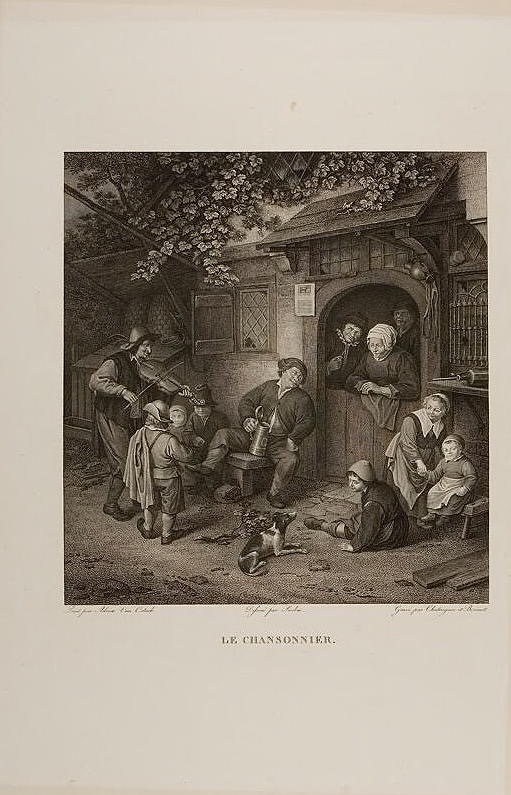
Alexis Chataigner: The Ballad Writer (19th century)
At the start of every writing week, I wonder what might rise to any level of importance that would warrant writing about it. This world has thus far been benevolent in that respect. I daren’t second-guess or stiff-arm whatever might manifest, lest I jinx the whole operation. This writing week turned out no different—a faith-based initiative executed by someone not necessarily infused with faith. I never know until I post, and often not even then, if I’m being true to my intentions and moving this curious ball further afield. I strongly recommend to anyone who might be interested that they consider becoming anything other than a writer, but if they choose writing—or writing chooses them—to befriend that urge. It’s either friend or enemy, neither obviously.
I started this writing week trying to distinguish between real and “Reel” life, not entirely successfully.
Predation
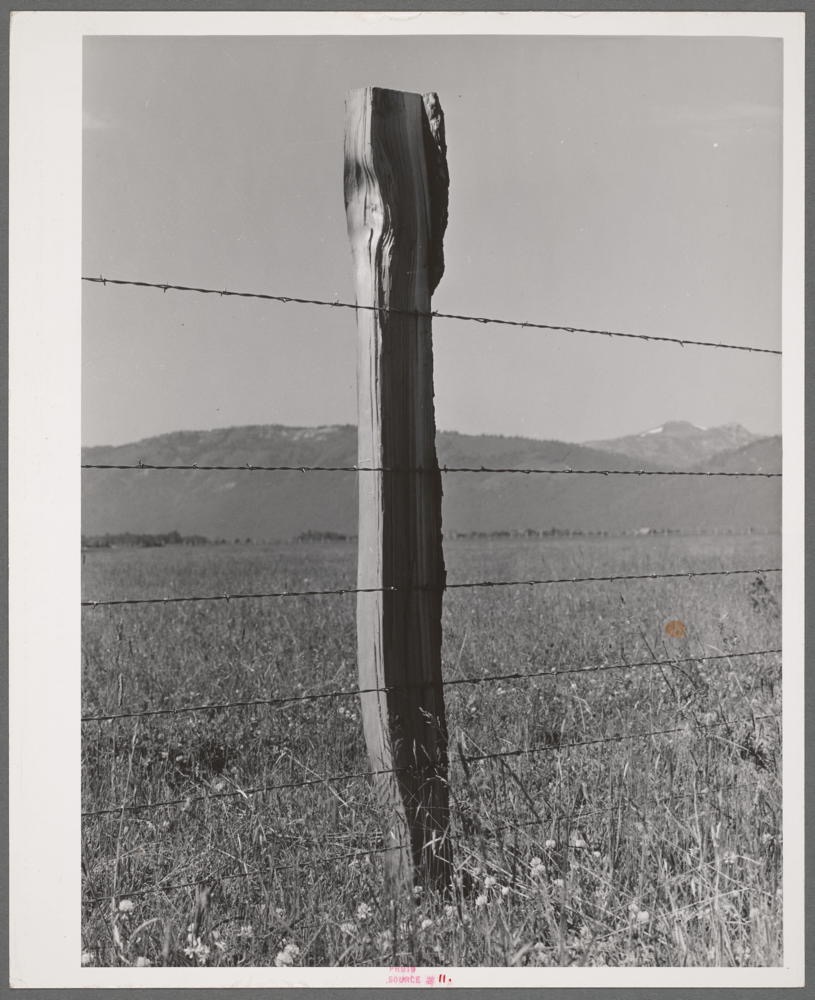
Russell Lee: Fence on Cruzen Ranch. Valley County, Idaho. AAA (Agricultural Adjustment Administration) has painted out this fence as being an outstanding type for ranch use. It keeps out predators (wolves, etc.), the wire is stapled loosely to allow for expansion (06/1941) United States. Farm Security Administration (Sponsor)
The Miriam and Ira D. Wallach Division of Art, Prints and Photographs: Photography Collection, The New York Public Library. "Fence on Cruzen Ranch. Valley County, Idaho. AAA (Agricultural Adjustment Administration) has painted out this fence as being an outstanding type for ranch use. It keeps out predators (wolves, etc.), the wire is stapled loosely to allow for expansion and" New York Public Library Digital Collections. Accessed February 12, 2026. (https://digitalcollections.nypl.org/items/f54aa060-84a2-0137-2a98-29e7943b6d77)
"Our lust for Utopian futures reliably produces their opposite."
In the beginning, there was a civilization aching to spawn a better one. It produced an infant with tremendous potential but carrying the same curse its parents held, for they were predatory, just as their offspring would most certainly be. Though they had long dreamed of transcending their nature to amplify their better angels, devils continued to haunt them. They had proven themselves capable of great compassion as well as appalling Predation, as would their offspring. The child seemed anything but wild at first, fragile and vulnerable, but it grew bolder as it came to cover more ground. It began in academia before breaking into commerce, then on into what it deceptively called Social Media. It remained capable of producing great goodness but often proved disappointing. It attracted trolls almost immediately, and frauds. Let the browser be wary, and they were.
The children came with their innocence intact, easy prey for even the laziest predators.
Content/Context
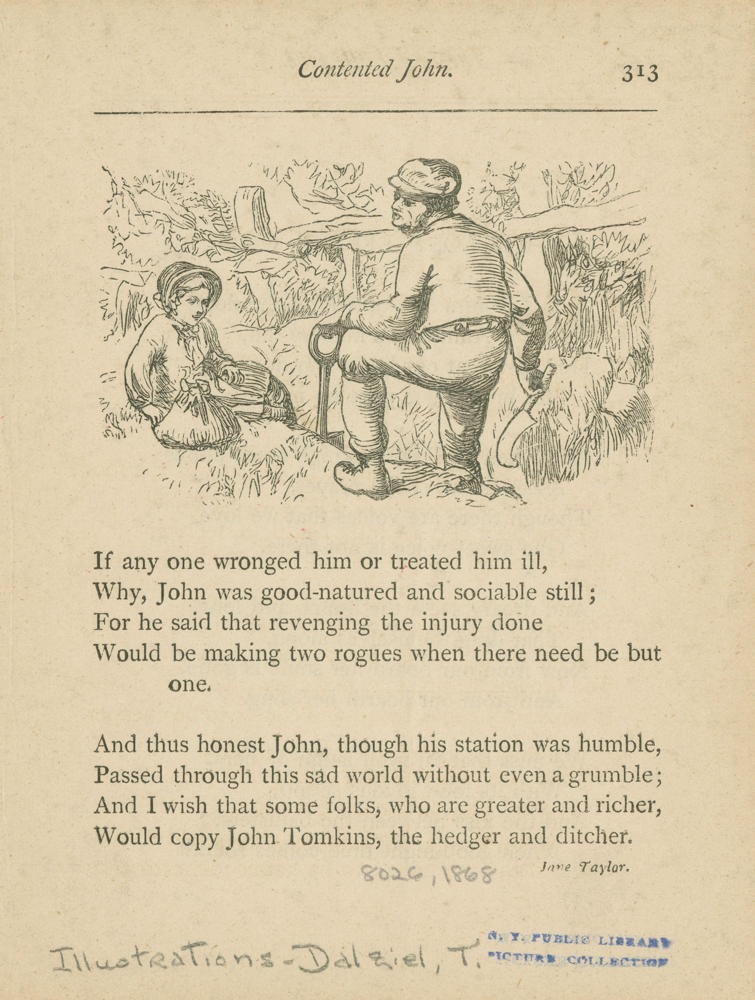
Thomas Bolton Gilchrist Septimus Dalziel, (Artist)
Dalziel Brothers (Wood-engraver):
Contented John. (1868)
Content: Illustration of "Contented John" by poet Jane Taylor.
Source Note: The children''s poetry. Being a selection of narrative poetry for the young; with illustrations by Thomas Dalziel, engraved by the Brothers Dalziel. 1868) Dalziel Brothers , Engraver. Dalziel, Thomas Bolton Gilchrist Septimus (1826-1906), Illustrator.
The Miriam and Ira D. Wallach Division of Art, Prints and Photographs: Picture Collection, The New York Public Library. "Contented John." New York Public Library Digital Collections. Accessed February 11, 2026. (https://digitalcollections.nypl.org/items/fa2a2ba0-c5bb-012f-990f-58d385a7bc34)
— — — —
"We can't seem to stop ourselves from coming back again and again to such contexts."
The plaintiff in the breakthrough social media lawsuit against YouTube and Meta, now taking place in Los Angeles, has introduced a novel approach to the proceedings. Internet “content providers” like Meta and YouTube have thus far operated under an act of Congress immunizing them from liability for content posted by third parties. Since both YouTube and Meta thrive largely as Context providers, with a few exceptions, they’ve survived accusations that their moderation excused offensive materials. The law explicitly assumes good faith moderation and that they cannot be treated as the publisher or the speaker of any information provided by another information content provider. This law, Section 230 of the Communications Decency Act of 1996 (47 U.S. Code § 230), has been referred to as the law that built the internet, for Congress created it to encourage the growth of the internet and to foster free expression. It has succeeded, though at some cost.
Many have expressed frustration when platforms like X, formerly Twitter, and Facebook, published lies and hate speech before elections, proclaiming exemption due to § 230 protections.
OpeningStatements
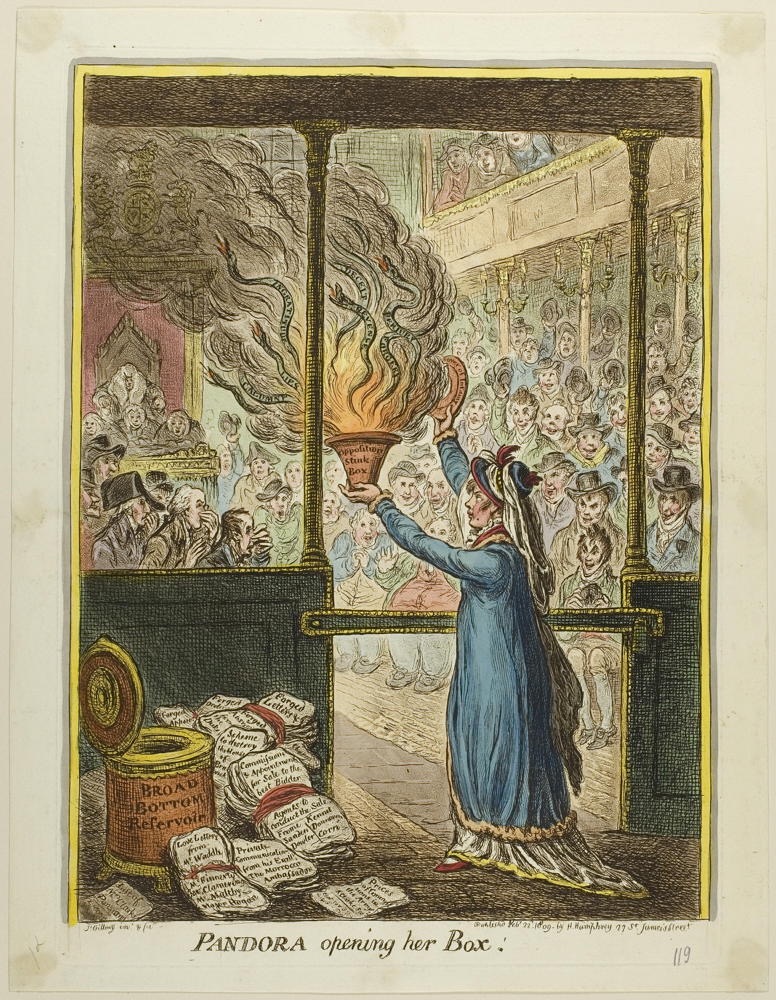
James Gillray: Pandora Opening her Box (published February 22, 1809)
published by Hannah Humphrey
"Progress moves more slowly than molasses."
The attorney for the plaintiffs delivered his opening statement in what PBS described as “a lively display.” He asserted that the case is “easy as ABC,” which he said stands for “Addicting the Brains of Children.” Simple as his case might be, he was nonetheless unable to complete his OpeningStatements before the lunch break. The defense, of course, denied every allegation, and so the process began. This is how we determine reality in the twenty-first century, just the way we did it in the prior centuries, for we demand proof, not necessarily beyond any reasonable doubt, but enough to compel the checkbooks to come out and cough up. Two of the wealthiest corporations in the history of corporations stand accused of deliberately engineering dependence in adolescents. I suspect they’ll be found guilty as charged.
We have always been cranky when it came to protecting consumers.
GreaterThan
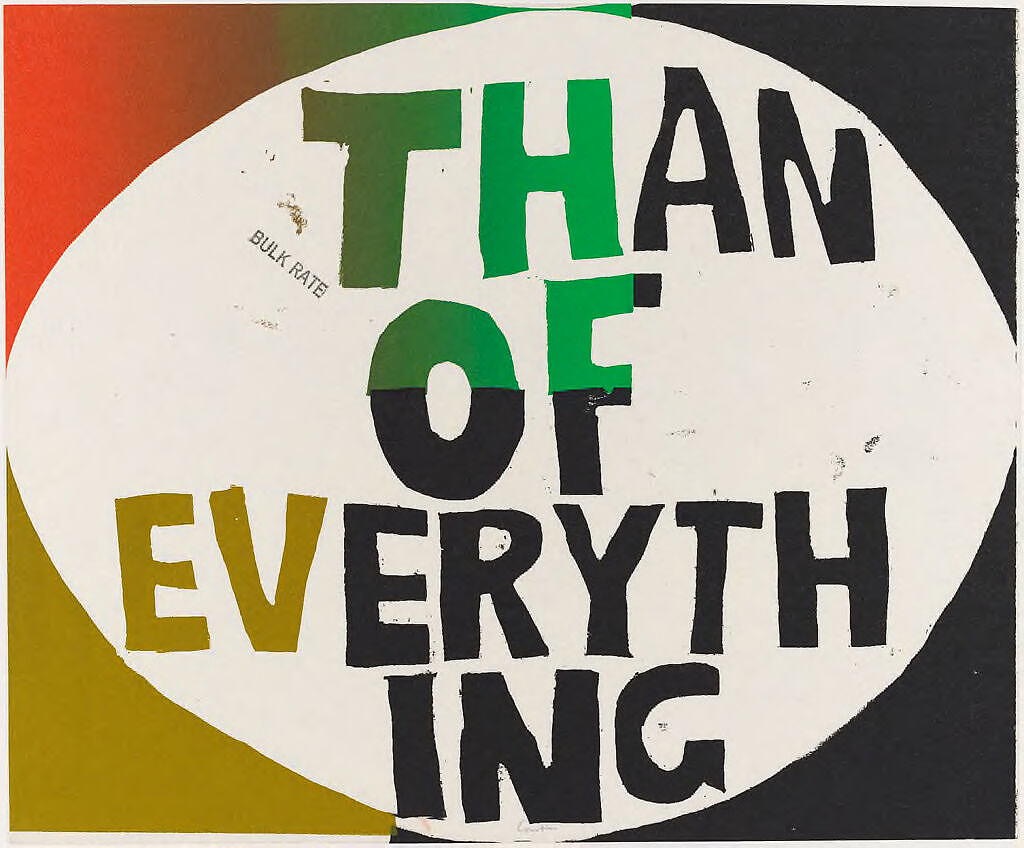
Corita Kent (Sister Mary Corita): than of everything (1967)
Inscriptions and Marks
Signed: l.c.: Corita
(not assigned): Printed text reads: THAN OF EVERYTHING
BULK RATE [stamped in black ink]
© Courtesy of the Corita Art Center, Immaculate Heart Community, Los Angeles / Artists Rights Society (ARS), New York
"(They don't speak the language.)"
I should have been more careful with how I characterized social media, for nothing was ever quite what it appeared to be. We each feature layers, each consequential but no single one ultimately definitional. We are always and inevitably a melding: yin and yang, helpful as well as utterly helpless, useless yet ultimately useful. Our nobility lies in precisely these dichotomies rather than along any margin or within any conclusion. Some days, perhaps even most days, social media sure does seem beyond redemption, yet abandoning it, even for its proven shortcomings, could only erase any possibility of any hope of redemption. Repeating ad nauseam, which might be the only way any such defensive strategies ever get repeated, creates a world of formerly hopeful alternatives, discredited in practice. We inevitably create a world of also-rans and disappoint ourselves.
Hope was never intended to resolve itself. It exists solely for its own sake.
Checkiningin/CheckingOut
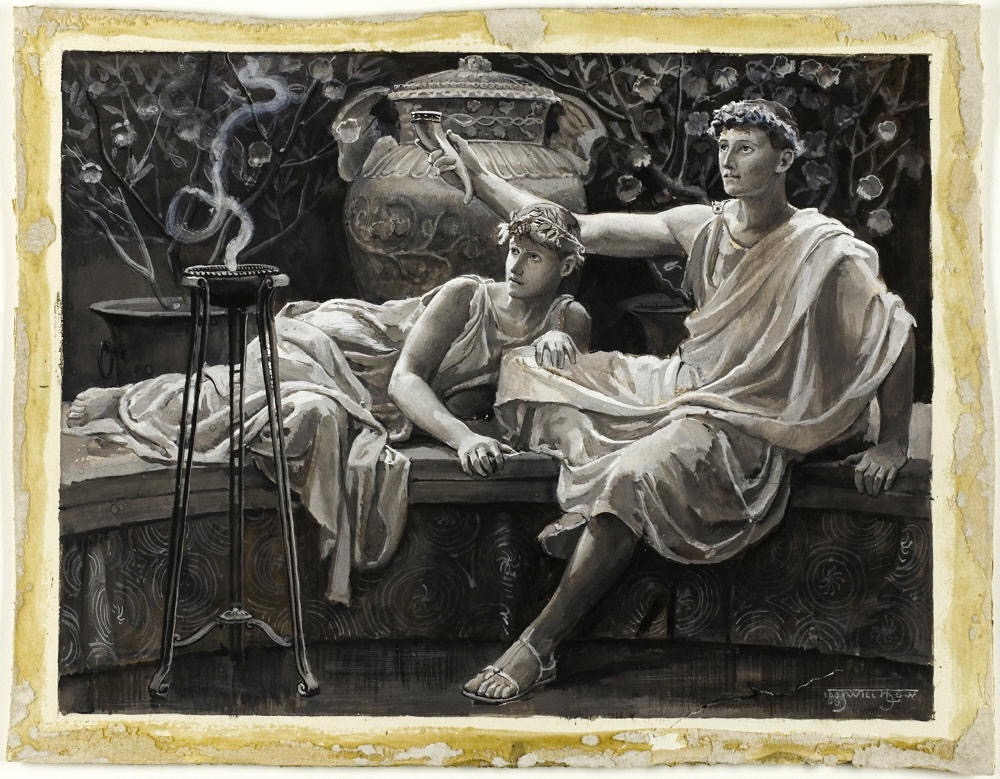
Will Hicok Low:
Checking His Love Trance, a Cup He Took Full Brimm’d (1885)
"I still feel compelled to check in from time to time
and seem to possess no reliable defence against Checking Out before I exit."
It seems to be the nature of social media that the mere act of checking in insidiously transforms into a form of checking out. All intentions aside, once inside, things naturally guide the eye to other, often unrelated, entries, before a trance completely overtakes the proceedings. I might consequently feel lucky to make it back out of there alive, though I sometimes feel as though I exclusively exit as some form of undead. Not quite dead yet, I wash up like an exasperated, if better-informed fish. I will have inevitably gained some remarkably arcane knowledge, often the kind with no obvious practical application, though somehow nonetheless supremely satisfying, as if I’d gorged on popcorn or salad dressing. My palate will feel temporarily satisfied without growing much more sophisticated.
My CheckingIn/CheckingOut boundary becomes my primary dichotomy. I seem unable to maintain a stable relationship between seeking important information an
ReelLife
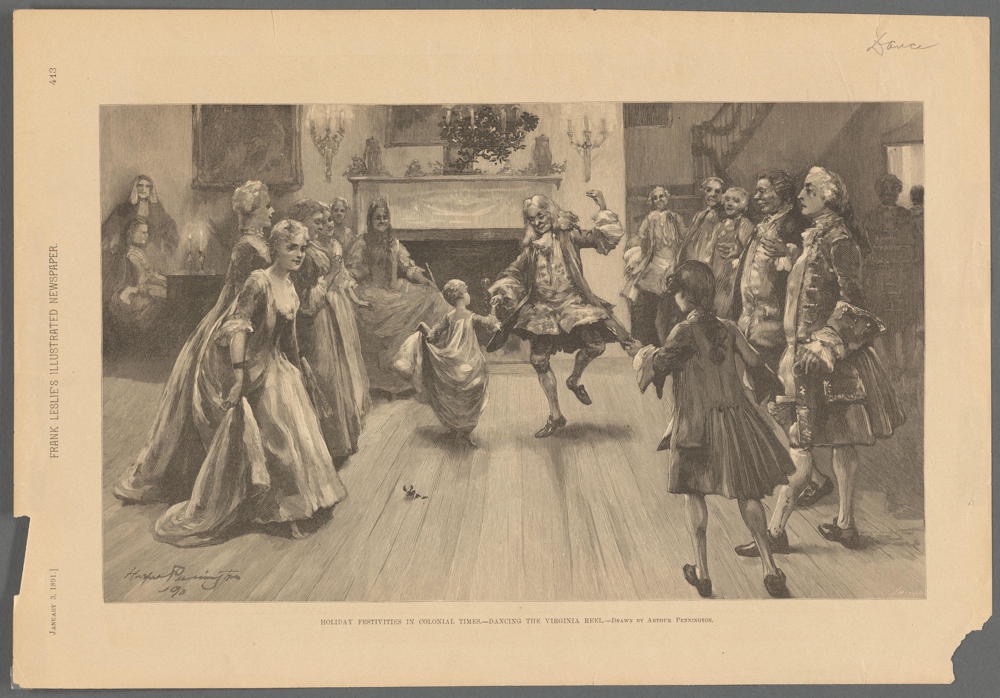
Harper Pennington: Holiday festivities in colonial times; dancing the Virginia reel (1891-01-03)
COLLECTION
Prints depicting dance
Theatrical dancers in groups or more than two but not in a ballet or theatrical dance scene
Josephine Butler collection of dance prints from illustrated periodicals
Jerome Robbins Dance Division, The New York Public Library. "Holiday festivities in colonial times; dancing the Virginia reel" New York Public Library Digital Collections. Accessed February 7, 2026. (https://digitalcollections.nypl.org/items/24c44fb0-f763-013b-db97-0242ac110002)
“Maybe all life qualifies as representational,
merely so many shadows on those cavern walls.”
Real life has always paralleled unrealistic representations of itself. The differences were explained as poetic or metaphoric, since no mirror image can ever be true to its image’s source. The mirror fiddles with perspective, but it provides access to experiences otherwise impossible. We somehow thrive in spite, or perhaps because of, obvious imperfections. The purists among us might deride the representations as not being “real”, though they certainly inhabit a 1820s real-enough space of their own. A novel might be fictional but still adequately-enough represent its subjects.
Social media’s little different, though it does prominently display some rather glaring contrasts.
Weekly Writing Summary For The Week Ending 02/05/2026
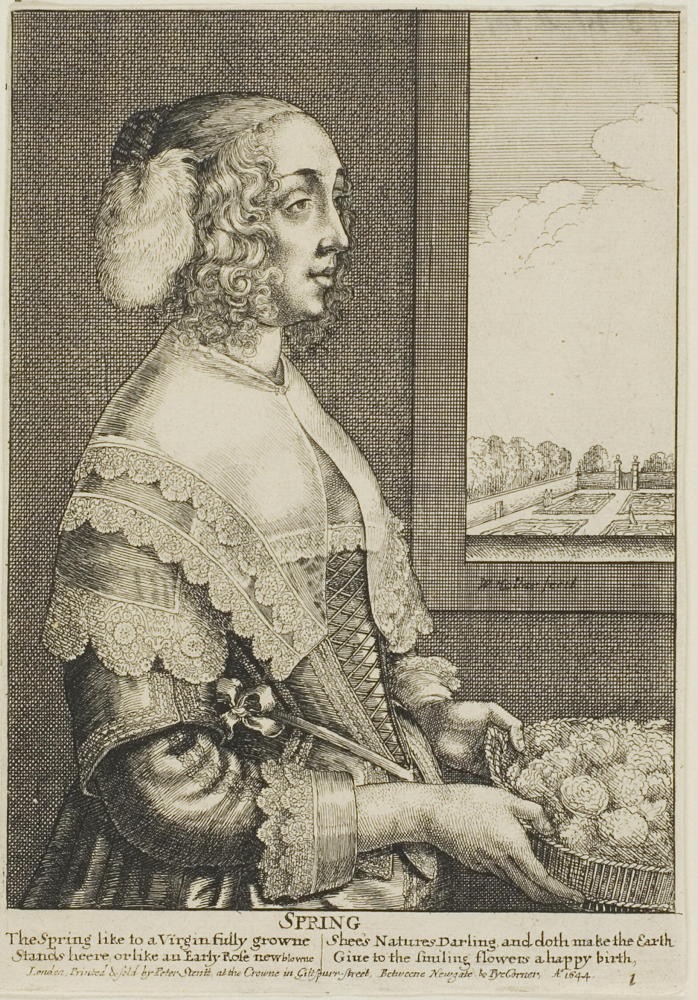
Wenceslaus Hollar: Spring (1644)
This was the writing week I dreaded since at least Christmas, though I found ample reason to celebrate before it finished. I discovered a fresh holiday, one capable of blessing rather than reliably damning me. This was a week of revelation. I conceded this week, with the petunias still alive and roses budding, that this might actually come to be the winter where winter never visited. We’ve had a few frosty mornings, but nothing sustained enough to set our gardens very far back on their knees. I mowed lawn this week.
I continued reframing my scrolling habits by ReadingBooks. I dabbled in a little StrategicForgetfulness, and stumbled into genuine realization by Trolling instead of scrolling my social media for a change, resulting in some serious change.
DigitalDespots
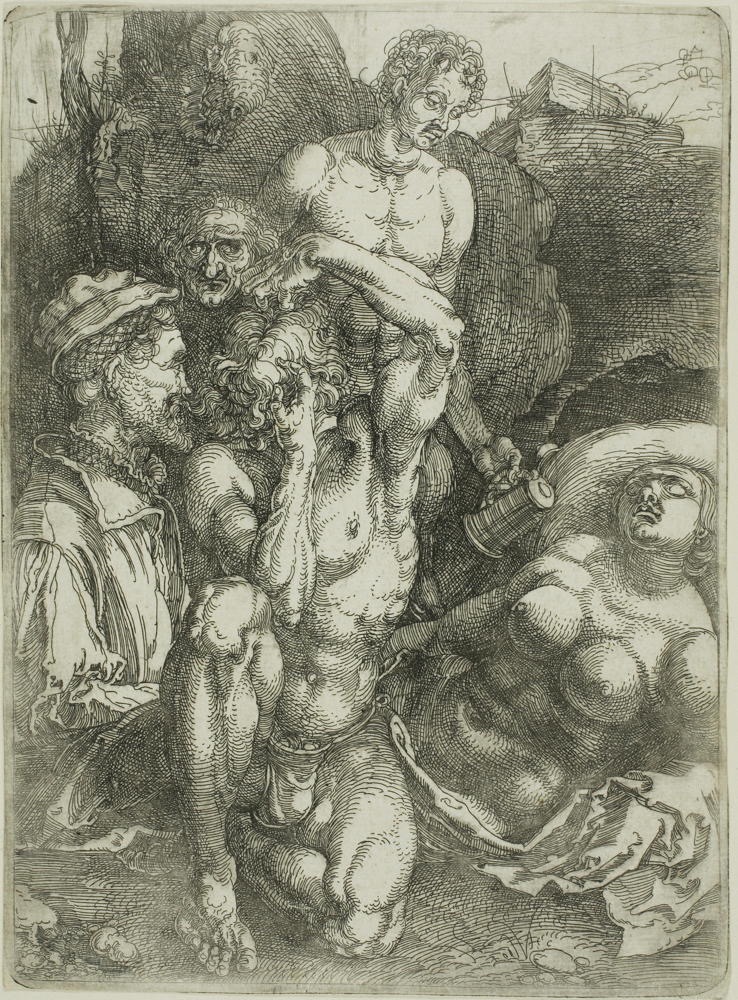
Albrecht Dürer: The Desperate Man (1515–16)
"There seems to be few viable alternatives. Caveat emptor here."
Was it always the case that the exercise of free speech rights attracted dedicated despots? This seems to be the case with our ‘internets.’ That space seems brimming with budding as well as practiced despots plying their slippery trade. The ratio of authenticity to absolute bullshit seems impossible to assess, but the presence of despotism there seems, finally, to be a given. It’s not just the Russians playing poltergeist, either, but what might appear to be upstanding business and political figures. Who isn’t suspected by someone? Whose motives are pure? The chief difficulty of any free speech medium might be that it encourages people to speak freely rather than circumspectly. Free speech has never been the same as loose talk, and social media seems to tolerate altogether too much loose talk. Is this the proper price for this franchise?
The greatest gift The Gods gave humans was the blesséd inability to read each other’s minds.
Macrocosm
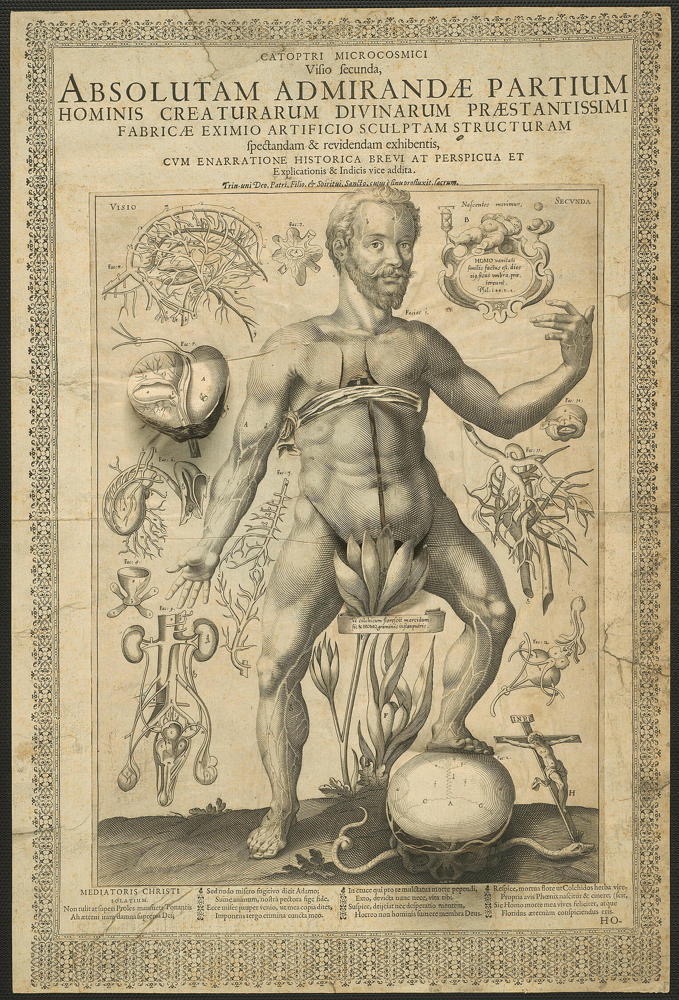
Lucas Kilian: Second Vision, from Mirrors of the Microcosm (1613)
"On my better days, I catch reassuring glimpses of it."
In the beginning was an idea, a concept expansive enough to encapsulate everything. As that idea spread, it began decomposing into constituent pieces, not because these were necessary, but because each represented choices, and because they seemed to better serve somebody or some constituency. The cynical, as they often do, eventually co-opted the more idealistic. They insisted that a system capable of connecting could easily accomplish division. They proposed creating profit centers. They encouraged shady operators to promote patent medicines and conspiracy rumors, certain to attract and entertain the least discerning. They encouraged trolls. The most progressive invention in the history of humanity became the primary engine of repression. Social media retains the DNA of its hopeful founders, though its stewards long ago largely chose cynicism because it offered greater revenue potential. Have we forgotten the originating whole? Has the medium lost its soul?
Each platform serves as a microcosm of the originating Macrocosm’s whole.
EssentialServices
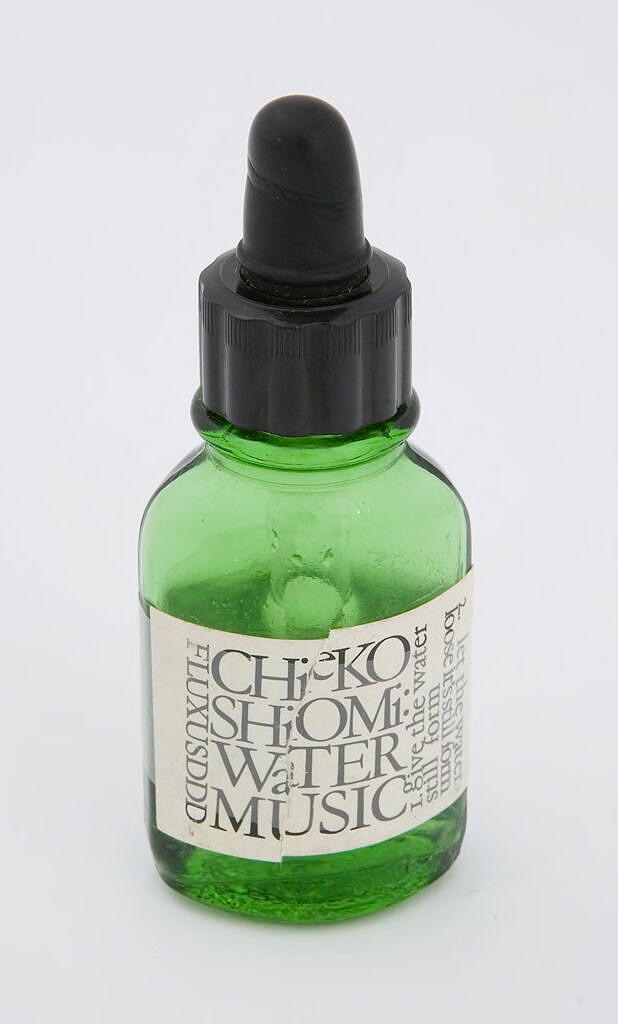
Mieko (Chieko) Shiomi, George Maciunas: Water Music (1964)
"Scrolling can serve some incredibly useful purposes, sometimes even EssentialServices."
I sincerely apologize for starting this series under what I should have known would turn out to become false premises, but each of my series so far has eventually stumbled into this same realization. I might conclude that non-false premises can’t coexist with serious series writing, since some of their purpose should rightfully and properly remain in actually discovering something. I couldn’t have known precisely where the falsity might emerge, only that it would inevitably emerge and, in doing so, turn me into, if not a liar, then a perveyor of partial truths. Absolutists, those who only peddle in complete truths, might not actually exist, so at least I might consider myself in reasonably good company. If my purpose was to discover something, I required some partially-baked basis upon which to initiate my search.
The issue might never be whether premises prove to be false or not.
Trolling

Marianne Stokes: Candlemas Day (1901)
"Her influence seems as eternal now as the Yew, and as paradoxical, too."
Today is the day I’ve been dreading since at least Christmas. For the last four years, I have anticipated this day with deep gloom, recognizing that there would be no way to sidestep the experience. It would come, wreaking havoc, then depart, leaving me worse for the experience. This seemed to be my curse, since this date will forever be the anniversary of my darling daughter Heidi’s suicide. Speaking with an old friend a week ago, I recounted my dreary January experience. He advised that I find some way to celebrate on that day. Celebrate her existence rather than her absence, he advised. February’s full of celebration days: Groundhog Day, Fat Tuesday, Ash Wednesday, and Presidents’ Day. It’s Black American Month, too, and Heidi was always touting how she was a citizen of the world, not merely an American. Now, she’s a citizen of the universe, and her presence continues to stick with me, her family, and her many colleagues. She’s become a force of history.
That she chose February 2 to depart this realm struck me as painfully ironic, for it seems to be the date that celebrates the promise of resurrection.
StrategicForgetfulness
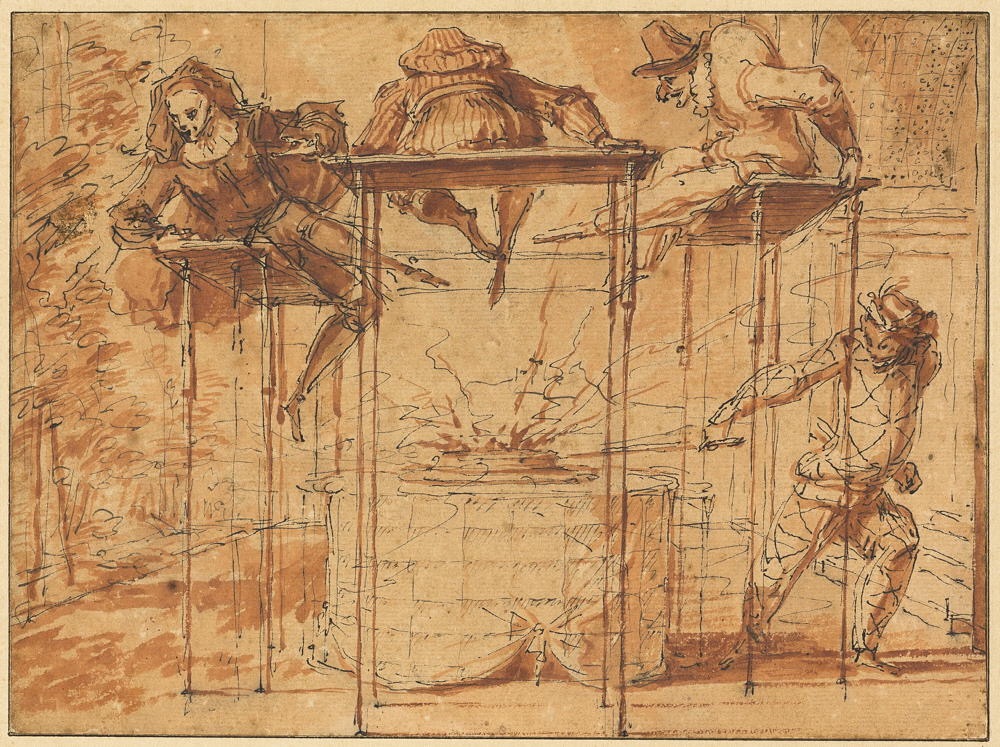
Claude Gillot: Harlequin Espirit Follet: The Comedian’s Repast
(c. 1700–1715)
"…forgetting my phone on purpose when I'd most often accomplish that by default."
However I might try to slice the challenge, Unscrolling still seems difficult. It carries the usual difficulties associated with trying not to do something, a philosophical impossibility if not necessarily a physical one. It might just as well be impossible for all the success I seem to engender whenever attempting to accomplish it. Not even my very best intentions, freshly shaved, showered, and dressed in clean jeans, seem capable of succeeding very often, and even then, it seems more accidental than intentional. Still, I accept accidental as a valid tactic, except I cannot will an accident any more than I seem to be able to not do something as seemingly innocuous as scrolling. Maybe I’m hopeless.
Hopeless or not, I don’t seem to yet be beyond leveraging my budding forgetfulness towards this end.
ReadingBooks
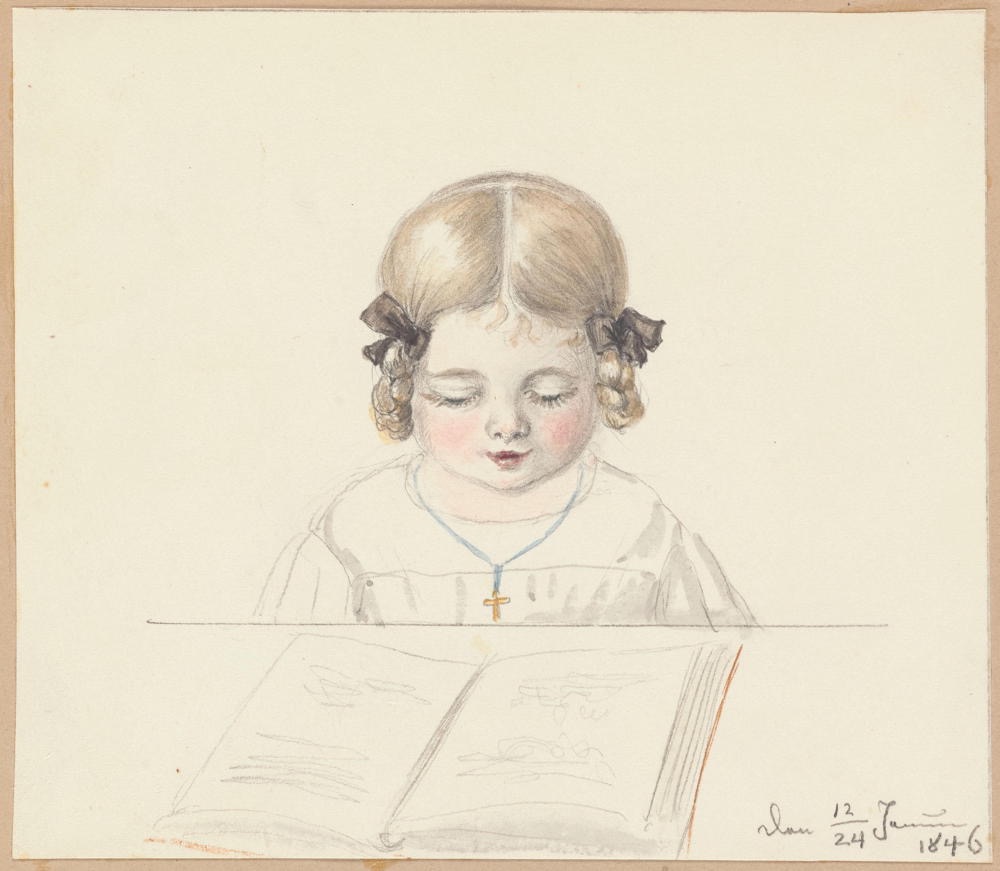
The Belevskii-Zhukovskii Collection of manuscripts, photographs,
drawings, books and printed ephemera
Vasilii Andreevich Zhukovskii family album:
Girl (Alexandra) reading a book (1846)
The Miriam and Ira D. Wallach Division of Art, Prints and Photographs: Art & Architecture Collection, The New York Public Library.
"Girl (Alexandra) reading a book" New York Public Library Digital Collections. Accessed January 31, 2026. (https://digitalcollections.nypl.org/items/0a3ba380-6a47-0135-7c5f-1dfb8ba095ee)
"I will revert to the literary for a change."
Unscrolling seems to demand alternative activities. If I’m dedicating myself to at least reducing my scrolling, to what might I reasonably assign the time I gain from the shift? Modern life has always insisted upon some attention being directed toward visual engagement. This might include anything from theater to ReadingBooks, but are either of those occupations really any different than scrolling? I mean, they can both serve as distractions and might well become problems if over-engaged in. Right? Television, in its infancy, was feared for its addictive trance-inducing qualities. Theater, too, might serve as an escape from rather than into anything useful. I contend that scrolling social media serves a unique and as a uniquely dangerous purpose, wholly unique from any of its analogue precursors. It’s different.
Social media scrolling seems to be an infinite activity.
Weekly Writing Summary For The Week Ending 01/29/2026
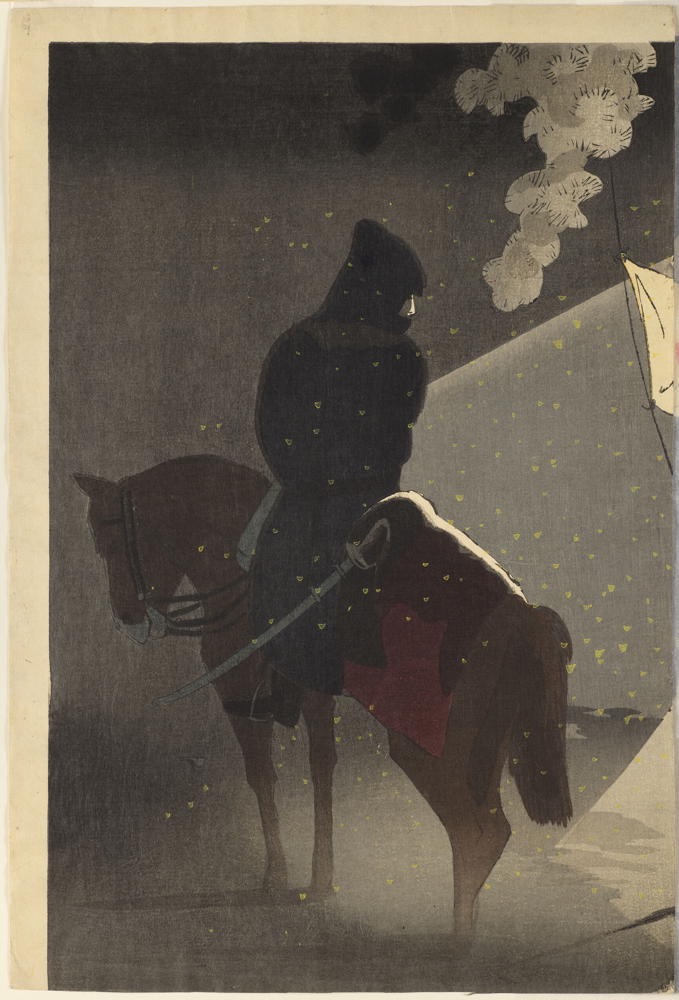
Kobayashi Kiyochika 小林清親: Braving the Bitter Cold,
Our Troops Set Up Camp at Yingkou (1895)
Published by Matsuki Heikichi 松木平吉 (1836 - 1891)
I wish every writing week would leave me feeling as though I’d discovered as much as I managed to stumble upon this writing week. I troll for insight, but I’m not always rewarded for my efforts. Writing this series feels very much like fishing. Some streams, some weeks, hold many fish, while others prove to be fallow. I’m not quite foolish enough to think of myself as a masterful fish attractor. I show up, mustering some hope for the best, and I feel genuinely blessed when my gumption’s rewarded. This week seemed a mother lode in comparison to most.
I sense my originating presumptions shifting, as any originating presumption should.
Civil-Liability
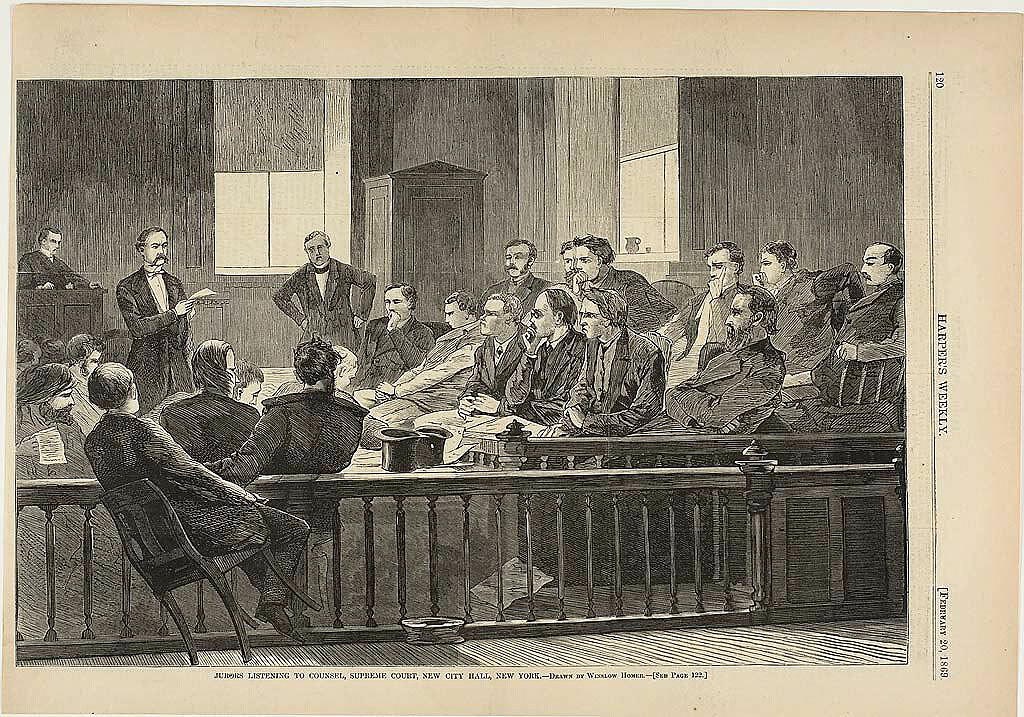
Winslow Homer: Jurors Listening to Counsel,
Supreme Court, New City Hall, New York (published February 20, 1869)
"Stay tuned. We all might end up on the payday side of some future class action."
This week, in January 2026, marks the start of what might prove to be a new era in the history of social media in the United States. A civil suit brought by a 20-year-old woman, identified as “K.G.M.”, who created a YouTube account at age 8, then joined Instagram at 9, Musical.ly, now TikTok, at 10, and Snapchat at 11, finally comes before a jury. Her lawsuit claims she became addicted to the social media sites as a child and experienced anxiety, depression, and body-image issues, including attempted suicide, as a result. TikTok and Snap, the parent company owning Snapchat, settled with the plaintiff before trial began. The remaining defendants will claim protection under a federal shield law, Section 230 of the Communications Decency Act of 1996, that has thus far protected them from liability for what their users post online.
K.G.M. seeks monetary damages and will reportedly present a case based upon similar arguments that resulted in huge settlements against Big Tobacco in the 1990s, when companies like Philip Morris and R.J. Reynolds were accused of hiding information about the harms of cigarettes.
Dooming
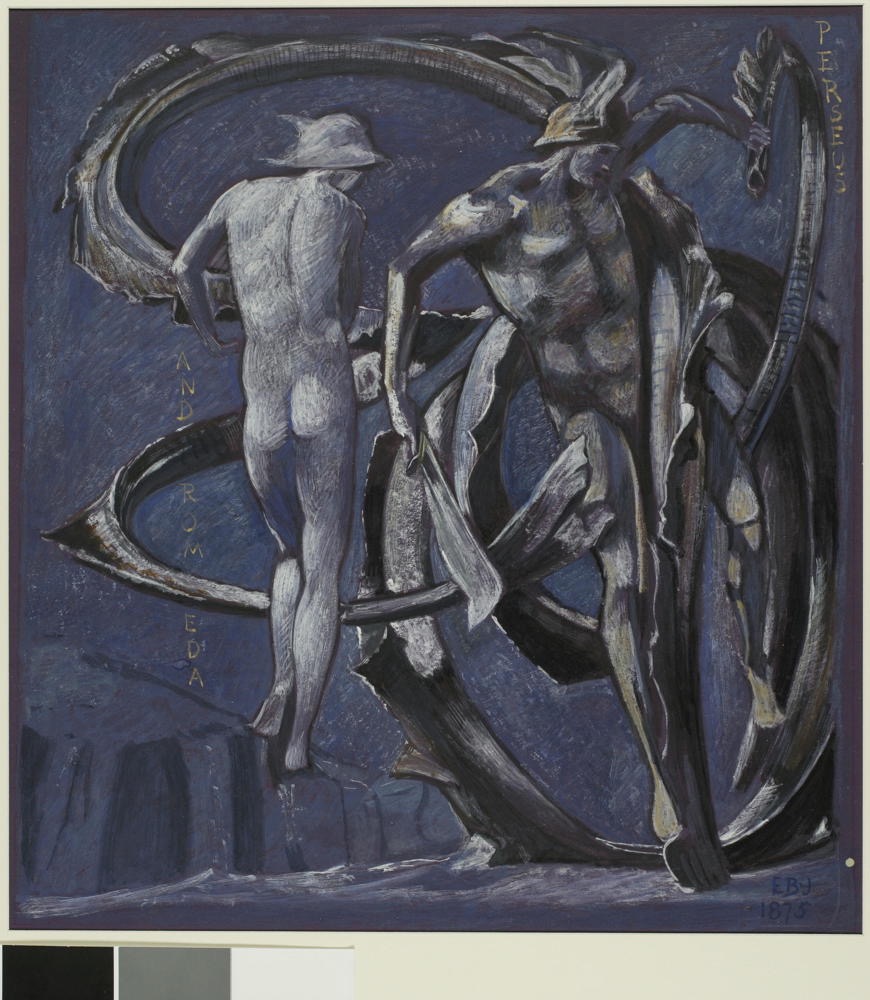
Sir Edward Burne-Jones:
Perseus and Andromeda, study for The Doom Fulfilled (1875)
"Dooming seems to inevitably become self-fulfilling."
As our economy slumps, one segment remains robust. The Doom Industry has been achieving new heights monthly, as each successive performance outstrips the previous. The market for handbaskets has likewise proven robust, with demand up and supplies reduced in each of the prior twelve months. Both the doomposting and doomscrolling segments of the industry have been thriving, thanks in no small part to our administration that continues to steadfastly—some suggest valiantly—refuse to properly administer even the smallest functions. No analyst needs to dig very deep to find reinforcing data. Every headline, as well as each obscure footnote, screams demise. If only we could tout such performance from the balance of our economies. Unfortunately, we cannot.
The Doom Industry grew in parallel with the internet.
OutCivility
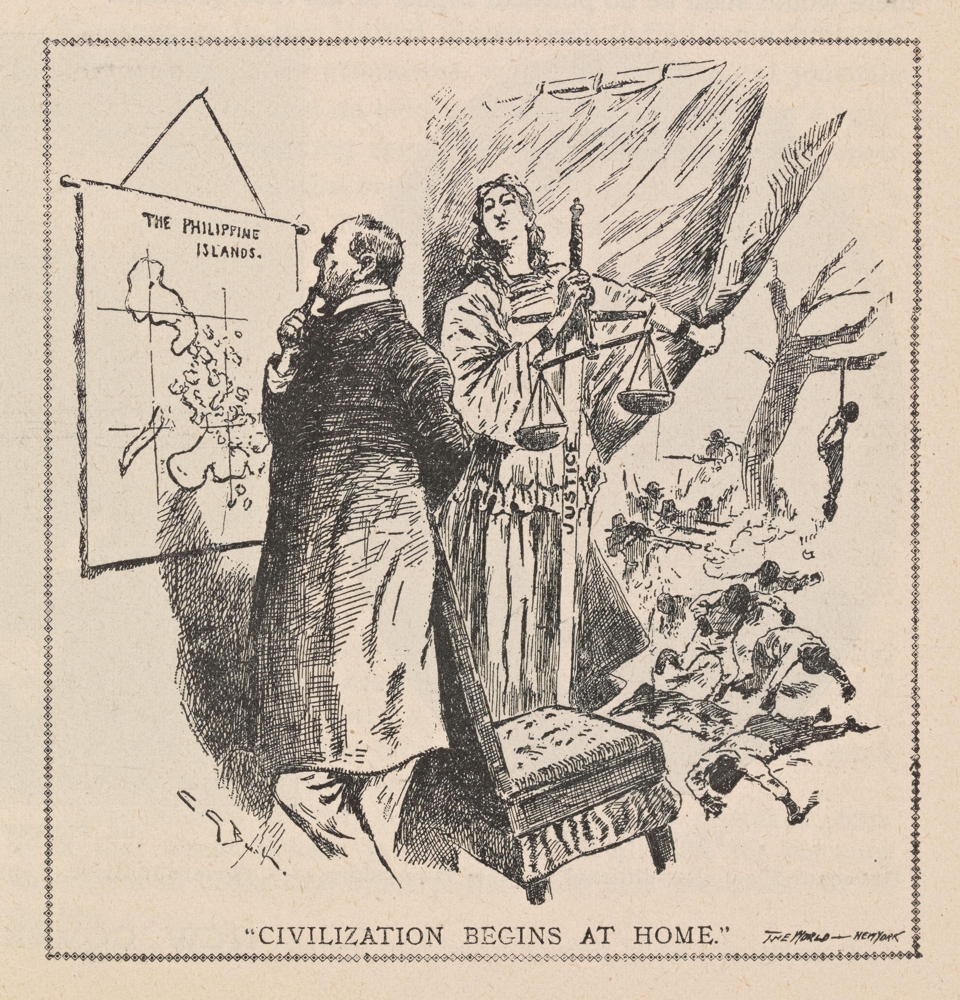
Charles Green Bush: "Civilization begins at home." (11-26-1898)
General Research Division, The New York Public Library. (1898 - 1938). "Civilization begins at home." Retrieved from (https://digitalcollections.nypl.org/items/baced180-c607-012f-777f-58d385a7bc34)
"Civility can only be meaningfully measured in eons.
It inescapably tries our patience."
Perhaps the major complaint I hear against social media in general and scrolling in particular harps about the incivility found there. People, freed of face-to-face constraints, speak altogether too freely, as if civility didn’t actually matter, as if the rules of engagement had suddenly been suspended. This complaint seems unquestionably true. We do do that to each other: sister to brother, neighbor to neighbor, stranger to stranger. Who hasn’t failed to catch themself before committing some public truth probably much better left unspoken? Who hasn’t had to crouch way down, failing to avoid some judgmental frown, or been the source of the same aimed toward some other sinner, as if they’d never failed in public themself. We seem to have known no shame when we shame, to alone stand innocent of anyone’s blame. The primary criticism of social media might be that it too effectively amplifies our hypocrisy.
Leaving Facebook won’t cure this because Facebook was never the cause.
TheCuriousCase...

Honoré-Victorin Daumier: The Print Amateur
[L'Amateur de Gravures / Les Curieux à l'Etalage…]
Alternate Title: The Curious at the Display (c. 1855)
"A marriage created in purgatory."
During The Damned Pandemic, I discovered Heather Cox Richardson’s reassuring voice. In daily “letters,” which she posted to then-budding social media, she debunked the craziness espoused by the then-inhabitant of the Oval Office. I found her to be quietly reassuring and authoritative. She brought her deep understanding of history to the party, usually leaving me feeling better oriented as to how my situation fit into broader historical contexts. She became irreplaceable.
With that incumbent’s surprising return to elected office, her voice took on fresh vehemence, since said incumbent immediately set about trying to make America Stupid Again again.
InHere OutThere

Thomas Nast: Out of the ruins... (10-18-1873)
"I seem satisfied to accomplish no more than to gape at shadows playing on some utterly imaginary wall."
Social media scrolling fiddles with the In Here/Out There boundary. Firmly focusing on the media via any device induces a convincing illusion of In-Hereness. It sure seems then as though the real world—by which I refer to the flesh and blood world—was Out There and the distantly disembodied virtual world was the more intimately personal one. This effect might amount to little more than a figure/ground misattribution if it weren’t for the broader and deeper ramifications stemming from this situation. I guess that video games can induce the same effect, where their user inhabits the projected world more confidently than they inhabit their own body. Normal activities of daily living might go begging in favor of feeding the non-sentient presence. Schools have begun confiscating students’ cell phones in acknowledgment of just this influence. For whatever reason, virtual existences seem to be terribly attractive in ways that can ultimately prove to be self-destructive.
The self in this face-off voluntarily surrenders to its virtual counterpart.
JungleTelegraph

Israhel van Meckenem the Younger:
Wild Men Climbing to the Flower of Love (15th-16th century)
"What harm could it possibly do to learn that Tarzan's on the move again?"
Somewhere within every Tarzan movie ever made, some group would go on the move. Background jungle sounds would increase, but not so much that any non-native would notice. Every inhabitant seemed to get involved. Elephants would trumpet and monkeys chatter, lions would roar, and alligators splatter. The purpose of the commotion would be a form of primitive communication that seemed to transcend language, for every animal: human, hippo, and reptile, seemed perfectly capable of passing on the message, which would remain deeply encoded. Tarzan, of course, having been raised in the jungle, was perfectly conversant, so he could translate. He knew, for instance, when the bad guys began their inevitably failing pursuit because his animal allies would keep him informed. When he’d swing off on his conveniently separated vine highway, word would spread so his passage wouldn’t surprise anybody but the bad guys.
Our social media serves as our JungleTelegraph today.
Weekly Writing Summary For The Week Ending 01/22/2026

Lewis W. Rubenstein:
Scene from the Niebelungen Legend: Alberich's Hand (1935-1936)
This writing week found me even more fully engaging in the curious occupation of Unscrolling. I began the week KillingTime, an activity I characterized as sometimes necessary, perhaps essential. I next noted the Spurious Premises social media offers, though they sure don't seem all that spurious when I encounter them while scrolling. I noticed and reported on how scrolling seems perfectly suited as an activity for the Powerless, and that, perhaps, it's "just" a symptom rather than a problem. I then declared the enormous difference between simply ceasing and genuinely Desisting, insisting that desisting often proves impossible. I introduced the Witness/Participant balance, which seems currently out of balance to me. I ended this writing week insisting that scrolling social media amounts to spying on myself. Thank you for following along as I try to understand this obsession we seem to so vehemently rely upon.
Surveillance

Simon Guillain: "A famous spy!," plate 77.
Series/Book Title: Cries of Bologna [Una spia famosa] (17th century)
"We probably deserve anything stemming from our sorry reasoning."
In late April 2024, President Biden signed the Protecting Americans from Foreign Adversary Controlled Applications Act, a bill passed by both houses of Congress in response to the abuses of TikTok’s Chinese parent company, ByteDance. The Act insisted that the company had systematically spied on American citizens, using TikTok as its medium of intrusion. The Act banned TikTok in the United States after January 20, 2025, the date of Trump’s second inauguration. The Trump administration refused to enforce the law as one of its first formal acts, later forcing ByteDance to sell TikTok in a transaction from which Trump was reported to have profited. Consequently, TikTok has gained even greater presence in our social media environment, without reassurances that it won’t continue its Surveillance on American citizens, and without an ounce of enforcement of the provisions of that act of Congress.
Perhaps the most disturbing aspect of our national scrolling habit might lie in this underlying, corrupting quality.
WitnessProtection
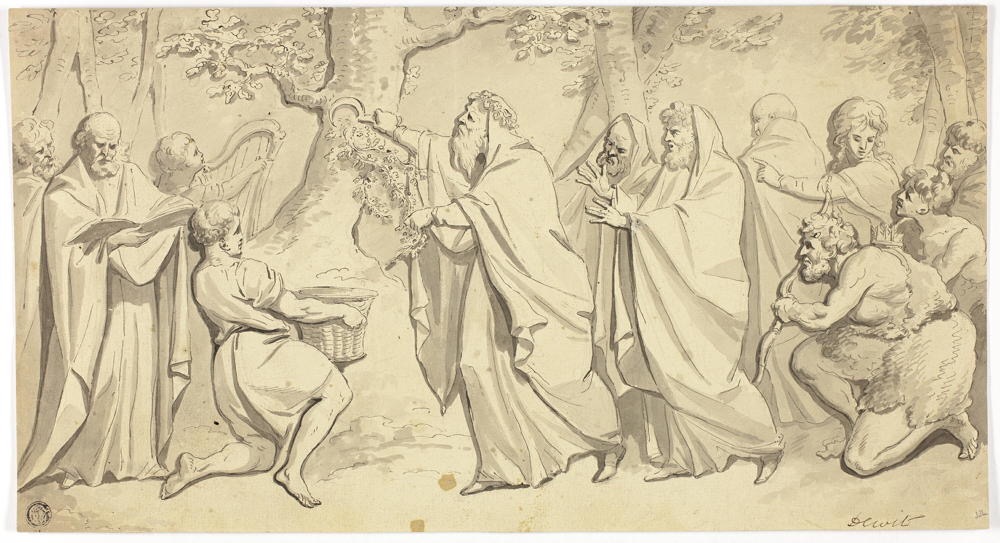
Attributed to Jacob de Wit: Druids Cutting Mistletoe
(Artist's working dates 1715–1754)
"…what once seemed fair enough and fairly well balanced now sure seems fairly poorly balanced."
I might be destined to play catch-up for the rest of my life with little hope of actually catching up to anything. I hold the sorry distinction of having imprinted on ways of existence that no longer exist, and very likely will never exist again. I, myself, am not yet obsolete, but many of my understandings and coping mechanisms have definitely gone the way of the goony bird. I remember, for instance, a certain balance between my role as witness to these proceedings and my role as a participant therein. In those days, I achieved balance through much more participation than through witnessing. Witnessing was more of a passing part of my existence. I was much more of a participant. Television, of course, steadily eroded the historical boundary between participant and observer, even more determinedly than had radio before it. I remember my elders warning me, much as I later warned my own progeny, that they were in danger if they spent too much of their potential participatory time decomposing, witnessing in front of the boob tube.
The phone in each of our pockets makes the old black-and-white boob tube look absolutely brilliant, and our early witnessing in front of it seems downright participatory in comparison.
Desisting
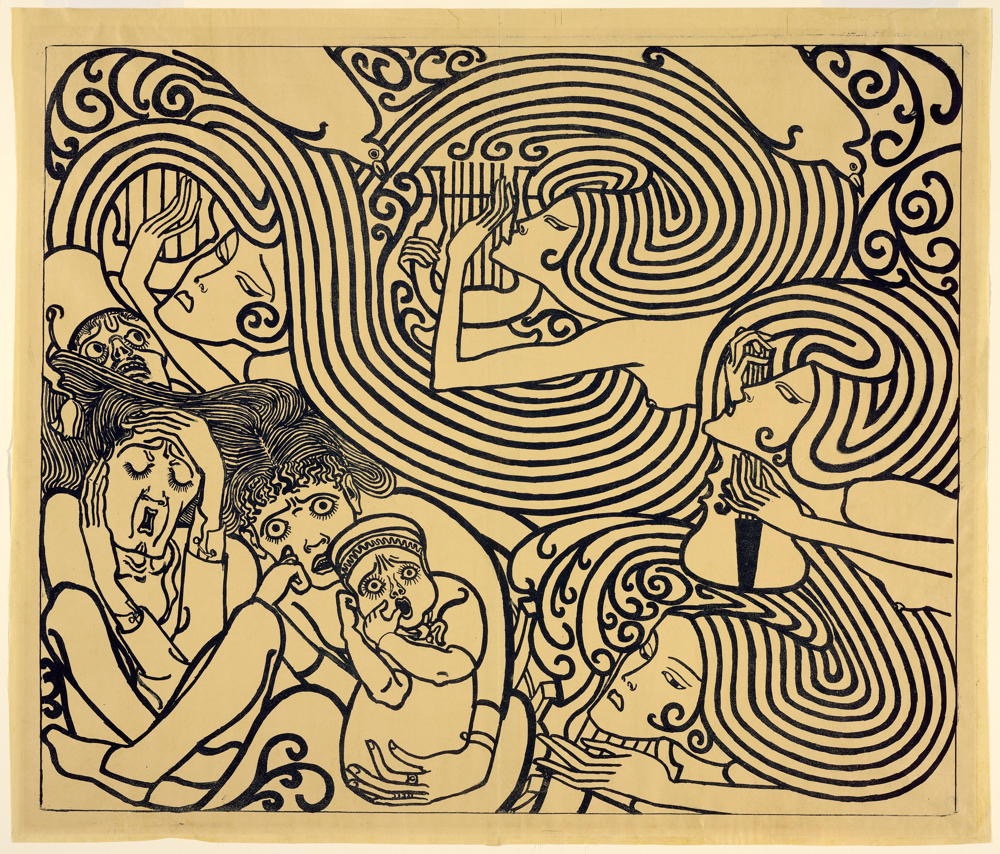
Jan Toorop:
Image Design for a Poster, Wagenaar’s Cantata ‘The Shipwreck’ (1899)
"Ceasing's relatively easy. Desisting's inevitably difficult and often impossible."
Unscrolling belongs to a rather unique class of objectives, the Negative Space ones. Each features the character of nonexistence as its premise. They never aspire to attain or acquire, but to rid themselves of something. What might precisely replace that unwanted element never gets mentioned in its title. These provide no hint, not the barest clue of what might do as a replacement for the unwanted element, just that its purpose extends no further than elimination of that space presently containing that unwanted item. In our case, through this series, I’ve labeled our negative space objective “Unscrolling.” Notice how it declares only what it doesn’t want. It wants to undo scrolling, whatever that might entail.
The most curious property of every negative space objective might be its apparent, even obvious simplicity.
Powerlessness
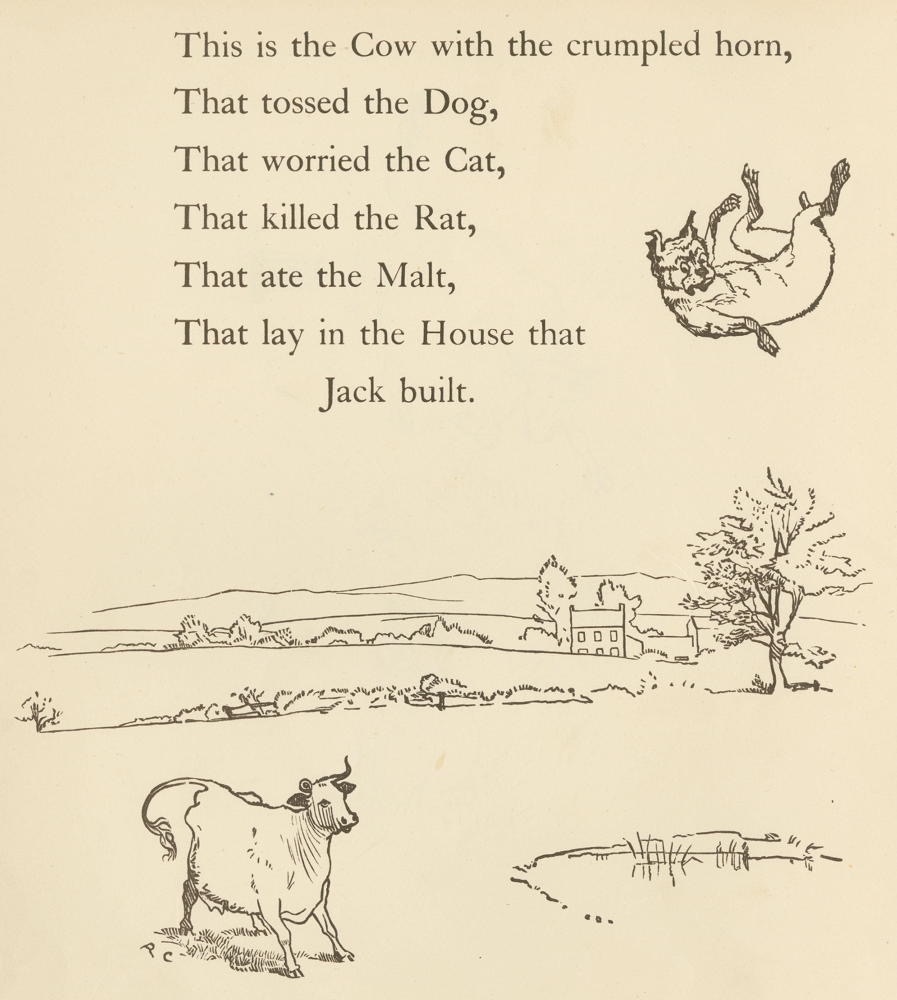
Randolph Caldecott:
"This is the cow with the crumpled horn, that tossed the dog."(≈1912)
The Miriam and Ira D. Wallach Division of Art, Prints and Photographs: Picture Collection, The New York Public Library. "This is the cow with the crumpled horn, that tossed the dog." New York Public Library Digital Collections. Accessed January 19, 2026. (https://digitalcollections.nypl.org/items/751bf0f0-c5bc-012f-99fe-58d385a7bc34)
"We engaged in passionate revolution and found that it rendered us Powerless…"
Social Media seems to be the perfect means for the Powerless to interact. It requires no physical presence. One can safely cower in their individual redoubt without exposing any vulnerable surfaces, yet still maintain a fairly convincing illusion that they’re communing. One might post radical ideas without fear of anyone reacting with much more than disembodied comments, easily discounted. It seems to out-virtualize virtual, a place to call in one’s presence and distantly engage. It provides a spare illusion of interaction, but in comparison to nothing, it proves convincing enough for our general intents and purposes. No need to stand at the podium to speak to power when one can more conveniently email in that criticism. Why look anyone square in the eye if you can anonymously spy on their personal life? Why make amends when you can just unfriend in response to disagreement?
Social Media makes for a perfect playing field for insurgents.
SpuriousPremises
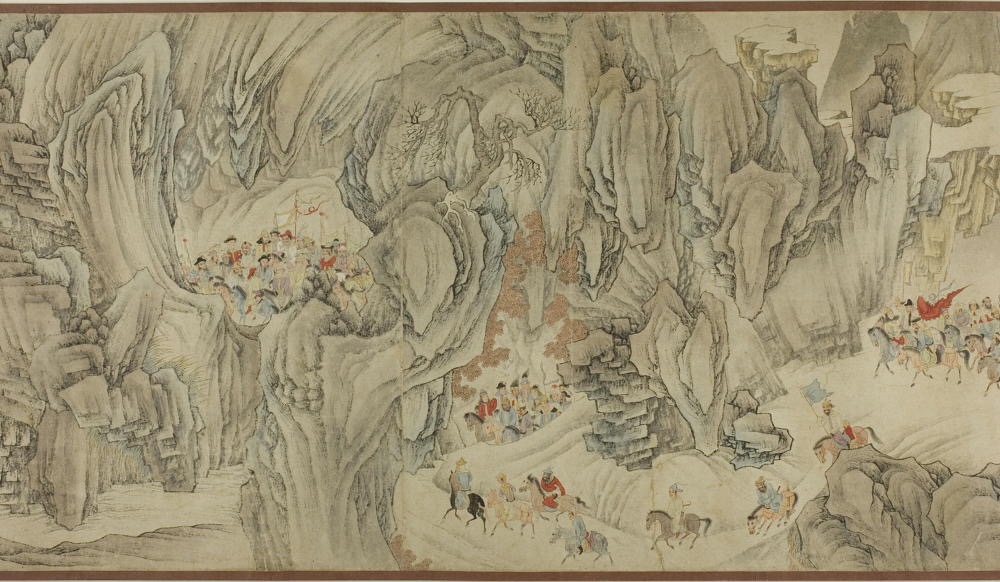
Artist unknown
[spurious signature of Zhao Mengfu (1254-1322), dated 1301]:
A Hunt in the Mountains of Heaven
(Late Ming /early Qing dynasty, 17th century)
"They wandered so far from truth that they cannot relate to it anymore, if they ever could."
The social media world’s content seems defined by an overwhelming presence of SpuriousPremises. It seems unabashedly not whatever it declares itself to be. Headlines routinely misrepresent content. Content often gets continued to pages containing only advertising, rarely the rest of even an enticing story. Pages one might care to revisit usually disappear without leaving even the hint of a trace of their permanent location. Advertising, haphazardly curated for maximum offense and irrelevance, usually interrupts any content threatening to be of real interest. Even the more trusted commentators seem to care more about commanding viewers to subscribe to their channels than they seem interested in imparting their touted important information. They almost always bury their ledes behind an indeterminate length of barely relevant and uniquely uninformative pre-ramble. I can count on the fingers of one hand, with fingers left over, social media posters who avoid such antics.
I like to think of myself as an exception to these apparently otherwise ironclad principles of social media engagement.
KillingTime
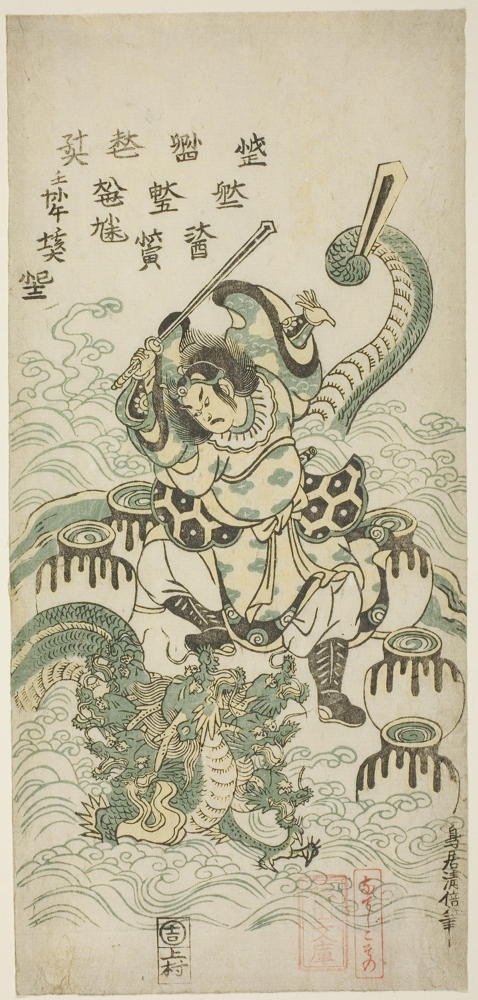
Torii Kiyomasu II:
Susano-o no Mikoto Killing the Eight-headed Dragon (1748)
"…ressurect something crutially important in me by Killing off some of my extra time."
I arrived at the venue an hour and a half early. The annual Chamber Music Festival had started the night before with a string quartet delivering Benjamin Britten, starting at six o’clock. I had presumed, without confirming, that the Friday evening performance at a different venue would start at the same time, but I was wrong. The festival organizer approached me, asking if I felt as though I’d arrived a little early, since nobody but the two of us and that night’s quintet were present, the quintet warming up with a little Mahler on the makeshift stage. He welcomed me to stay and listen to the sound check, but I ducked out the door instead, heading back to The Schooner, which I’d left in a remarkably great parking spot.
I had some time to kill.
Weekly Writing Summary For The Week Ending 01/15/2026

Jacques de Gheyn II: Crossbowman Assisted by a Milkmaid
(c. 1600-1610)
This writing week sure seemed as if I started making steady progress. Each story opened up a fresh realization about the nature and practice of Unscrolling. Doomscrolling was not what I had presumed it entailed. Unscrolling hasn’t been either. I began this writing week commenting on how ungrokable social media content seems to be for me in “Ungrokkability.” I then noticed that doomscrolling never qualified as my work. I reported that I had discovered a Distraction Hierarchy and that distractions don’t necessarily have to be negatives. I commented in passing on the sense of Immediacy I see in social media content and access. I noticed that some memes, perhaps most, carry a sense of Self-Evidence. They seem unquestionable and rarely encourage much in the way of questions. I ended this writing week reporting how Vulnerable I tend to feel just before I resort to doomscrolling. Thank you for following!
Vulnerable
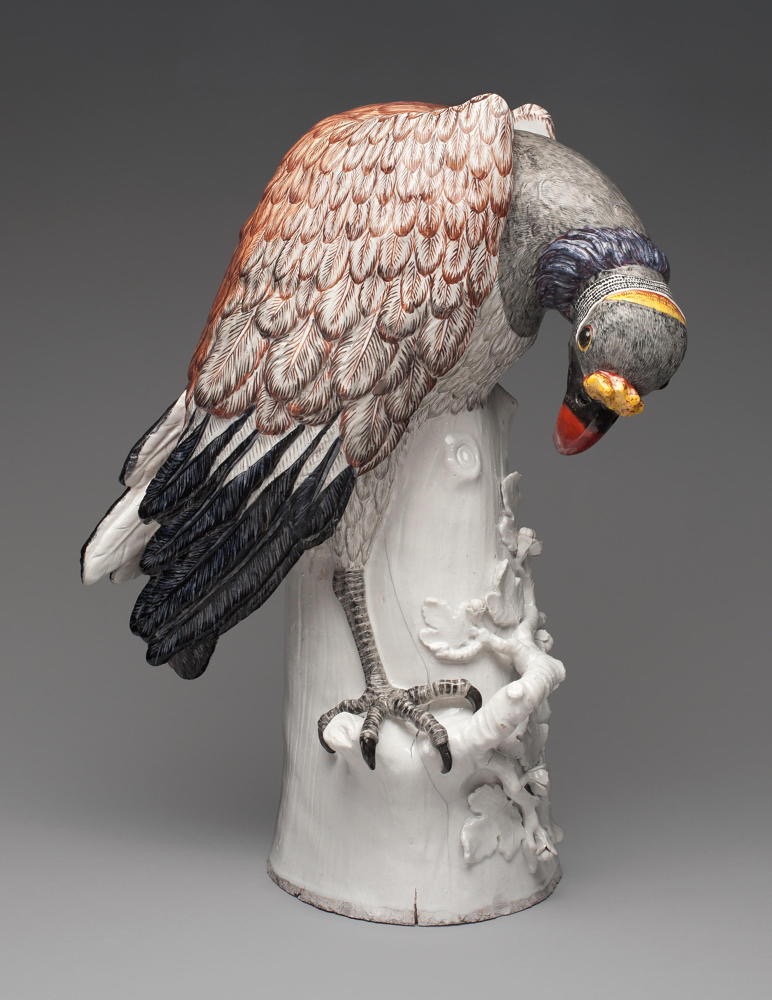
Modeled by Johann Joachim Kändler: King Vulture (1734)
Meissen Porcelain Manufactory (1710–present)
Meissen, Electorate of Saxony (now Germany)
ABOUT THIS ARTWORK
As elector of Saxony and king of Poland, Augustus II (r. 1694/97–1733) presided over the ambitious transformation of his capital, Dresden, through advances in architecture, the arts, science, and technology. Produced beginning in 1710 through royal sponsorship and funding, Meissen porcelain was an exclusive luxury good of its time. Around 1728 Augustus conceived of replicating the animal kingdom in porcelain for display in a Baroque palace that he was transforming into a showcase for his collections of Asian and Meissen ceramics. This porcelain zoo was intended for the long gallery on the main floor of the palace. By 1733, the year the king died, more than thirty different models of birds and almost forty animals had been made, many by the sculptor Johann Joachim Kändler, who worked at Meissen from 1731 to 1775. Kändler drew this vulture from life, which allowed him to animate his work with the creature’s quintessential spirit. Such porcelain animals remain the most vivid expression of Augustus’s wish, as elector and king, to possess and rule over the natural world.
"Every minute I'm not scrolling my social media,
I'm looking out for encroaching Federals."
Now that I’ve started reducing my social media scrolling, I’m noticing some things that were invisible before. Back when I was still more or less mindlessly engaging in scrolling, I’d failed to notice the feeling associated with initiating another scrolling session. Hell, I’d hardly noticed when I started scrolling again. I would usually notice I was scrolling after I had been scrolling for some indeterminate period of time, like awakening from fitful sleeping. Now that I’m more deliberately regulating my scrolling, I seem more capable of feeling and of noticing. The sense I get as I slip into another trance-like session feels like one of extreme vulnerability, bordering on desperation. I often feel stymied, and then, as if I’m incapable of independent action, I feel co-opted. When I experience this state, scrolling envelops me like a protective older sibling. I notice that I feel this way a lot lately.
Our incumbent seems as though he’s designed his whole administration to induce just this sensation on the general population
Self-Evidence
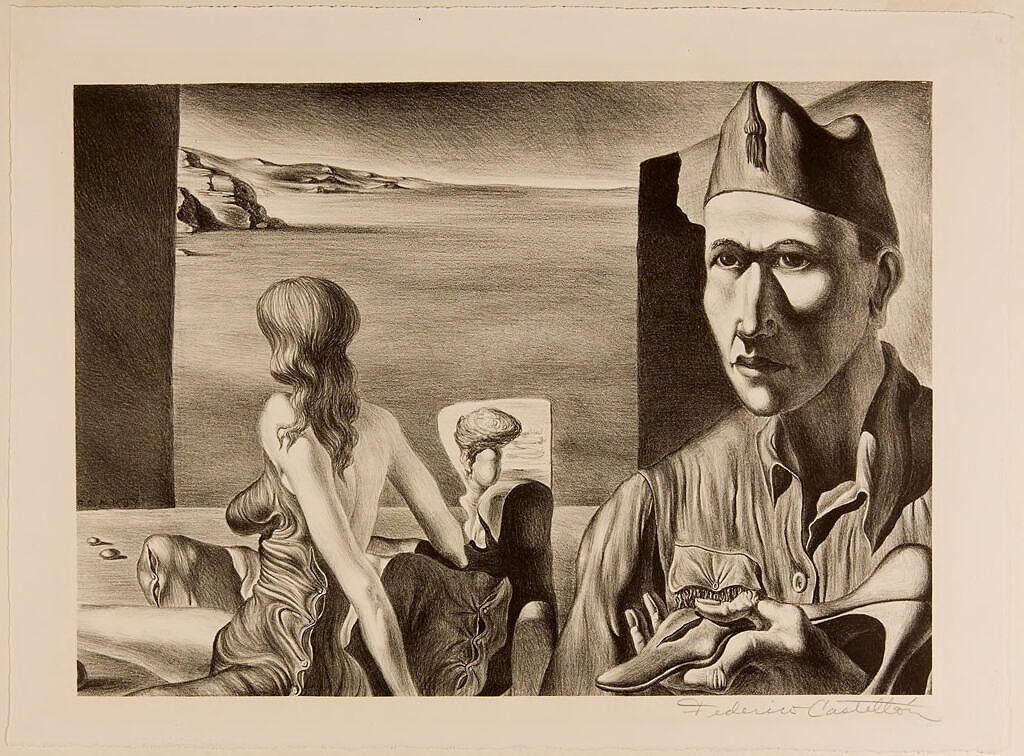
Federico Castellòn: Self-portrait (20th century)
"Disconnecting from the twenty-four/seven reinforcement machine has been helping me see what wasn't otherwise self-evident, and what, disturbingly, was."
The very impermanence of social media messaging fuels the need for almost constant repetition of certain themes. Depending upon what each user’s algorythm presumes, unique reinforcements of prominent messages continue virtually continuously: continually and virtually. This repetition results in certain concepts, “memes”, taking on a unique quality. They enter the realm of Self-Evidence. They require no proof. They inspire no questions. They become givens. For those not initiated in a particular strain or dialect of these babies, the result can seem completely disorienting. Messages seem to start somewhere in the middle, producing incoherence. For those inculcated, though, the memes hardly require repeating. They seem to be echoed more for the purposes of reinforcing than declaring, for their assertion, their very certainty, seems Self-Evidently correct. Nobody for whom they’re targeted finds any reason to question what they presume. They presume virtually everything.
Doom Scrolling serves as an essential element of this Self-Evidence.
Immediacy
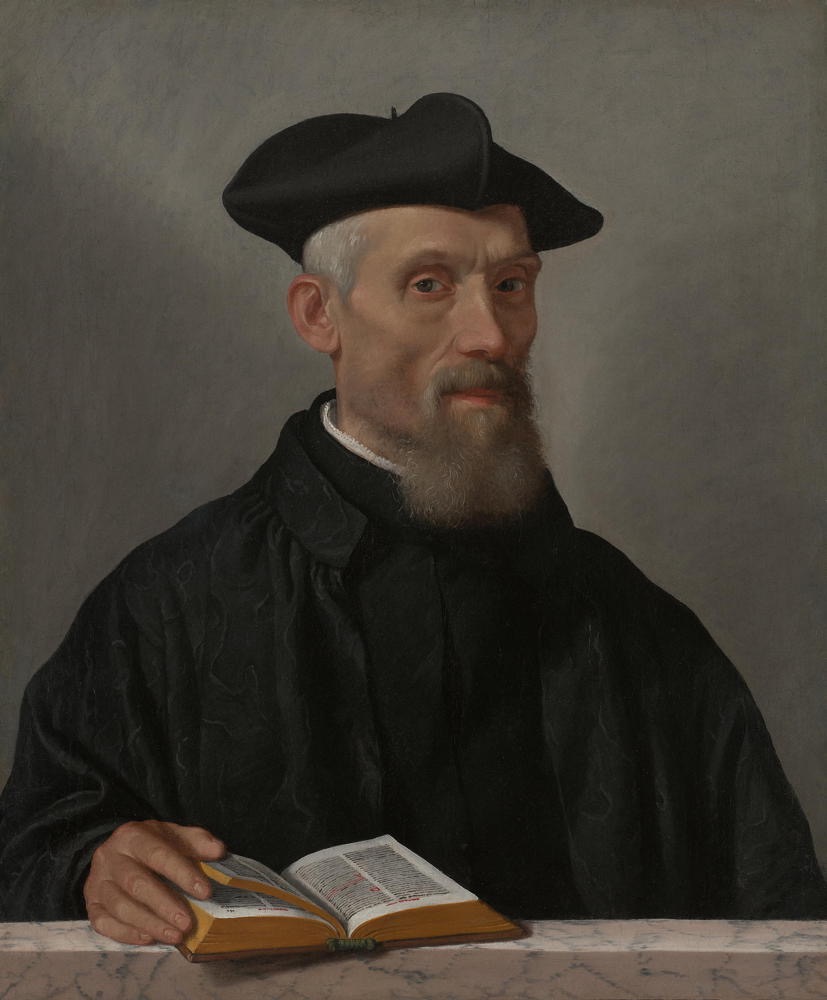
Giovanni Battista Moroni: Portrait of an Ecclesiastic (c. 1557)
"…the journey seems deliberately designed to lead us nowhere but to keep us endlessly coming back, a Modiüs Strip existence."
Social Media has managed to project a space where neither future nor history exists. It exhibits in a moment, for that moment. It produces no memory nor projects any gonna-be. It exists only for the instant encountered. Once experienced, it might just as well never have been. It takes living in the moment, one click less retentive. It’s outdated before you can finish a single serving, never to return. Because of this, it lacks apparent purpose, deeper or otherwise. It deals exclusively in the superficial. It seeks only attention: not recognition, certainly not retention. It counts its presence in clicks, that most ephemeral of all presences. It collects flashes of fleeting acknowledgement, disembodied, timeless, useless for other contexts.
Try to create a list, in ascending time sequence, of your own postings to your own private Facebook group.
DistractionHierarchy
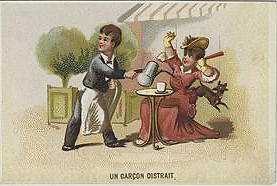
Unknown Artist: Publisher's proof of the publications of L. Prang & Co.
: Trade card depicting a distracted waiter (1876 - 1890, Approximate)
"Both scrolling and unscrolling must be gold-plated…"
I have been guilty in this Unscrolling Series of implying that distractions are necessarily bad, when they’re most decidedly not necessarily so. This culture thrives on distractions. I dare say that our economy would be in much worse shape than it already is if we were to suddenly abandon our distractions. Shopping itself, a necessity for sustaining life, often serves as a distraction for many, a reliable treatment against encroaching boredom. It might even seem that our occupations serve more as distractions from our distractions than something we seek to merely distract ourselves from. I can see the possibility of describing distractions as the hierarchy they might be in our minds. I see some as beneficial and others as evil, though in total, they might appear roughly equal in their contribution to the quality of my experience. More than mere spacers between the more consequent components of existence, we might have evolved to the point where the various elements of our existence serve as distractions from each other: distractions spaced by distractions. As Ghandi never said, “It’s distractions all the way down.”
I might have unfairly singled out our social media scrolling as regrettable.
MyWork

Pablo Ruiz Picasso: The Blind Man (1903)
Other Titles:
Original Language Title: Mendiant
Former Title: The Blind Beggar
Alternate Title: L'aveugle
© Estate of Pablo Picasso / Artists Rights Society (ARS), New York
The Harvard Art Museums encourage the use of images found on this website for personal, noncommercial use, including educational and scholarly purposes.
"I need to stumble upon it by myself…"
Scrolling was never MyWork, but a distraction from it. MyWork, however humble and modest, has always felt sacred to me, even if not to anybody else. I figure this is right and proper since nobody else can accomplish MyWork. MyWork seems at least as much a curse as a blessing in the same way that anyone might deep down revere and despise even their greatest gift. Nobody else ever gets to experience MyWork from my perspective, and it often seems lame from over here, however brilliant or not it might appear from over there. I will never experience MyWork from anyone else’s perspective, and nobody else will ever see it from mine.
The time I spend scrolling around my social media threads cannot be spent engaging in MyWork.
Ungrokability
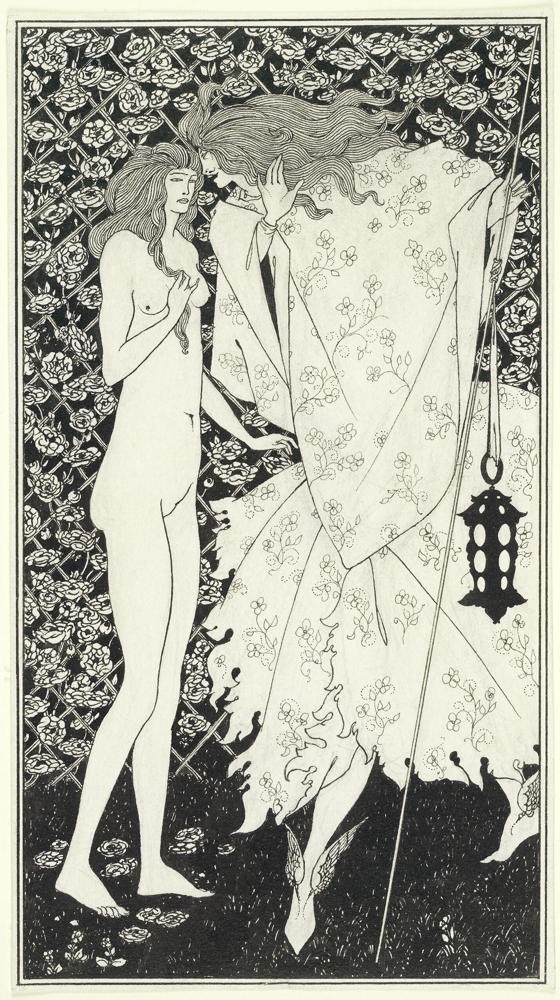
Aubrey Vincent Beardsley: The Mysterious Rose Garden (1894)
"I have no great need to resolve any of the greater or lesser mysteries in life."
My greatest humiliation I experienced when finally pursuing higher education occurred quite innocently, in a beginning Calculus class. Why the university imagined that anyone pursuing a business degree might need calculus was not for me to question, for I quite literally knew nothing about higher education. I was fortunate to have been deemed Not College Material by my high school guidance counsellor, so for seven years, I’d never questioned whether or not I should pursue a degree. That decision was thankfully made for me when that kindly counsellor convinced me that I was not suitable. I set about planning my life around that possibility until seven years after high school graduation, when my first career stalled out, and I grew weary of working casual labour jobs. I decided that I might prefer to wear a tie to work instead.
I just enrolled in the closest state university, which accepted me sight unseen.
Weekly Writing Summary For The Week Ending 01/08/2026

Kogout, N: Happy New Year (1918)
Publisher: Lit. Izd. Otdela Politupravleniia Revvoensoveta Respubliki
NYC Public Library Collection: Harold M. Fleming papers
Russian Revolutionary Era Propaganda Posters
This writing week began with the most innane act a government can ever engage in, the violation of a neighboring country's territorial integrity. Make no mistake, this was nothing other than a forcible rape of decency; however the perpetrators might argue their innocence. I figure the act will just render them that much easier to impeach when that time comes, and it's definitely coming. I was wrestling with saying "No!" and making it stick before acknowledging that Flurries of useful information fall in even the otherwise most innane social media scrolling. I noticed how what was once news has turned into Speculation, then realized that I scroll my social media searching for Validation. Why have I been searching so for validation? I concluded that I have been actively Procrastinating, if that concept isn't too contradictory. I set about unprocrastinating, by which I mean that I started doing something I'd been actively avoiding. That felt better. I ended this writing week marveling at how social media encourages people to Make rather than take Sides. Thank you for following along!
MakingSides
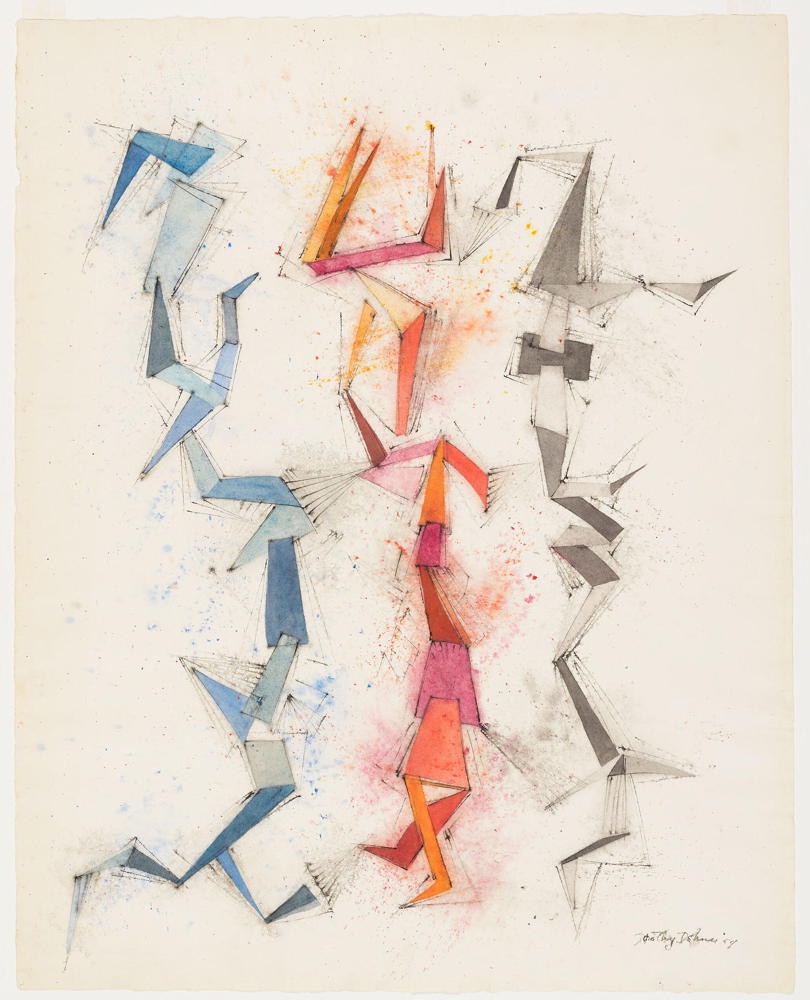
Dorothy Dehner: Family Group (1954)
© Dorothy Dehner Foundation for the Visual Arts
"…they create the losers they compete with…"
If it takes two to tango, it also takes two to tangle. Two opposing sides seem capable only of erecting impassable barriers. Of course, they’re also capable of creating cooperation, but our social media environment seems powered by opposition more than by cooperation. This situation seems tragic, since opposition often leaves little room for thriving. One struggles instead under a steady diet of squabbling and worse. Many take these conflicts seriously, as if they had more substance than any argument could ever properly contain. It might not matter who’s to blame for this continuing and even escalating situation, who’s wrong and who’s right. I’m more interested in understanding what’s left once we’ve divided ourselves by MakingSides.
We were not necessarily born with dichotomous brains.
Procrastinating
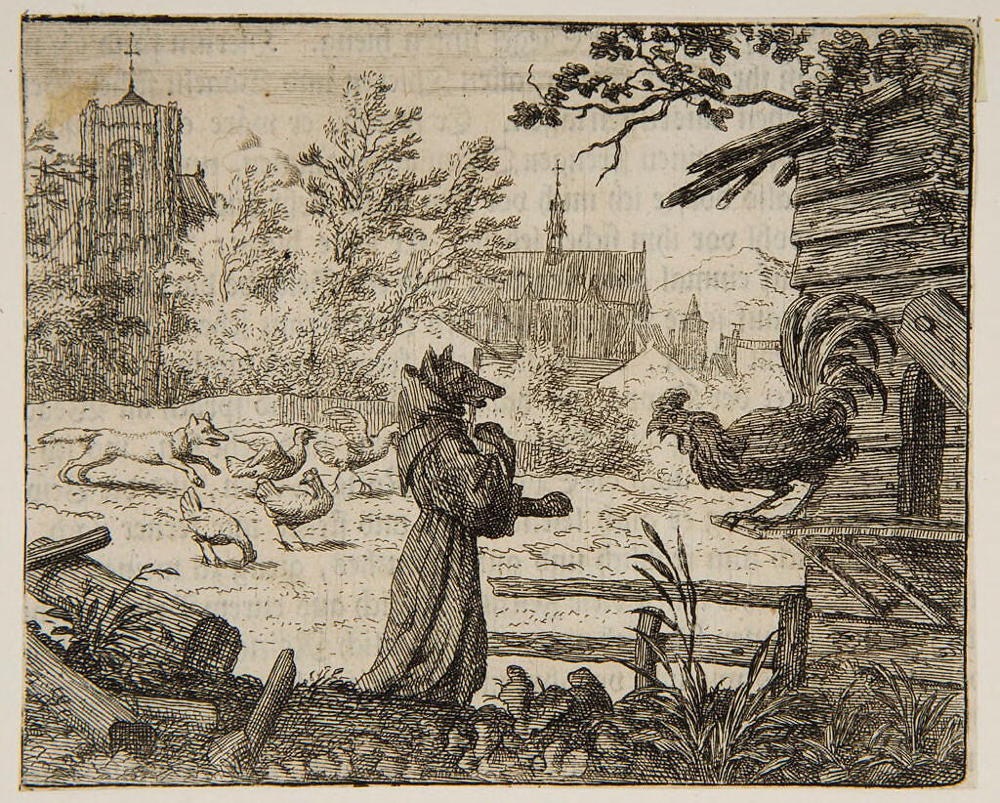
Allart van Everdingen: Reynard disguises as monk and distracts cock
Series/Book Title: Reynard the Fox [Reinecke Fuchs] (17th century)
"Progress is Procrastinating, finally turning outwards."
Once I admitted to having been seeking Validation when scrolling, I began wondering how it came to be that I needed to seek so much validation. Yes, the damned pandemic had robbed me of some sources of external validation, but it had not stranded me in the middle of some interaction desert. I had long employed social media for much, perhaps the bulk, of my interactions, since my work had taken me far from home and I hadn’t reported to an office in many years. I started working virtually before the internet, before I even acquired a cell phone; hell, before there were even cell phones for me to acquire, so I was well accustomed to being alone much of the time before that damned pandemic visited. What about that event left me suddenly so apparently needy that I sought so damned much social media-sourced validation? This seemed a perfect question until I eventually managed to track down a parallel thread to my story. Something else had emerged around about when that damned pandemic appeared. I had begun writing these series.
As those who have been following my stories already know, I hold myself responsible for writing and posting a fresh story each morning.
Validation

Hendrick Martensz. Sorgh: The Lutenist (1661)
A young man is singing and playing the lute on an open veranda. Where the woman’s thoughts have wandered is a mystery. The music and the theme of the paramours Pyramus and Thisbe in the painting in the background suggest that harmonious love is the subject. Yet the work may also be a warning against impulsive lust. Both interpretations are equally valid.
— — —
"I doubt that heaven awaits those who get saved from pursuing their purpose."
Before I conclude that scrolling through my social media feeds amounts to an unconditional waste of my time, I might be wise to consider my underlying purpose for being there in the first place. I did not end up there because I held a deep desire to waste my precious time. Nor was I necessarily an unwilling victim, or even a victim at all. I realize that I was pursuing something important there, and that I might have even found it, however overshadowed in foreboding or misgivings, by which that result might have been accompanied. Remember, this behavior pattern emerged during the darker and most isolated periods of my existence. I’d never, before that damned pandemic, spent so much time in agonizing isolation. I strongly prefer introversion, so pandemic isolation might have brought the best of times to my experience, but it didn’t. It brought existential dread instead, with no obvious outlet. I could still get out, but only if dressed like a bandit and maintaining strict distancing. I’d never seen the faces of more than half the people I interacted with every week. I felt terribly isolated!
I began convening my weekly Zoom Chat then, a practice I continue every Friday morning even unto these days.
Speculation
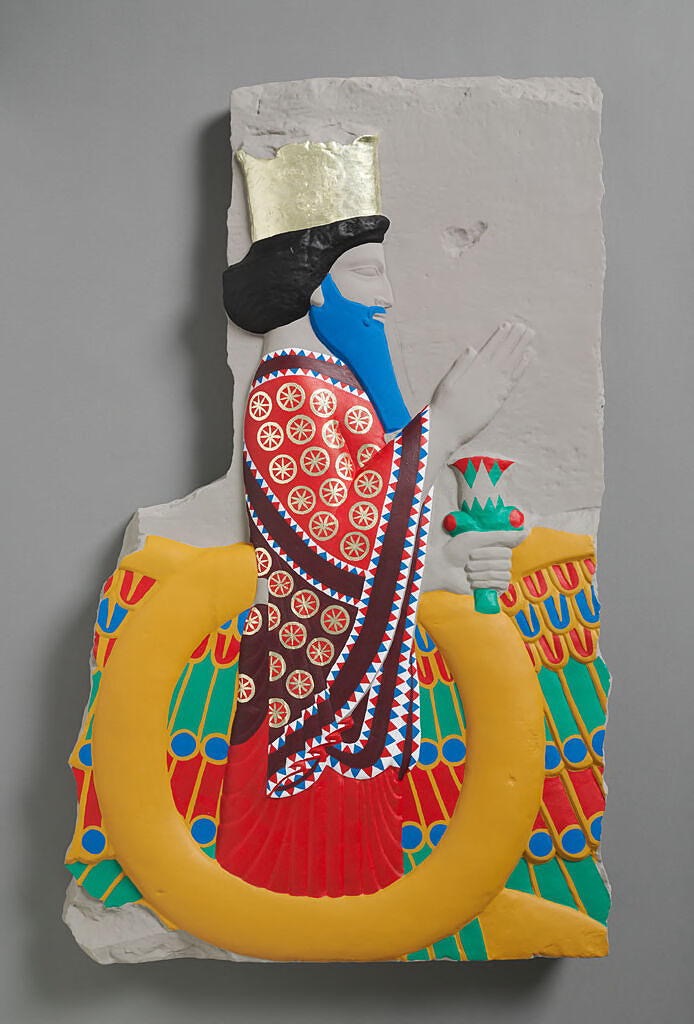
Unknown Artist: Color Reconstruction: Ahuramazda in the Winged Disk
21st century reconstruction of 5th century BCE original)
Gallery Text
Carved from brownish limestone, the Persepolis sculptures were painted and sometimes further enhanced with gold overlays as well as blue inlays imitating the semiprecious stone lapis lazuli. The color reconstruction you see here, made of plaster with acrylic paint, is based on close examination and scientific analysis of the original relief fragment (1943.1062) displayed immediately outside this gallery [in gallery 3460].
The incised star patterns are revealed by “raking” light, which illuminates the surface from a low angle. Traces of bright red cinnabar (mercury sulfide), green malachite a copper carbonate), and Egyptian Blue (the oldest synthetic pigment) are visible with the naked eye. Similar depictions, notably on glazed brick reliefs, provide further clues, but the reconstruction remains partial and speculative. As proposed, the coloration of the winged disk recalls inlaid gold jewelry. This may well have been the intended effect, heightening the splendor of what is most likely a representation of the god Ahuramazda.
Harvard Art Museums/Arthur M. Sackler Museum, Museum Collection
Object Number
1943.1062.X
— — —
"I work much harder now, trying to become informed."
The few decades between when broadcast television supplanted radio as this country’s primary news source and the proliferation of first cable, then social media-based outlets replacing broadcast TV, the content of what passed for news changed. More properly, the content of what passed for news transformed into what Walter Cronkite could not have claimed represented anything even remotely resembling “the way it is,” if, indeed, it ever had. I fear expectations failed to shift in unison with that change; however, so many people continue to believe that what passes itself off as news today resembles what used to pass muster as news. It doesn’t. A slow erosion of reportage was replaced with what I might most generously label Speculation. Explanations of what just happened were supplanted by descriptions of what might occur and what might have occurred: reportage became Speculation.
When Faux (Fox) News branded itself as “news”, new ground was broken.
Flurries
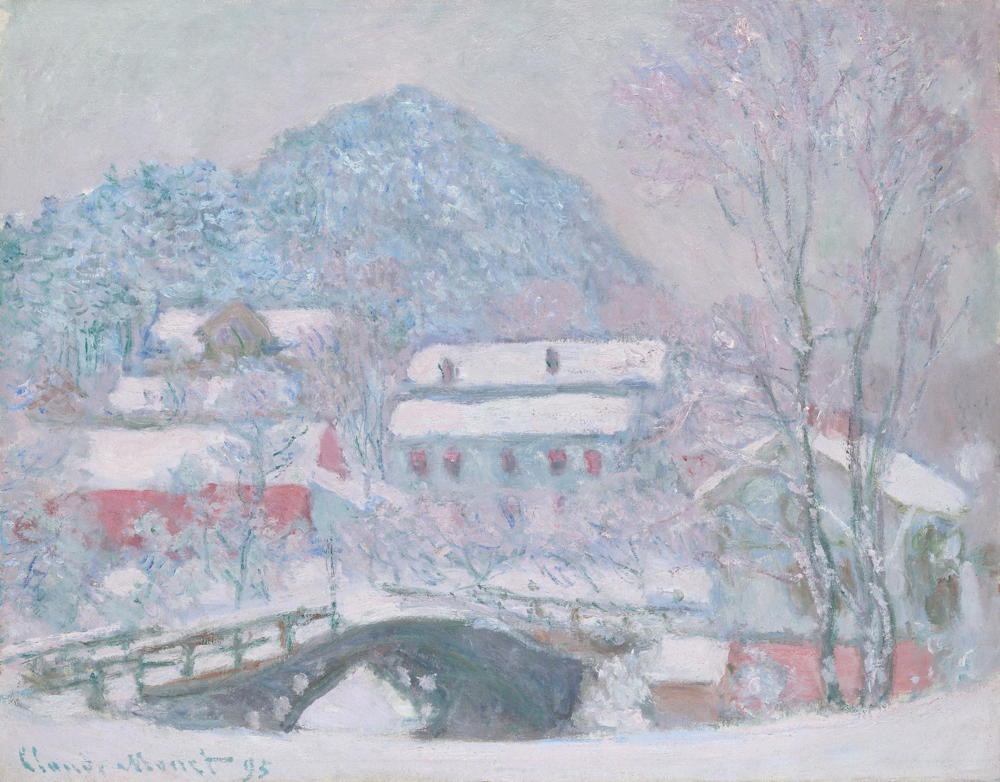
Claude Monet: Sandvika, Norway (1895)
ABOUT THIS ARTWORK
Claude Monet’s trip to Norway in 1895 was perhaps the most physically taxing of all his many painting campaigns. Touring the country with his stepson Jacques Hoschedé, who lived in Christiania (now Oslo), he was awestruck but initially frustrated in his search for good motifs amid the snow. Nevertheless, he painted 29 Norwegian scenes during a two-month stay. These included at least six views of Sandvika, a village near Christiania whose iron bridge may have reminded Monet of the Japanese bridge at his home in Giverny.
— — —
"Then I feel glad for my little social media addiction."
It’s not that scrolling only produces distraction. It also produces fantastic information, sometimes far superior to anything accessible before the unfortunate downfall of journalism and the rise of so many blogging platforms. Though blogs gained their initial popularity as a conduit for various nefarious conspiracy theorists, they have since attracted plenty of more credible contributors, some of whom the algorythm even allows me to access. Just when I’ve about convinced myself that scrolling cannot be justified, something actually happens out there in what still passes as the real world. Suddenly, all the foreground filled with idle speculation masquerading as news disappears, replaced by some actual reports from actual fields. For a change, and if only for a little while, mainstream breaking news matches the streaming contributors, and my scrolling manages to bring some events into actual focus. It was always tough to access adequate information surrounding any breaking news. In the old days, I’d frantically switch between the three available broadcast channels, trying to glean additional incremental bits of actual information. Now, of course, I just continue scrolling through what my algorythm serves.
The primary problem with any addictive substance lies in its beneficial qualities.
No-ing

Rembrandt van Rijn: Self-portrait ( c. 1628)
Gallery Notes: Even as an inexperienced young artist, Rembrandt did not shy away from experimenting. Here the light glances along his right cheek, while the rest of his face is veiled in shadow. It takes a while to realize that the artist is gazing intently out at us. Using the butt end of his brush, Rembrandt made scratches in the still wet paint to accentuate the curls of his tousled hair.
"…I'd take my marbles home while mumbling"Good riddance!" under my breath."
It might be that I scroll to try to identify shifting power. In times as volatile as these, advantage seems to be continually shifting. Any news cycle, any odd minute, might hold evidence of where power might be shifting next. Our incumbent, widely acknowledged idiot that he has proudly proven to be, shifts focus more frequently than he farts, so he creates much churn in the channels, and so sparks my near constant interest. Scrolling sometimes seems like reading a truly terrible novel I can’t bear to set down for a minute, completely beyond my volition. I might need permission to stop, though from whom such permission might come seems like another fundamentally unanswerable question. This brings an old understanding into suddenly sharper focus.
In my youth, I believed that power came from granted permission, that somebody powerful could bestow the authority for something to happen, and that it consequently did.
Weekly Writing Summary For The Week Ending 01/01/2026
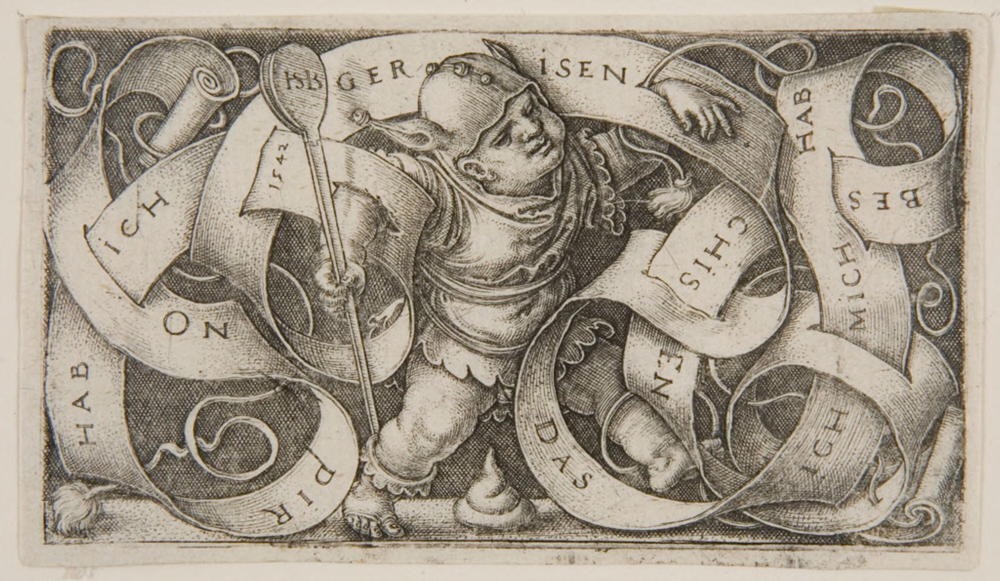
Sebald Beham: Little Buffoon with Scroll (1542)
This writing week was the first full writing week of posting my new Unscrolling series. Over its course, I felt myself starting to grasp whatever might have moved me to choose to expound on this topic at this time. Long-time readers might remember that a year ago, I was starting my series on what I labeled NextWorld, the world likely to emerge from our incumbent taking the oath for an office he never intended to fulfill. I started that series ignorant of its purpose but found the experience eventually morphing into being suitably satisfying, nonetheless. Each series starts off like this, in near-total ignorance, before starting to trend toward a deeper understanding, usually in the first full week of the investigation.
I began this writing week acknowledging the garish colors that social media almost exclusively trades in, and what that means for credibility.
StockholmSyndrome
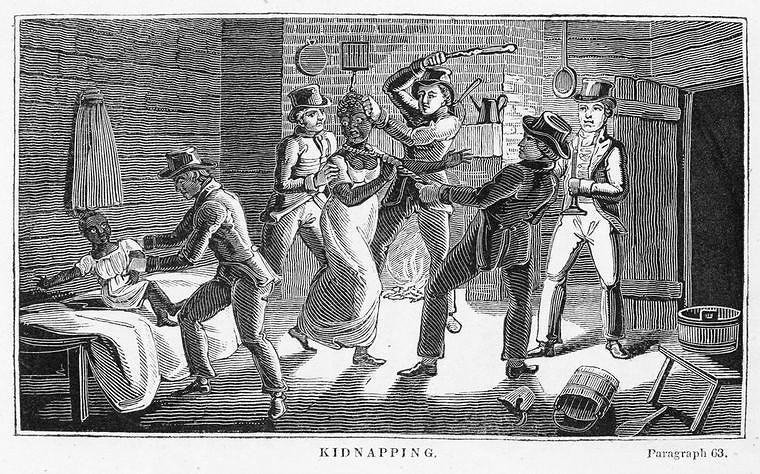
Jesse Torrey: Kidnapping,
American slave trade: or, An account of the manner in which the slave dealers
take free people from some of the United States of America, and carry them away
(1822) Reprinted by C. Clement and published by J. M. Cobbett
"We all seem to be coping near the edge of our native abilities now."
This being January 1st, New Year’s morning 2026, I am reminded that none of us inhabit our present or proceed into our future completely willingly. Each of us might have preferred to slow down the inexorable progression of time at times, if not halt it altogether. Especially during good times, which we learn from personal experience, always prove to be fleeting. No, time moves in only one direction, and it drags us along as if kidnapping us. We come to inhabit a once-upon-a-time future we wouldn’t have chosen, thereby challenging our always emerging, though never quite mature enough coping mechanisms, sometimes to our detriment. For my generation, the so-called Baby Boomers, the emergence of computing and its many associated industries has proven to be the most disconcerting. We realize, as I suppose only someone who remembers before times could, just how far from our imagined future our actual future has fallen. Computing didn’t turn out the way we’d dreamed it.
No future ever arrives as previously imagined, though, so my generation’s no different than any prior.
TheAlgorythm
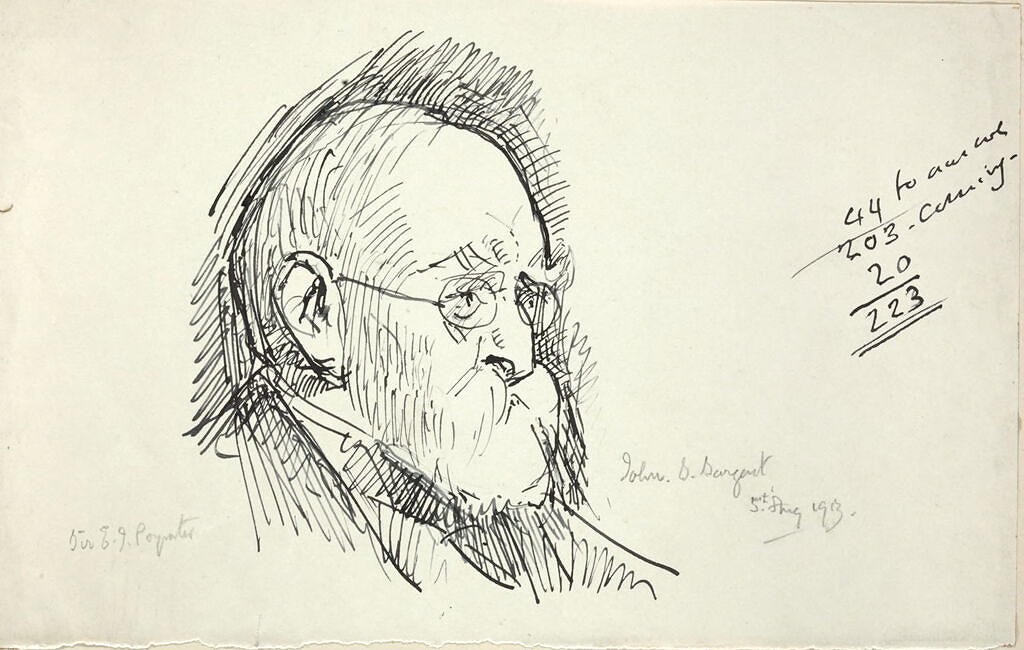
John Singer Sargent: Sketch of Sir Edward John Poynter (Aug 5 1913)
"…cursing TheAlgorythm every inch of the way to nowhere again. And again."
If a common villain emerges from everyone’s scrolling stories, it’s undoubtedly TheAlgorythm. This mysterious presence is said to make the decisions about what any odd accessor might see in their social media feed. It doesn’t matter which individual feed gets mentioned, its underlying algorythm gets blamed for choosing what’s presented for our obsessive/compulsive perusal. This seems perfectly justified if only because TheAlgorythm works in such mysterious ways. It’s said to do this or that, indifferent to any user’s underlying needs. It feeds upon what it needs first, last, and, reportedly, always. It seems to operate well beyond reason, far beyond any logical justification. Not randomly, though its operation might sometimes easily be mistaken for random generation. It appears to operate more randomly than random could, and probably does. It’s a black box with whatever anyone might imagine operating inside.
It serves up a curious mix of frustration and satisfaction.
2ndOrderDistractions
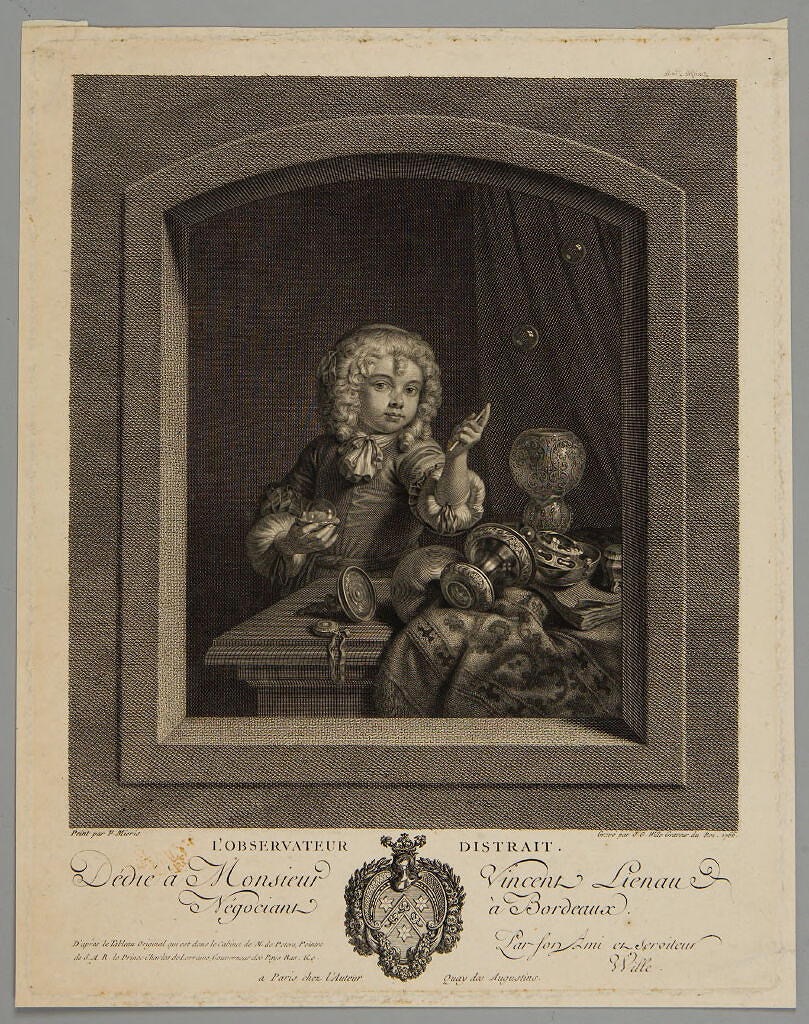
Johann Georg Wille: The Distracted Observer (1766)
"What's my 5% solution? What's yours?"
Each era sets a tone, a rhythm for living in that time. Obama brought hope for a liberal democracy wounded by two terms of pseudo-conservative idiocy, for instance, and Biden’s time reinstituted a sense of decency, which, predictably, set the corrupt class absolutely crazy. This brings us to our current era, where our leader, above all else, specializes in distracting himself. I doubt that he’s completed as many thoughts as he’s completed sentences, by which I mean there’s absolutely no evidence that he’s ever successfully completed either. Predictably, his milieu proves to be communicable. It probably isn’t an accident that we’re suddenly suffering from severe bouts of distraction disorders. Sure, we started seriously distracting ourselves during the COVID years—remember who the incumbent was then?—but it took some practice and serious repetition before it turned into a discernible problem, just in time for old, reliable Mr. Distraction to take office again.
This theme provides personal insight into the self-esteem of our oh-so-fearful leader.
Antidotes
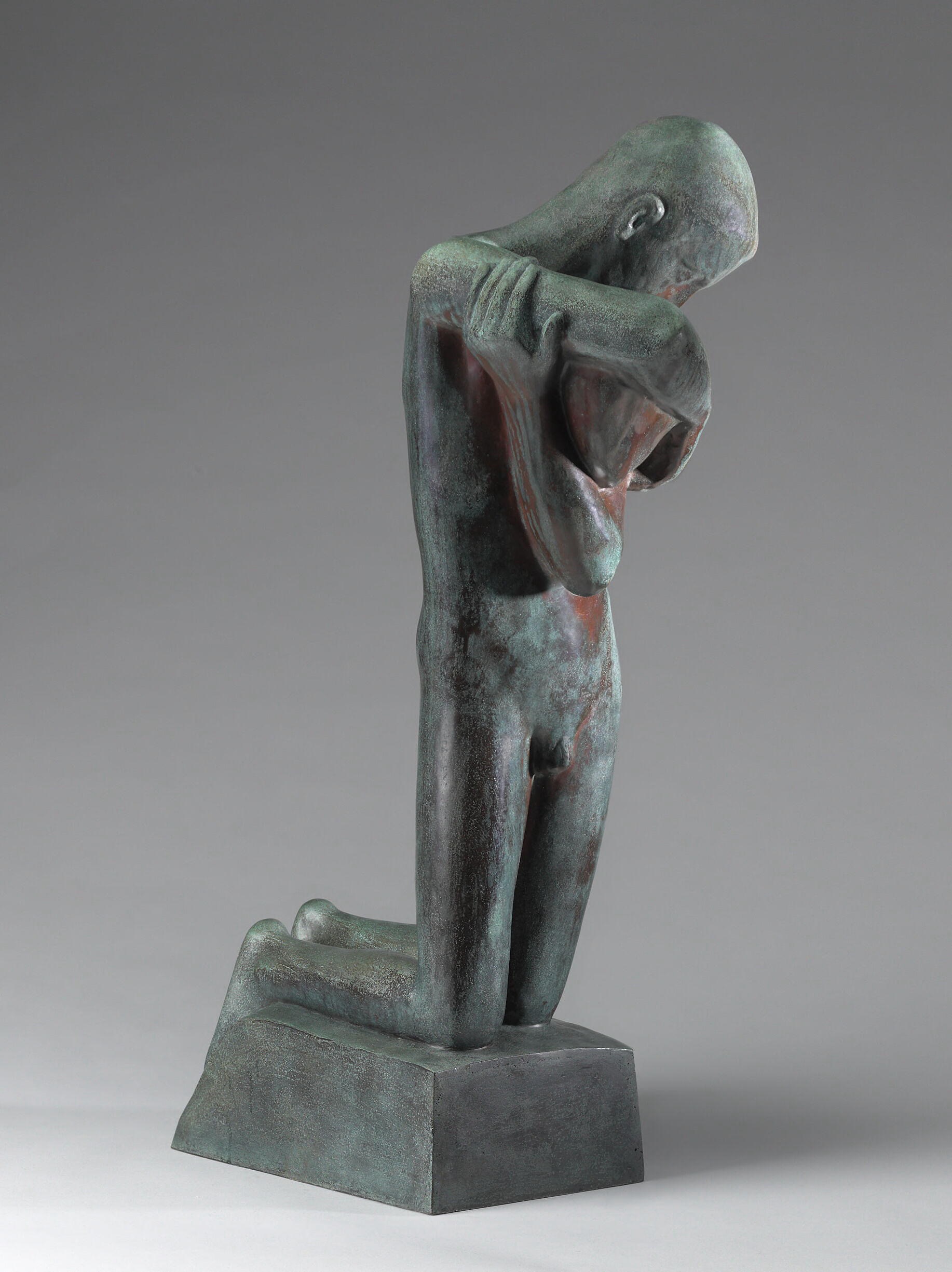
George Minne: Kneeling Youth with a Shell (1923)
Gallery Text
Minne was a leading figure in European turn-of-the-century symbolism, which posited explorations of interiority, spirituality, and the unconscious as antidotes to the materialism of an industrialized society. The figure of the kneeling youth was a recurrent motif in Minne’s oeuvre, and this one’s serpentine figure and downcast face evoke a state of contemplation and solitude, if not melancholy. The omission of naturalistic details, like musculature or individualized toes, abstracts the depiction of the youth’s body. This slim and angular figure exemplifies the artist’s sculptural style, which was celebrated for its synthesis of the elongated figure of the Gothic with the contemporary decorative style of Art Nouveau.
— — —
"Living inescapably involves getting used to noticing what's missing in our lives."
Most of us seem to more or less automatically revert to magical thinking when we encounter something we perceive to be a problem. We resolve the difficulty by a priori imagining the existence of a solution, even though full solutions appear to be rare in both the literature as well as in our lived experience. We might be able to ameliorate some of the worst effects this problem produces, but full remission only rarely, if ever, gets achieved. For instance, I have heart disease. Don’t fuss, the worst it has ever gotten for me was a few high blood pressure readings. No apparent damage. So, of course, I thought I’d dodged that bullet. My doctor advises that I have not dodged anything but some of the more troubling symptoms. He pointed out that my continuing prescriptions mean that my heart disease continues, too, albeit in some form of suspension, and will continue for the balance of my life. There is no cure.
Many of the “solutions” we experience seem to be of similar character.
Greyscale

Lucian and Mary Brown: Untitled [baby on scale] (1955)
"My life seems both harder and better when lived in Greyscale."
Our world was never given to present itself in oversimplified blacks and whites. Every dichotomy amounts to a lie, an oversimplification intended to amplify difference rather than similarity. Likewise, our world was never given to present itself in garish colors as if it were a Vincente Minnelli movie, another oversimplification intended to downplay difference and dazzle the eye—more entertainment than information.
Real life, if I even dare speak of reality in these times, lies somewhere between these two common extremes, in what I might refer to as the Greyscale, where shadow and light highlight both similarity and difference, and distracting dazzle seems more properly muted.
Kodachrome
A friend and reader sent me the article and I immediately switched my phone to B&W. Slip over here for more ...
Weekly Writing Summary For The Week Ending 12/25/2025
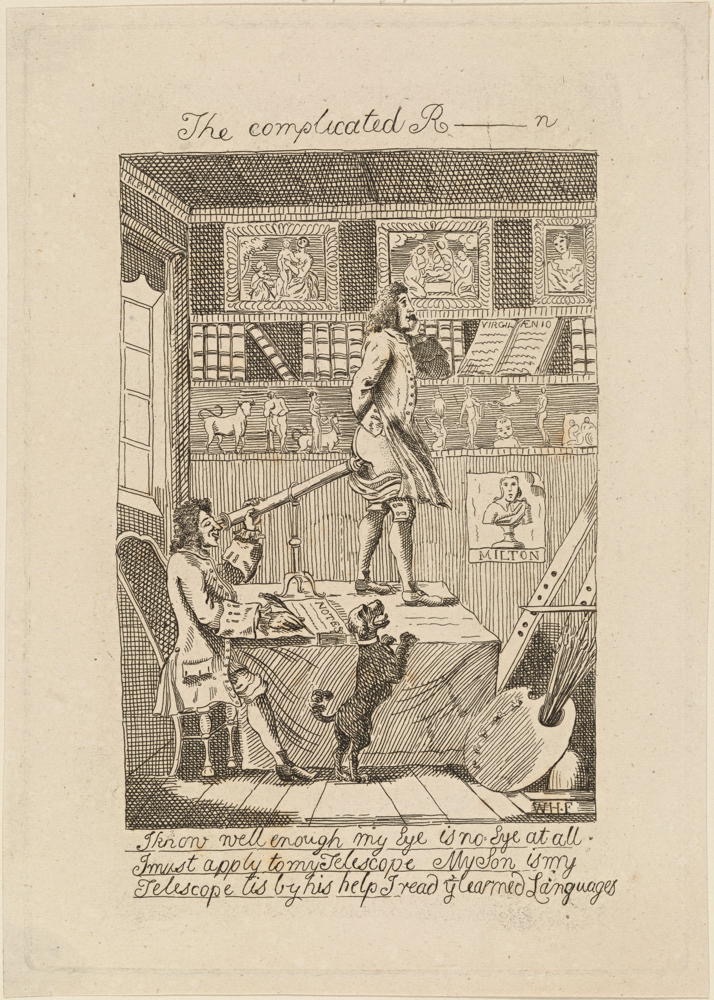
William Hogarth: The complicated R____n (1794)
This writing week tacitly included my annual Christmas poem-writing exercise, where I try to write a dozen or so (more or less) Christmas poems between Solstice and Christmas morning. This always adds a bit of stress to a season that already seems to bring stressors, but it enables me to avoid shopping. I also ended my Decency series, which I consider to have been a completely successful excursion into the source and character of a widely misunderstood choice freely open to each of us. I also began a fresh series—albeit on typically wobbly wheels—Unscrolling. I will probably find my balance before Epiphany, or at least, it usually happens that way.
I began this writing week considering the opposite of selfishness, selflessness, the very soul of decency as I’ve come to understand it. I then ended that series and opened the fresh Unscrolling series, where I will attempt to understand and curtail what might have become a dangerously self-destructive habit shared by many of us: mindless scrolling through our largely newsless newsfeeds. I stepped into what I labeled the First Infinity, the one that lies beyond what had become habitual, unseen, and in need of more experience. I then explored the remarkable absence of news in my so-called newsfeeds. Whatever happened to urgency and importance? I then peeked into the source of my current scrolling practice, the Covid shutdown, and noticed what sure seems like an addiction. I ended this writing week by characterizing scrolling as a way to employ randomness to address a hollowness. Perhaps the hollowness could be the underlying issue.
Weekly Writing Summary
Selfullness
“I’ll be studying and learning this lesson for the rest of a halfway Decent lifetime.”
This Decency Story finds me reminding myself of my duty to practice a Decent Selfullness.
Brian, a highly capable and kind leader, worked tirelessly, neglecting his own well-being. After accumulating excessive vacation time, he took a sabbatical, ultimately leaving his job. In his new role, he embraced a more balanced approach, prioritizing self-care and allowing others to lead, finding greater fulfillment in his work.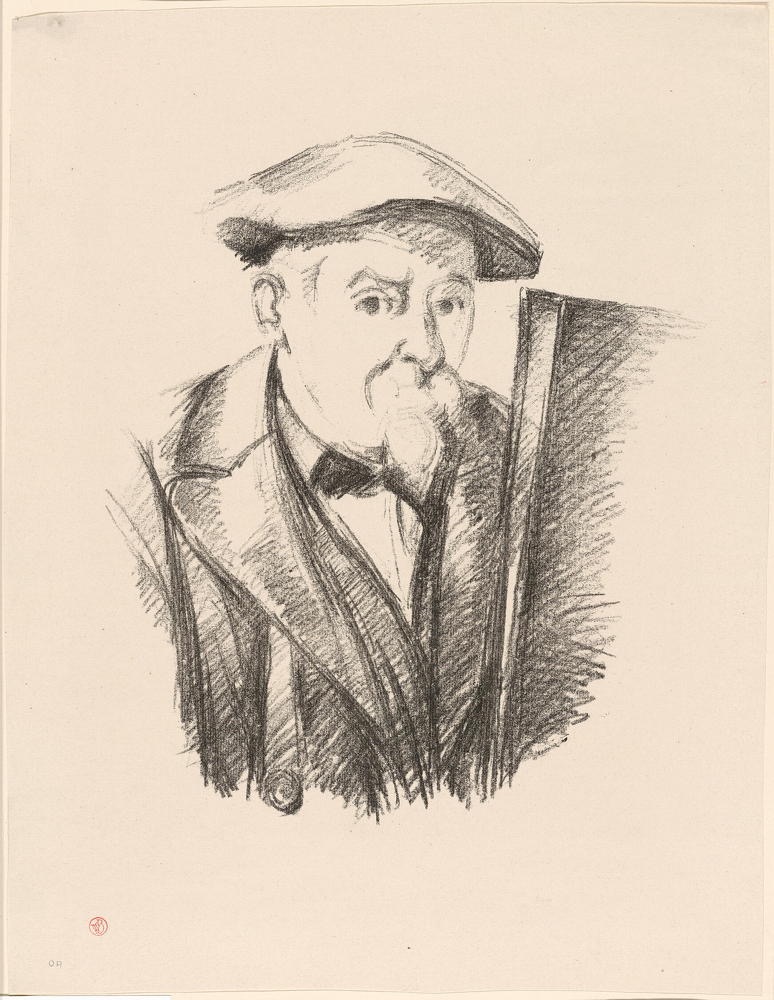
Paul Cézanne: Self-Portrait (1898)
——
DecencyUnscrolling
“…hello to a fresh strange bedfellow…”
This Decency Story contains the ending coda of my Decency series and the opening salvo in a fresh series: Unscrolling.
I conclude my Decency Series, reflecting on the importance of choosing decency freely and its potential to create good fortune. I then introduce a new series, Unscrolling, exploring the impact of social media and streaming services on information consumption and my own struggle with distractions. I aim to either embrace the streaming culture or become a social media hermit through this new series.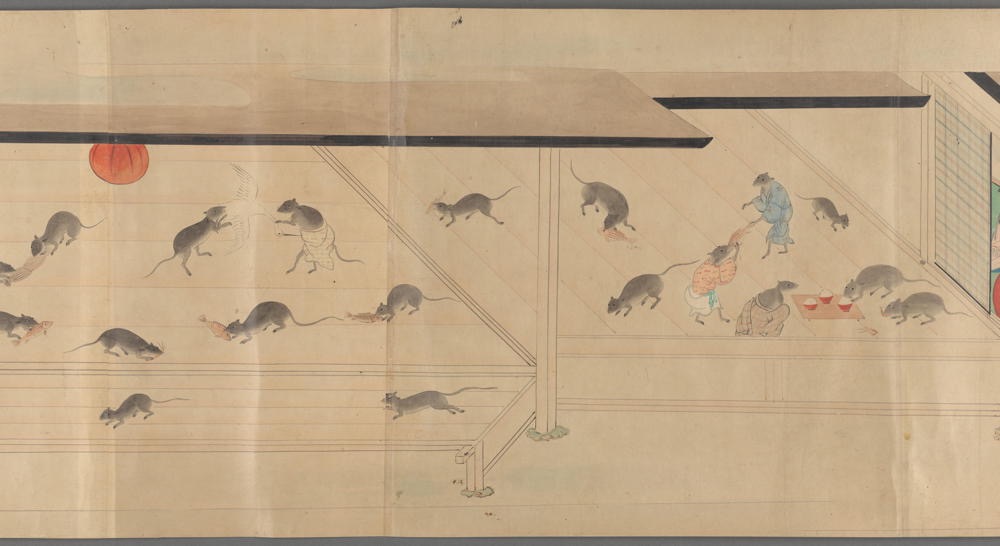
Unknown Artist: Scroll 2: Nezumi no soshi emaki (1600 - 1650) Nara [?], Japan
——
1stInfinity
“I wonder what I so passionately and, ultimately, passively sought there.”
This Unscrolling Story starts unfolding the space within which unscrolling takes place, exploring a 1stInfinity that appears after exiting the scrolling universe.
In this Unscrolling Story, I describe the overwhelming nature of infinite possibilities, comparing it to Giordano Bruno’s concept of infinite worlds. I argue that while scrolling offers a seemingly infinite stream of information, it ultimately leads to a loss of time, relationships, and genuine engagement. I'm choosing to limit my scrolling, embracing a new sense of freedom and the opportunity to engage meaningfully with the world around me.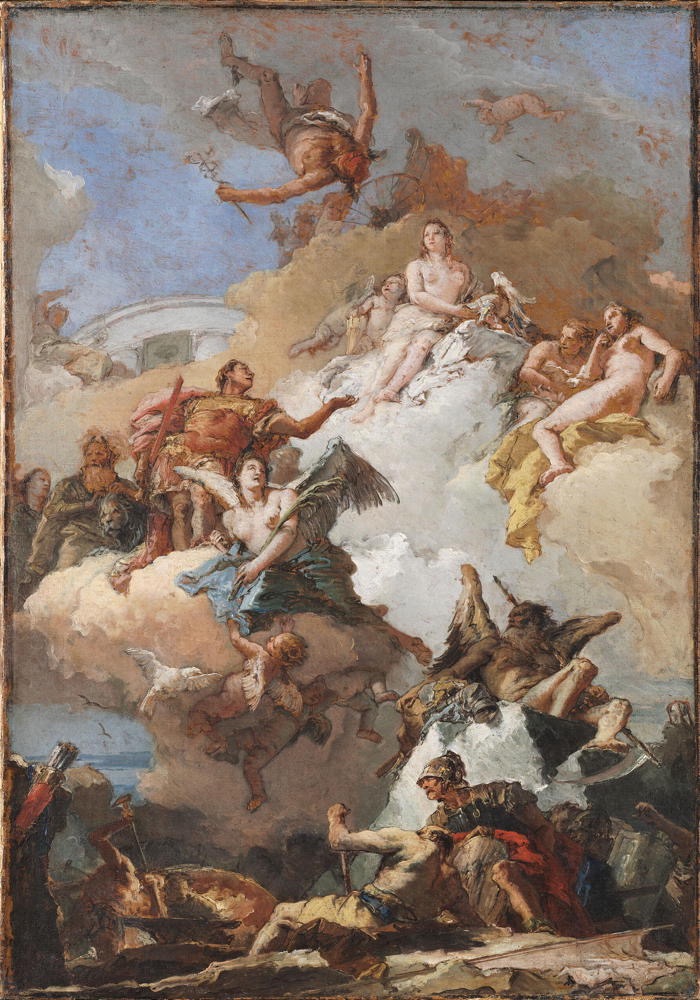
Giovanni Battista Tiepolo: The Apotheosis of Aeneas ((c. 1765)
——
News
“Few of yesterday’s urgencies ever came to pass.”
his Unscrolling Story finds me searching for the News that’s lost in my newsfeed.
In this Unscrolling Story, I express disappointment with the current state of news media, finding it sensationalized and lacking in substance. I reminisce about the days of NPR, which I once found informative and reliable, but now perceive as lacking credibility. I feel overwhelmed by the constant barrage of information and am losing interest in staying informed.
Robert Dighton: Well Neighbour-- What’s the News?,from A Set of Heads (c. 1795)
——
ClosingIn
“One might never notice what’s not present in their life as a result of their scrolling addiction.”
This Unscrolling Story finds me ClosingIn on my scrolling addiction. Revisiting the source cures nothing, but it clarifies.
During the Covid shutdown, scrolling became a consuming activity, providing a sense of connection and community. Initially a harmless habit, it gradually escalated into an addiction, replacing hobbies and higher-order engagements with endless entertainment. The subtle nature of scrolling addiction makes it difficult to recognize its negative impact on one’s life.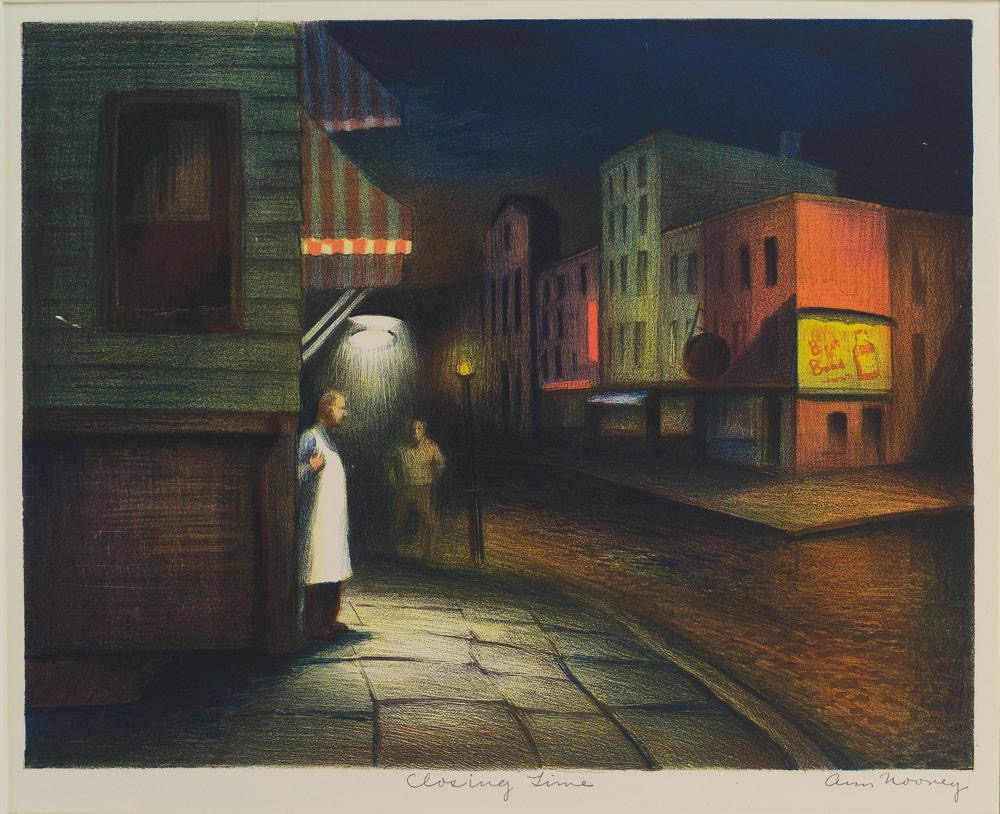
Ann Nooney: Closing Time (1937-1742) Works Progress Administration (Sponsor)
——
Serendipity
“…we can curl up in wonder…”
This Decency Story finds me in steerage, wondering how my interests got Excluded when hospitality became an industry.
In this Unscrolling Story, I compare the aimless scrolling of social media to a desperate search for Serendipity, a random payoff in a world lacking hope and upward mobility. This lack of hope, exacerbated by economic inequality and political decisions, has led to a generation seeking satisfaction in fleeting, intangible experiences. I argue that this “scrolling epidemic” is a coping mechanism for a society deprived of meaningful opportunities.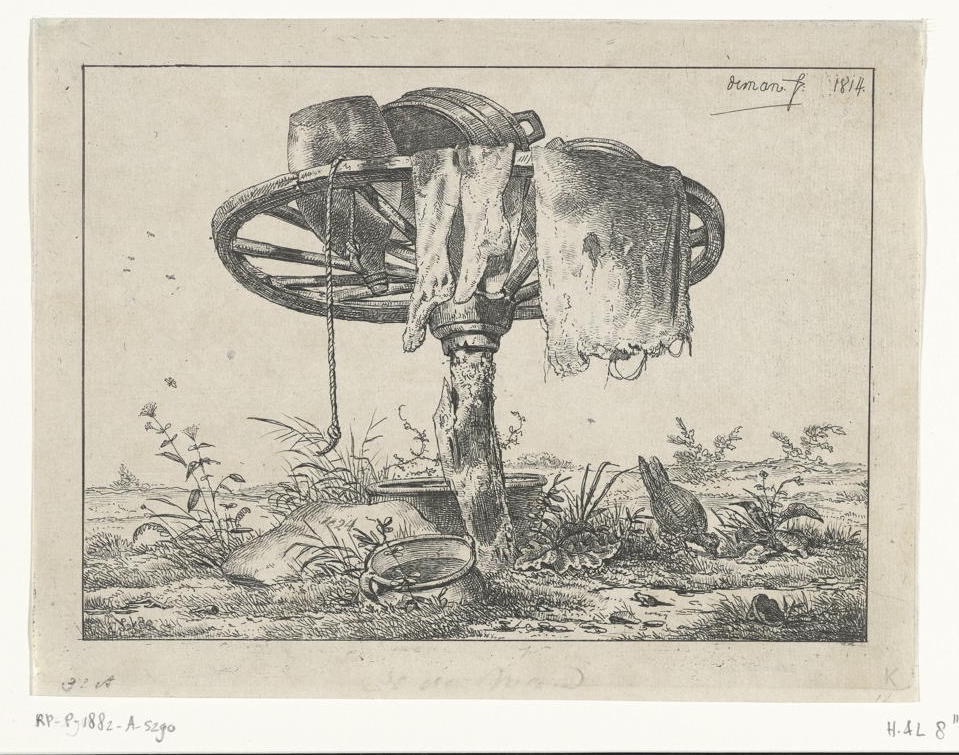
Anthonie Willem Hendrik Nolthenius de Man: Wheel on a pole (1814)
——
A Less Than Perfect Christmas Poem
Merry Christmas, Happy New Year, this season seems to be overflowing with expectations of great joy. I find those expectations more onerous than uplifting, for I do not know how to create joy. For me, joy just happens. It properly must be a surprise or it doesn't qualify as joy, so I cannot will it or otherwise engineer it into being. Merry and happy seem similar, both difficult to impossible to create and probably fruitless to insist upon. Insisting that another be happy seems like a reliable recipe for inflicting misery.
How about wishing someone a reflexive Christmas or a satisfying New Year? These adjectives could make reasonable targets without seeming so darned oppressive. Burdened with the command to be happy, I feel a little desperate, especially when I'm just not feeling it. My mom would advise turning that frown upside down, as if facial expression controlled mood. It was well-intended encouragement even if it never really worked.
I managed ten new Christmas poems this year. Here's one of them:
The Christmas Eve Trudge
I began writing these Christmas poems
more than twenty-five years ago
to avoid experiencing what I’d come to call
The Christmas Eve Trudge.
The Trudge resulted from unrequited searches
for that perfect present for that perfect person,
a common side-effect of seeking perfection
and one I almost universally experienced then.
I figured that if I stopped shopping
rather than stopping seeking perfection,
that I’d magically lessen the opportunity
to experience the resulting depression.
The incongruity of reliably experiencing
Such sadness while preparing to celebrate
the widely-advertised happiest day of the year
drove me to tears and worse.
It drove me into the irrationality
that encouraged me to write my poems instead,
in the delusional belief that I might thereby
avoid experiencing The Trudge.
My error might have been multifaceted, though.
It could have also resulted from my conviction
that Christmas should properly be, and was,
the happiest day of the year.
It wasn’t, or had never been in my experience.
It was rarely the saddest day of the year, either,
but never actually the happiest.
It was always a day of mixed emotions instead.
If, by chance, I received a delightful present,
my Christmas could, indeed, prove to be happy,
or, more properly, I might feel happy then.
But the chances of receiving such seem slim.
More likely, I’d receive what someone truly
believed would “make me happy,” but didn’t,
resulting in my reconsidering our relationship.
We clearly didn’t know each other all that well.
And this realization sobered me considerably.
It didn’t “make me” feel sad, just reflective.
I’d accept the present under the given conditions
and move on to life’s next little discouragement.
Happy New Year always promised recovery
from any Christmas disappointment,
so I survived, though I still feared The Trudge.
Writing poems instead of shopping did nothing …
To help me avoid The Trudge, though,
because it was also a feature of poem writing.
Attempting the perfect poem for the perfect person
also induces what pursuing perfection always does
… The Trudge. The problem was perfection
and always was.
Let me wish you a less than perfect Christmas
and Christmas poem, this and every future year!
12/22/2025
©2025 by David A. Schmaltz - all rights reserved
Serendipity

Anthonie Willem Hendrik Nolthenius de Man: Wheel on a pole (1814)
A wagon wheel on a tree trunk, with garments, a jug and a tub on it. On the right a chicken.
— — — —
"…an undifferentiated dopamine rush, and then another."
My scrolling most closely resembles stumbling. I move relatively directionless. If not necessarily so at first, eventually. I lose whatever thread of coherence with which I might have begun scrolling, then commence to seeking some Serendipity instead. I feel hopeful, as if I might surprise myself, though I sort through a raft of crap before, finally, eventually stumbling upon something vaguely satisfying. That seems to be the reward for the aimless wandering, a clear waste of precious time, paid off for with some Serendipity, a discovery I couldn’t have possibly held a specific intention to find. I receive a random payoff after taking an equally random walk. Once I’ve extracted the goody off that one, I’m likely to continue scrolling with the tacit intent of repeating that satisfying discovery with something different but identical, ad infinitum.
What happens when an economy, a society, quietly but inexorably leaches out the ability of its citizens to expect?
ClosingIn

Ann Nooney: Closing Time (1937-1742)
Works Progress Administration (Sponsor)
"One might never notice what's not present in their life as a result of their scrolling addiction."
Scrolling started in earnest during the Covid shutdown. It didn’t start immediately, but it seemingly inexorably grew to consume an inordinate amount of a typical day. What can I say? The library suddenly felt risky. The television doesn’t work in our house until after sundown. The Muse was working remotely—first in the basement, then, after we relocated back home, in her back-of-the-second-floor office. There was little else to do, or so it seemed, and the illusion of connection fed what would become a full-blown addiction. I’d finish my work before seven a.m., then look at the day stretching out before me before immersing myself into the only activity left that would have me.
That world delivered convincing cues that I was doing something.
News

Robert Dighton: Well Neighbour-- What's the News?,
from A Set of Heads (c. 1795)
"Few of yesterday's urgencies ever came to pass."
I no longer understand what constitutes news, if, indeed, I ever did know. It apparently had something to do with urgency and importance, neither of which criteria much of what passes as news satisfies today. The “all the news that’s fit to print” NYTimes fills its pages with little urgency and seemingly less importance daily. I still subscribe, if only to maintain access to an outlet that doesn’t just pretend to be in the news business, unlike most of the offerings piggybacking on social media’s coverage. Every little blemish seems to qualify as News to many of those. I long ago refused to engage on Twitter, now ‘X’, not only because I never figured out how to use it, but also because it seemed an unseemly outlet for sharing anything serious. News, I still firmly believe, must be serious business or it’s not a business at all.
Fox (Faux) News created an infotainment product, if not an infotaintment one.
1stInfinity

Giovanni Battista Tiepolo: The Apotheosis of Aeneas ((c. 1765)
Gallery Notes: This bozzetto, or preparatory sketch, was part of Tiepolo’s designs for the fresco ceiling of the Guard Room in the Royal Palace in Madrid, which was executed by his large workshop. The artist excelled at manipulating perspective and color to create dramatic compositions in which space seemingly recedes toward infinity. Here he combines two events derived from Virgil’s Aeneid. The first is the promised deification of the Trojan hero Aeneas, who is depicted in red rising to the Temple of Immortality, accompanied by winged personifications of Victory and Justice. The second is the appearance of his mother, Venus, who is clad in white at the upper right of the painting. Along with the Graces, she presents Aeneas with arms forged by her lover Vulcan, who supervises their making below. Tiepolo gradually lessened his use of earthly reds from the bottom to the top of the composition, which exaggerates its dramatic effects.
— — —
"I wonder what I so passionately and, ultimately, passively sought there."
In the 16th Century, Giordano Bruno argued for the existence of infinite worlds within infinite worlds. He was burned at the stake for his trouble, yet we recreate his speculation each time we try replacing one habit with another. Scrolling, for instance, seamlessly immerses us in an infinity, one in which space and time lose meaning. This easily becomes all-consuming, so high a priority that we can neglect everything else without remorse, without even noticing. The time when I first chose to limit my entry into the scrolling infinity, the first thing that occurred to me was a sense of nearly limitless time. My most prominent limit had essentially evaporated, leaving me with a fresh sense of infinity. Unlike the infinity I inhabited when scrolling, which had gone beyond my conscious awareness, this 1stInfinity overfilled my consciousness. I felt a real sense of excess. I couldn’t yet grasp what to do with it.
I suspect that this sense will diminish over time, as fresh infinities cast shadows over this latest, freshly discovered one.
DecencyUnscrolling

Unknown Artist: Scroll 2: Nezumi no soshi emaki (1600 - 1650) Nara [?], Japan
"…hello to a fresh strange bedfellow…"
As I neared the end of my Decency Series, I, as usual, began fretting about what might follow. By the eightieth installment of any series, my sense of its content has become a permanent resident. I no longer fret about what to write next because the flow has become inexorable. One installment follows another without requiring overmuch conjuring. But I end each series on the upcoming equinox or solstice, so when the winter solstice started casting shadows, I began my usual fussing again. I had finally become accustomed to where I was going just in time to reach my agreed-upon dead end. What comes next?
Whatever comes next will later seem a prescient choice, but in those moments before I decide, it looks as if I should be hiding from rather than warmly embracing my future.
Selfullness

Paul Cézanne: Self-Portrait (1898)
“I’ll be studying and learning this lesson for the rest of a halfway Decent lifetime.”
Brian was always the brightest person in any group he worked with. He naturally gravitated toward performing in a pivotal role, often as a leader. If not the formally-declared leader, then the most widely-acknowledged one. He was, by any measure, an enormously Decent person, patient, often to a fault, and extraordinarily kind. He promoted The Muse and my work, sponsoring some workshops and championing our perspectives. He mentored many. When our business went bust, The Muse found a real job, primarily on the strength of Brian’s lead and his firm, supportive recommendation. He worked unimaginable hours, routinely arriving early, leaving late, and working weekends. He developed the habit of never taking vacations, since he was really the critical presence when one of his dozen or more projects faced a significant milestone. Something was always facing another critical milestone review.
HR finally confronted him after he’d accumulated three months of unused vacation time.
Weekly Writing Summary For The Week Ending 12/18/2025
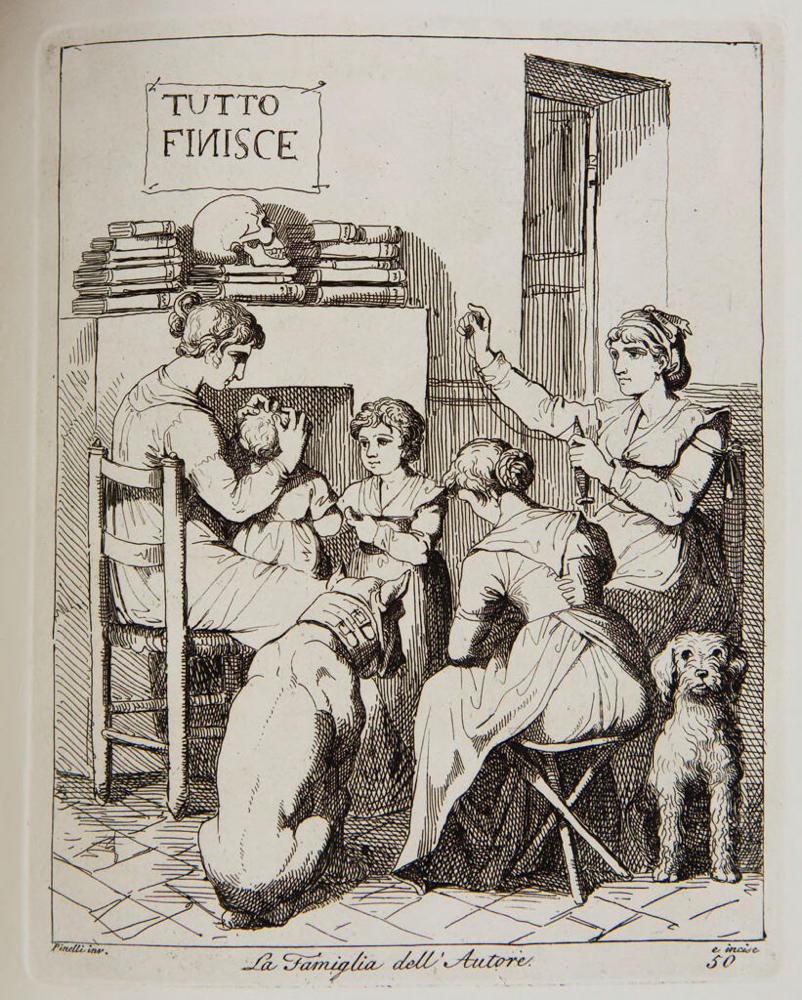
Bartolomeo Pinelli: The Author's Family (1810)
In reflection, this writing week delved more deeply into Decency's philosophical underpinnings than had any previous writing week in this series. As I near the end of this series—only two more installments remain—it might make sense that Decency gets reduced to the philosophical it might actually be, though I consider it more an ethical philosophy than a necessarily moral one. The distinction, since I'm already delving into the deeply philosophical, lies in who directs the action. In moral action, it seems somebody else directs by commanding, "Thou Shalt." In ethical action, the actor directs the action and stars in the performance. Decency seems to be necessarily self-directed action.
I began this writing week avoiding providing instruction, instead simply reflecting "On Being" Decent.
Excluding
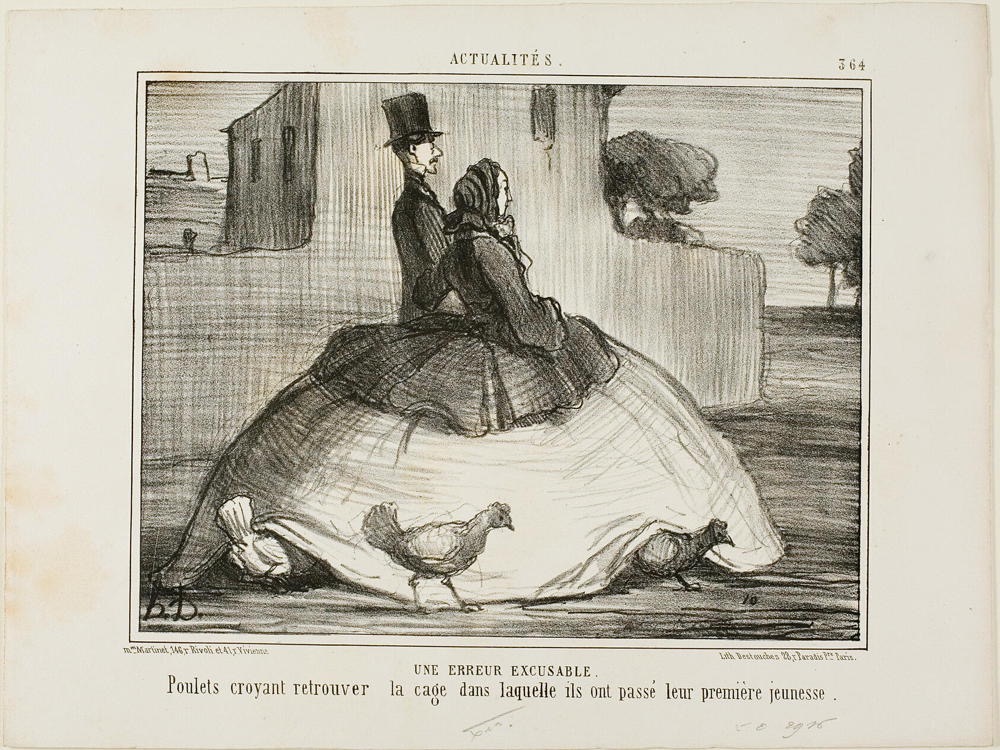
Honoré Victorin Daumier: An Excusable Error. Chickens thinking they have found the cage where they spent their early childhood, plate 21 from La Crinolomanie (1857)
ABOUT THIS ARTWORK
This lithograph focuses on the outlandish crinoline fashion, which lasted about a decade. Among other activities, Daumier’s exuberant crinolines destroy gardens, sweep up street trash, and catch their wearers in high winds and turnstiles. While this plate comes from the Actualités series, it has also been catalogued under the topic La crinolomanie (Crinoline Mania). This sheet and others by Daumier play on the support garment’s incongruous approximation of the human form. Daumier’s images stress that these contraptions, whether cage- or basket- like, were functionally useless.
—- —
"…we can curl up in wonder…"
The hospitality industry has finally become the least hospitable industry. I intend no artificial irony as I declare this obvious truth, just the old-fashioned kind of irony. What could be more Decent than hospitality? Perhaps nothing, unless it’s turned on its head. It has been turned on its head by seemingly everyone working in that most curious of industries. Hospitality seems an odd industry, anyway, because I can’t see smoke stacks protruding from whatever hospitality might be doing, and I think that I really should see smoke stacks protruding from the top of any Decent industry, even hospitality, if it actually imagines itself to be an industry.
In my day, even a half-decent industry featured assembly lines and efficiency experts.
FauxDecency

Jan Sadeler I: The False Shepherd (c. 1575)
"…I'd prefer to believe most would perceive such beliefs the utter opposite of Decency in action."
If Decency has always been a matter of choice, what constrains such decisions? I see today a proliferation of what I must characterize as poor choices made in the name of what I can’t quite comprehend as representing Decency in action. Our State Department’s embassies recently received a directive from the White House declaring that every country practicing Diversity, Equity, or Inclusion is guilty of human rights abuses. Likewise, those acknowledging their women’s right to choose. These pronouncements seem the very opposite of Decency. Decency stood on its head and turned inside-out: FauxDecency. I would live and let live in this instance except this instance seems a perverse exception, and it is the perversion that drives my aversion. This cannot represent Decency, even as practiced on Mars, or else Decency itself becomes a meaningless concept in practice.
The vast army of whacko right-wing conspiracy believists are not theorists, for they seem to firmly believe that their wickedness represents true righteousness.
AlternativeFutures
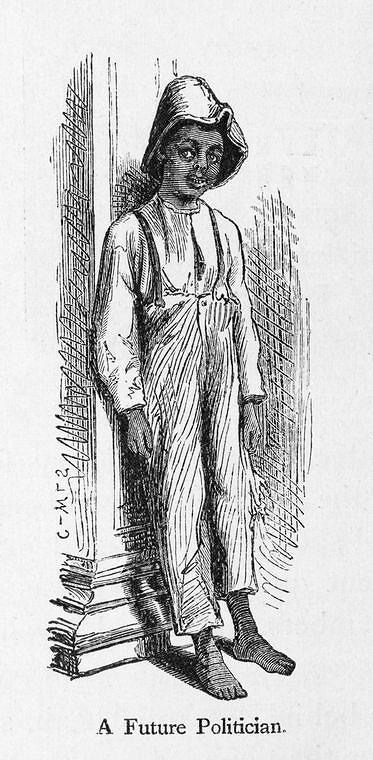
Edward King: A future politician (1874)
"Decency’s probably more resilient than even the most practiced cynicism."
My old colleague and friend, Al, who has followed my writing for about thirty years, reminds me after reading my recent story featuring pointed comments about cynicism that, as a species, we seem to be much better at predicting long recoveries than at experiencing them. He contends that most systems recover much more quickly than their intimates predicted. This pessimism about our resiliency might fuel much despondency. As we watch what we consider Decency crumbling before us, we do more than just order handbaskets. We believe we might never recover from this latest round of insults, even though our history seems resplendent with examples of more rapid recovery. Even if we held the power to regenerate a severed limb spontaneously, we wouldn’t necessarily relish the experience. We might come to believe that we were more finite than we’d ever actually been, and confidently predict that any individual lobbing off would do us in.
We are already recovering from these latest insults, even as the wolves continue devouring so much of what we hold so dear.
BecomingComplicit
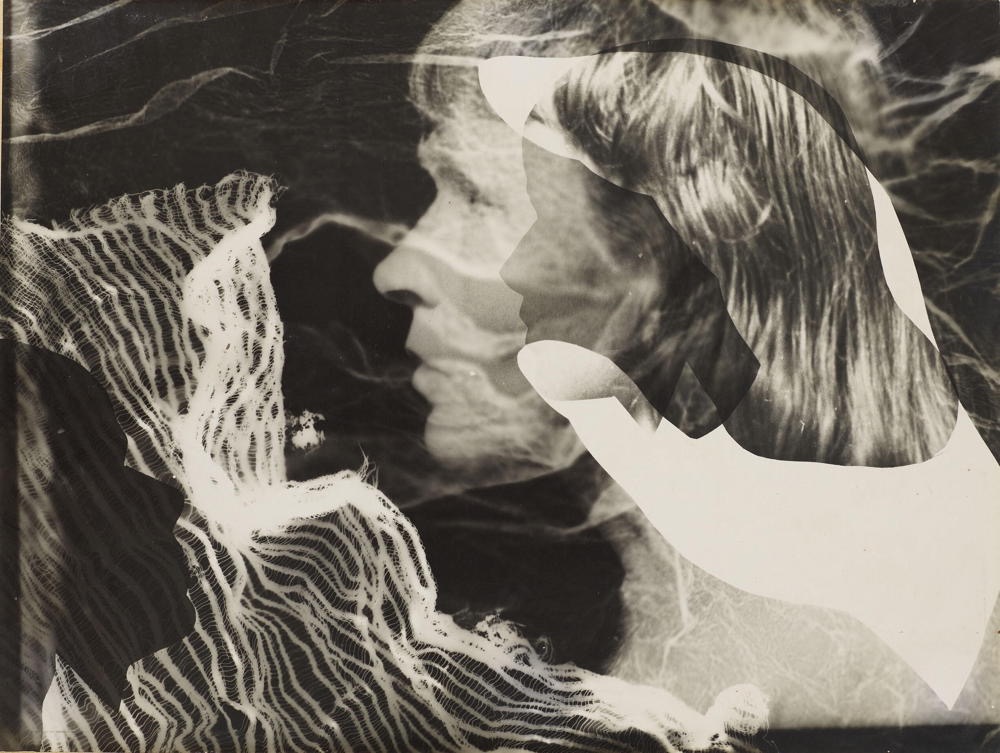
Anneliese Hager: Untitled [Portrait A. H.] (1947)
"Attempting to live Decently incurs ever more complicity."
To live is to become complicit. Attempting to live Decently only deepens this dilemma, for one may not insist upon society respecting one’s personal proclivities. Vegans surround themselves with murderers. Choosing to live Decently distances one from some, though it might also bring others closer. The least common denominator seems as unconscionable as it also seems most divisive. No way exists to avoid experiencing this division. The higher the aspiration, the lower the everyday experience. I have cordoned off vast swaths of my community as unworthy of my presence. I won’t shop at Walmart because of their disgustingly indecent business policies toward those they euphemistically call “Their Partners.” I won’t visit the Tractor Supply store since they tried to gain street cred by noisily cancelling their Diversity, Equity, and Inclusion policies under the phony guise of promoting actual equality. I was not born yesterday.
The more I embraced Decency, the more complicit I became.
DeSensing
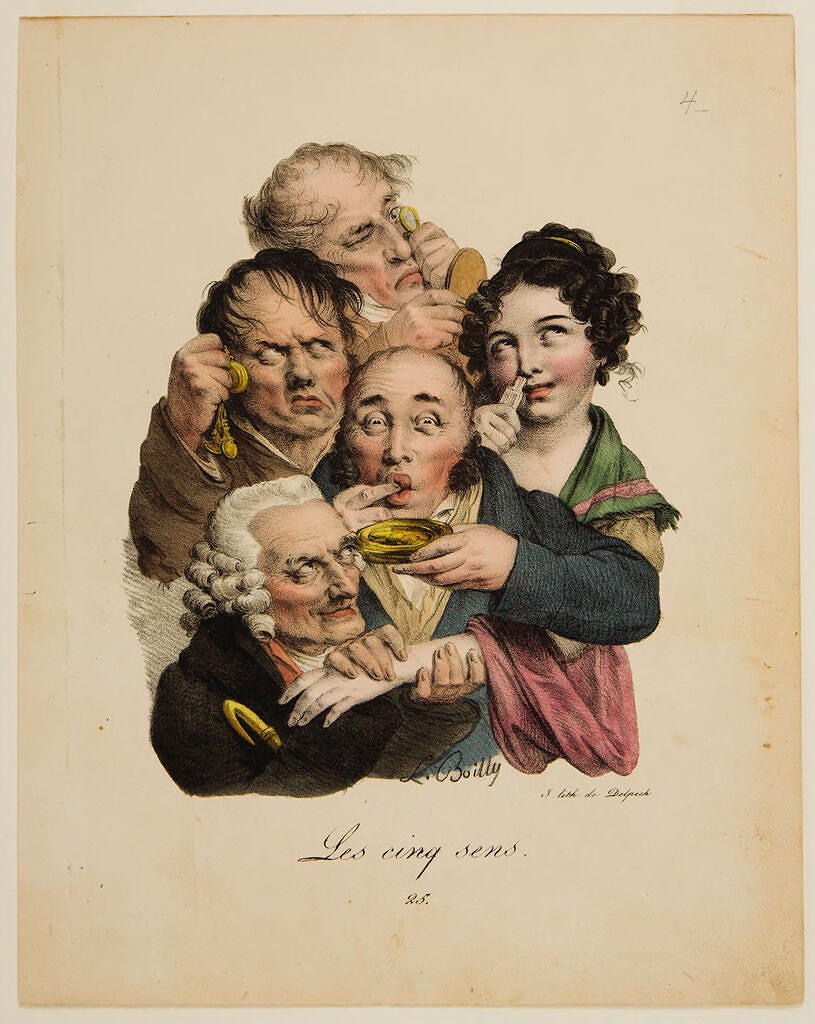
Louis-Léopold Boilly: The Five Senses (1823)
"Decency primarily exists in the cloudy eyes of its beholders."
Decency requires certain sensitivities before it can be successfully deployed. One must accurately perceive one’s surroundings before one can engage congruently. Imperfections can create divergences such that Decencies escape my ability to properly muster them. I increasingly exist out of context, disconnected from the surrounding world.
Early on, I sensed that this world was someone else’s.
OnBeingDecent...

Giuseppe Maria Mitelli Allegory of the Lightness of Being (1702)
Gallery Notes: This elegantly attired nobleman – who is young (giovine), handsome (bello) and rich (ricco) – flaunts his possessions. His affluence is emphasized by the pile of gold coins on the table and the many costly attributes of art, gaming, and diversions that literally surround him. Yet apparently this is not enough. Amid all this opulence, he looks disillusioned and unsatisfied. Is this all there is?
"Decency's question is rarely what but when."
On Being Decent … In Indecent Places
I can speak with authority only about my personal experiences, and even that ability seems limited. I have nothing to teach anyone else, except by example, often by bad example. I am no paragon of anything except not being a paragon of anything. This context says nothing about the content of whatever I consider here, for I consider here to present an example of considering, not necessarily to conclude anything. That said, I have been writing Decency Stories for eighty-two consecutive days, discovering more than declaiming, sometimes seemingly shaming myself in the process. I have stumbled into contradictions and many tenacious misconceptions, realizing how little I understood the topic of my efforts. As I near the end of this series, I realize that I probably won’t be offering any crisp summarization of my subject at the end. I didn’t intend this effort to reduce understanding into a spare handful, but to expand it. It has proven more expansive than I could have imagined when I began.
One prominent subtext, though, that many of these stories have shown, involves one of the more common yet perplexing situations: On Being Decent In Indecent Places, not How To Be Decent In Indecent Places, but “merely” On Being Decent.
Weekly Writing Summary For The Week Ending 12/11/2025
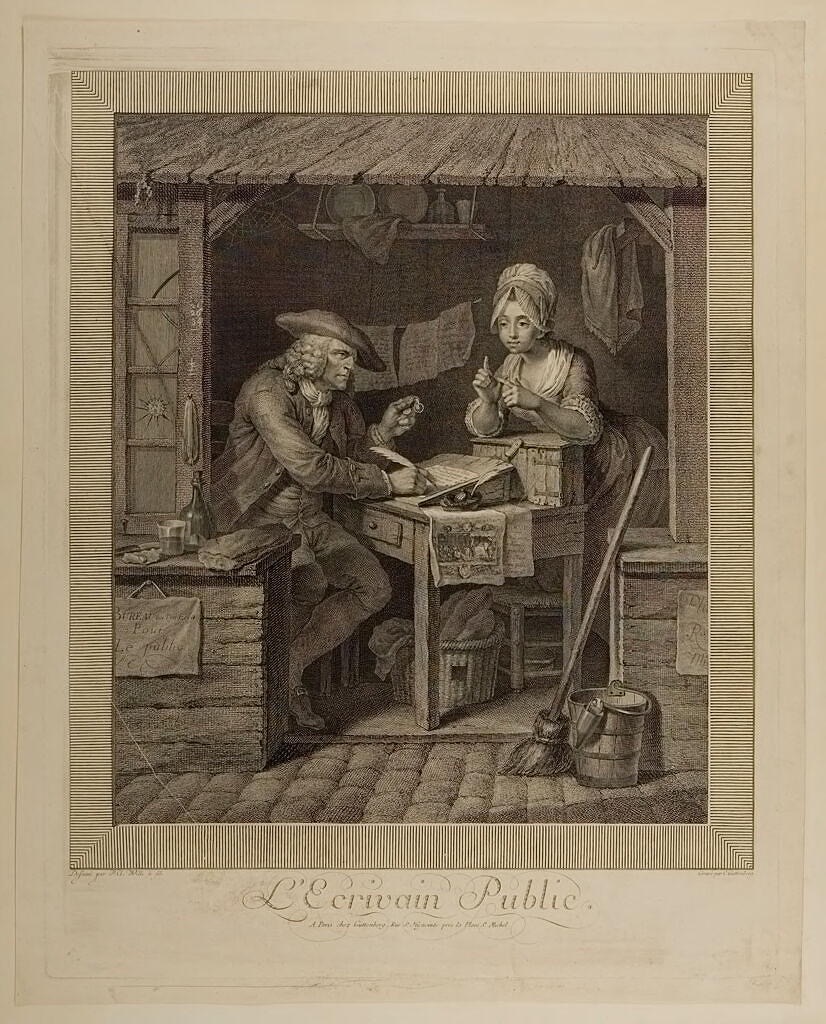
Carl Gottlieb Guttenberg: The Public Scribe [L'ecrivain public] (1783)
This writing week proved to be a relatively quiet roller coaster ride with highs and lows properly attenuated and ultimately, unsurprisingly, unanticipated. Little happened as I’d either hoped or feared, so much for prescience and good fortune. I’m coming close to concluding that we’re not the deciding factor here; we might thrive on synchronicity and luck, whether good or bad, but ultimately beyond our ability to influence. The fact that we feel an innate ability to control only makes this roller coaster ride more entertaining as our expectations repeatedly and ultimately, thankfully, disappoint our expectations. We should be both well used to and warmly accepting of these disappointments that visit us when we don’t immediately realize that our prescience so frequently fails us.
Decency was not as I'd expected it to manifest.
CynicismProofing
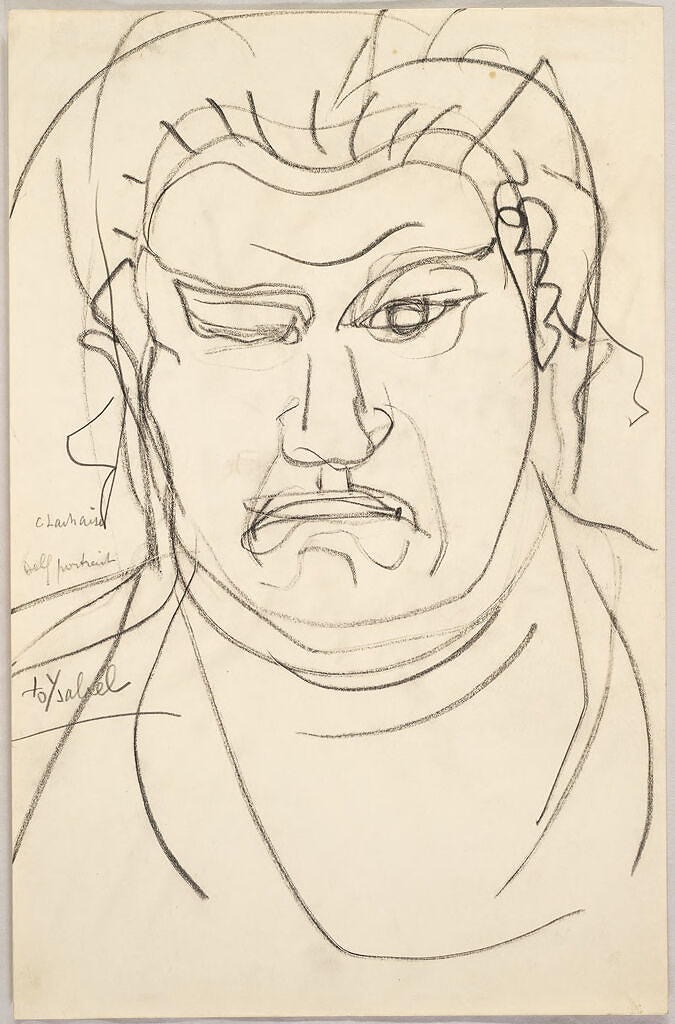
Gaston Lachaise: Self-Portrait (20th century)
"I will mount my defence against encroaching seasonal cynicism with some Decent poems."
I believe that there’s only one essential battle fully worthy of human engagement, the eternal battle against cynicism. Cynicism has always been humanity’s greatest foe. It possesses strange attractors, though. It tends to interest those who have grown weary of the utter predictability of existence, those who convince themselves that they can see through “the game.” Those who contend that they play no game play the most encumbering one of all. The utter predictability of life can sometimes seem like a curse. Three score and ten, give or take, including the genuine risk of an early demise. The galling impermanence of existence off-puts. Those who fain invulnerability embody only cynicism. They project what they claim to oppose by merely breaking rules, as if liberty were little more than a tenacious inability to get along with anybody else.
After a dog-year downwind from utter incompetence, this witness to the attempted reintroduction of cynicism into our governance finds himself exhausted from the unending exertion.
InPractice
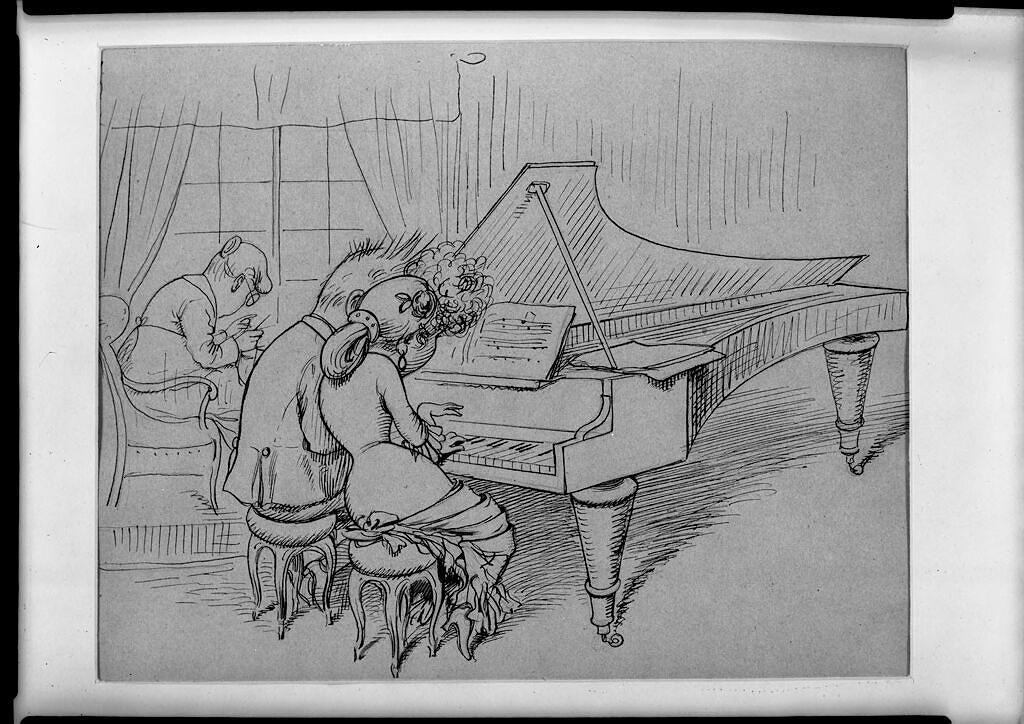
Adolf Oberlaender: The Piano's Revenge: Practice (1882)
"I might have initiated this enquiry only to continue it ad infinitum, InPractice."
I should not feel so surprised when I stumble upon the discovery that Decency, like every other concept, only manifests InPractice. In theory, it seems to contradict itself. Only InPractice does it exhibit its underlying nature, which proves to be indescribable. The description clearly ain’t the thing. InPractice, Decency seems to exhibit little if any ‘thingness.’ Not natively being either person, place, or thing, it steadfastly sidesteps all attempts at facile description, let alone definition. I suppose its dictionary definition performs as well as any dictionary definition might aspire to, though, as I believe I’ve shown in this series so far, much variation swirls around the concept’s central core. Decency can never manifest contextlessly. In fact, Decency seems unusually dependent upon well-formed context to exhibit much of any meaning at all.
You might not notice it when it exhibits.
Endimbenment
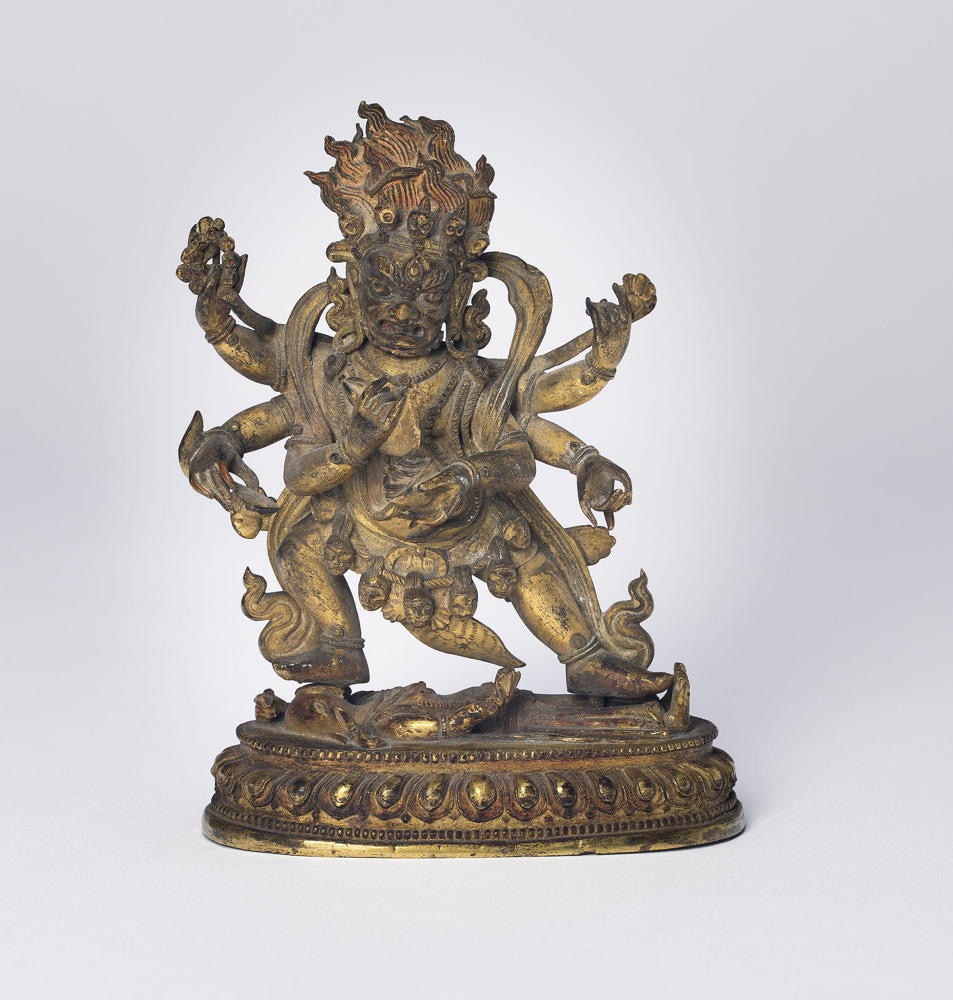
Unknown Tibeto-Chinese Artist:
Enlightened Protector Mahakala with Six Arms [Shadbhuja] (18th/19th century)
"Certainty must certainly be the surest sign of ignorance."
Acquiring knowledge and understanding never occurs as advertised. I understood that I would be acquiring something and come to know as a result of my efforts, but the outcome seems to reliably be different than either of those. Determining the endpoint, when such searches are finished, proves challenging, and applying what I learn, even more so, for it seems that I acquire much less, but also much different, than I expected. Even when I adjust my expectations beforehand, based upon my long and disappointed experience, the result underwhelms me. It always seems much simpler than it should properly seem and also much more complicated. I tend to find myself incapable of explaining what I experienced, what I definitively learned. I feel more humbled than haughty.
It’s little wonder why the uneducated look down their noses at eggheads, for the learnéd among us have suffered a shit ton more humility than have the great unwashed.
DecentPeople
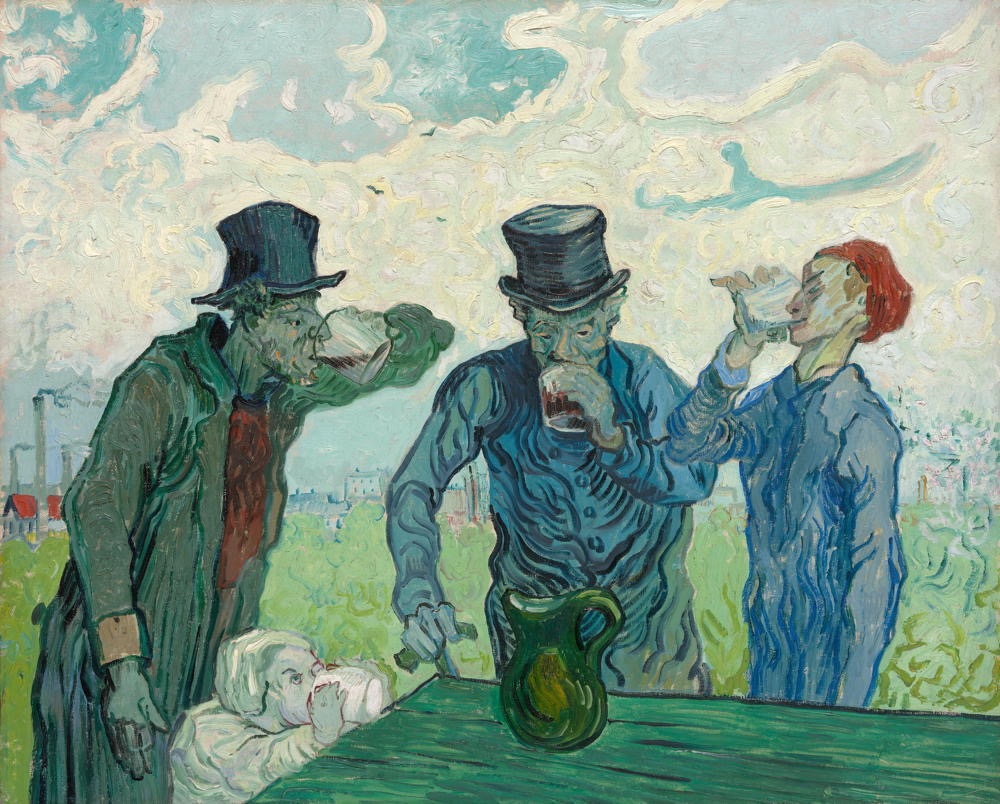
Vincent van Gogh: The Drinkers (1890)
ABOUT THIS ARTWORK
During his time in the Asylum of Saint-Paul in Saint-Rémy, a small town near Arles, Vincent van Gogh made a number of copies of the work of artists he admired, which freed him from having to produce original compositions and allowed him to concentrate instead on interpretation. For this image, Van Gogh copied a wood engraving from Honoré Daumier’s Drinkers, a parody on the four ages of man. The exaggerated figure types capture Daumier’s characteristic humor and convey his sad message about the horrors of alcoholism. The greenish palette may well be an allusion to the notorious alcoholic drink absinthe.
— — —
"My Decencies seem as fleeting as my days."
People seem to have a deep need to classify each other into categories. A deep need for self-esteem might drive this tendency, though there must be better ways for us to feel good about ourselves. This practice seems the likely source of prejudice, misogyny, and a startling list of the more prominent human frailties. I wonder why we couldn’t be generally better than this, since we hold the capacity to make finer judgments and even to choose to make no judgments at all. Would it kill us to make fewer judgments under some ‘judge not, lest ye be judged’ rule? I suspect so.
I feel embarrassed to acknowledge that, in this whole series, of which this writing finds me 85% finished, I have been spouting deep antipathy toward a class I labeled Indecent without clearly defining who belonged to that group.
SelfDeception
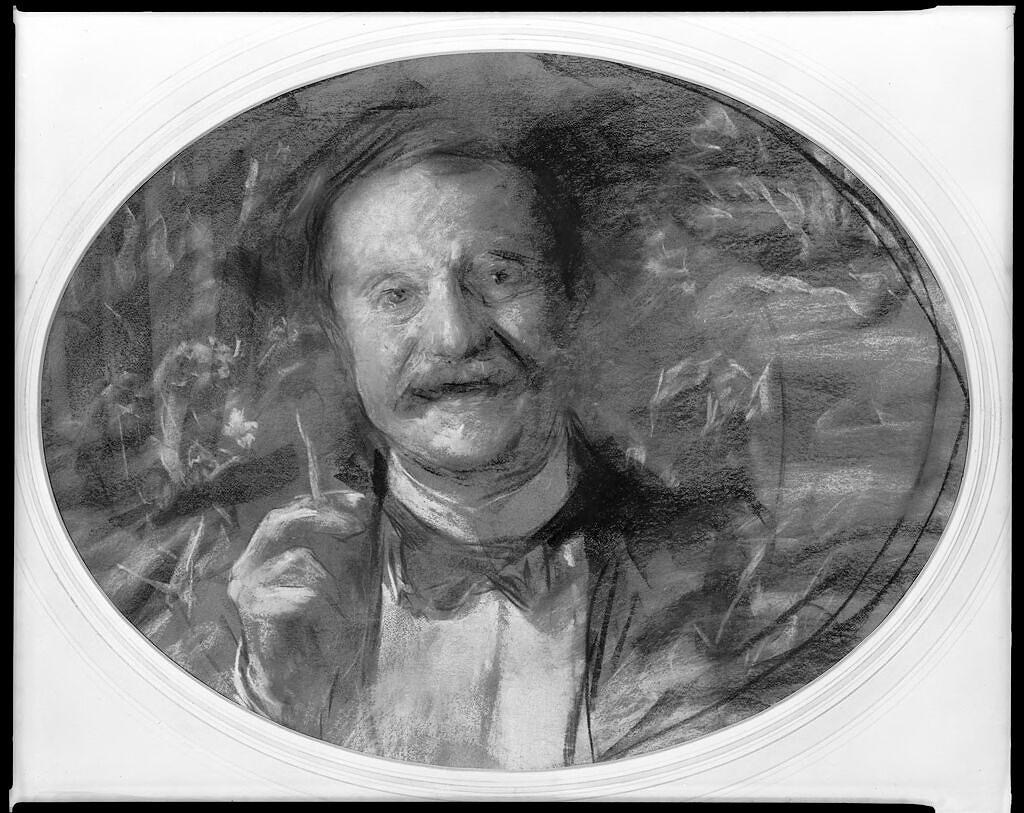
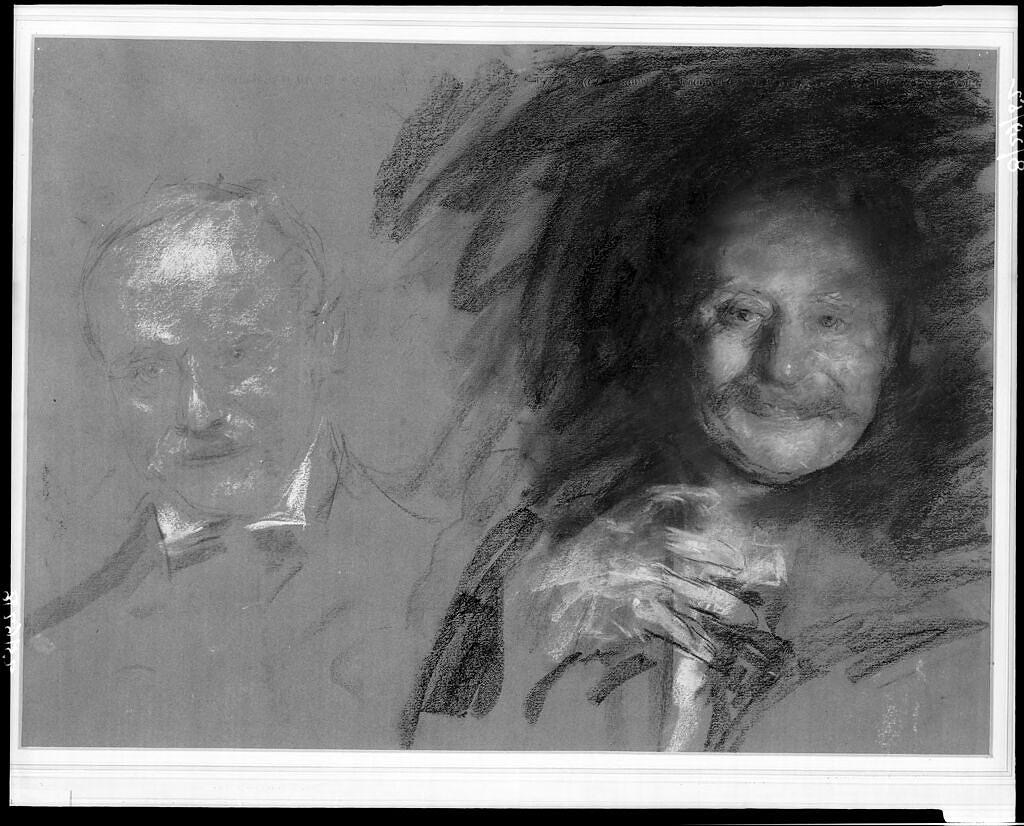
Antonio Mancini: Self Portrait; verso: Two Self Portraits (c. 1900-1902)
"The difference between Decencies might not matter as much as the intensity of each audience member's suspended disbelief, not to mention the actors'."
Discussions of Decency rarely mention the essential role that SelfDeception plays in its daily practice. Unlike a character in a novel or history, the Decent must wrestle with all the complexities and contradictions inherent in any practice. From one minute to the next, conditions might change, disrupting an intended trajectory. So, while one hears plenty of talk about choosing a path, one only rarely hears stories of having to pick and then continually choose again and again. There sometimes seems to be no end to the choosing when it comes to Decency. This can become understandably frustrating, with some loss of focus and discipline seeming common. The Decency originally intended can sometimes get twisted in delivery and manifest in rather embarrassing ways. A Decent SelfDeception might kick in then, to preserve self-esteem. The story remembered often seems divergent from the story as initially intended and executed.
Lapses in discipline are not uncommon.
HarshJudgments
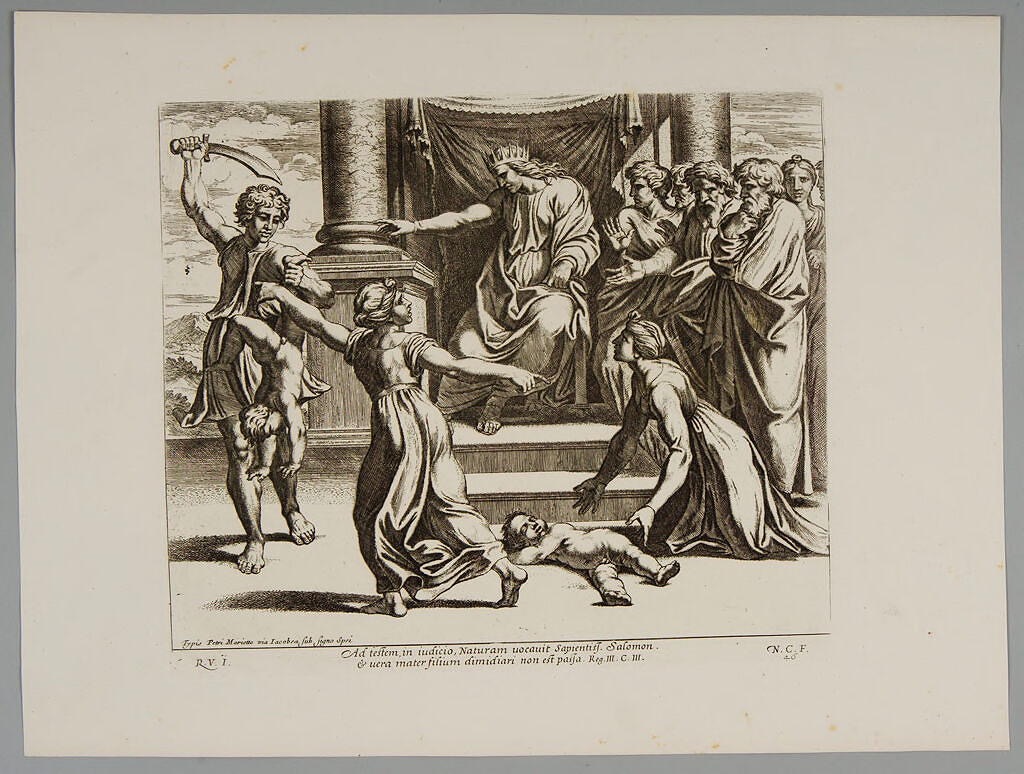
Nicolas Chapron: Judgment of Solomon (17th century)
"Let he who is without indecency cast the first criticism."
The Decent seem to have the greatest license to criticize those with fewer scruples. They appear to inhabit unimpeachable high ground that bestows better judgment, so who better to critique others? Does Decency necessarily assign such a responsibility upon its perveyors, or are they somehow enjoined from overly overtly criticizing, lest that seem unseemly? I suspect the answer to these questions must be the responsibility of each Decent person. I know the answer for myself, though my answer sometimes shifts, depending.
I do believe it’s unseemly of me to criticize harshly, or, perhaps, to criticize at all.
Weekly Writing Summary For The Week Ending 12/04/2025
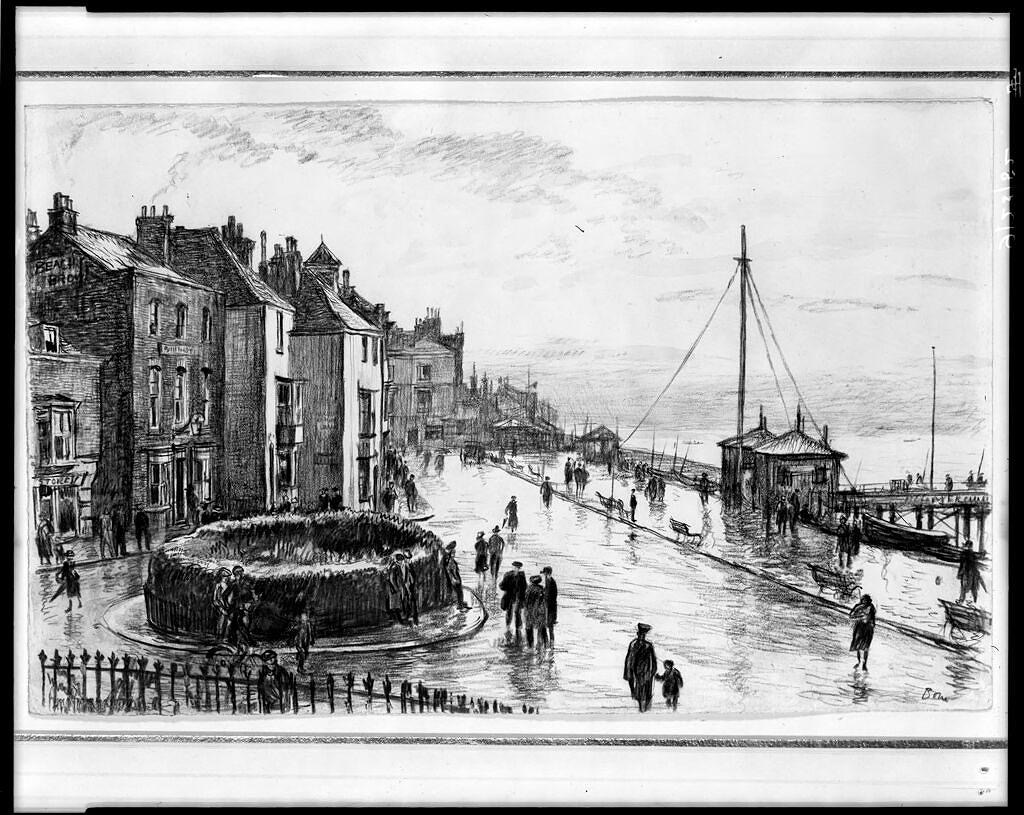
Muirhead Bone: Rainy Day, Deal ((20th century)
This writing week saw the first hard freeze in this Valley They Liked So Well. It also saw the start of its typical seasonal socking-in as this bowl filled with fog that the weakening sun could not manage to burn off. Rudolph the Red-Nosed had a prominent franchise here in my youth, and would today if video games hadn’t undermined most of our traditions. The Villa felt cozy with the fireplace blazing after my granddaughter Tilda struck the fateful match that lit the first pile of kindling and firewood, leaving the fireplace warming through the long post-Thanksgiving weekend. I continued my exploration of Decency in its surprisingly many guises. I suspect that if I focused this much attention on any topic, though, I’d only undermine whatever I thought I understood about it beforehand. Learning settles nothing, but usually opens ever more complicating and confusing cans of worms, ad infinitum.
Ferocency
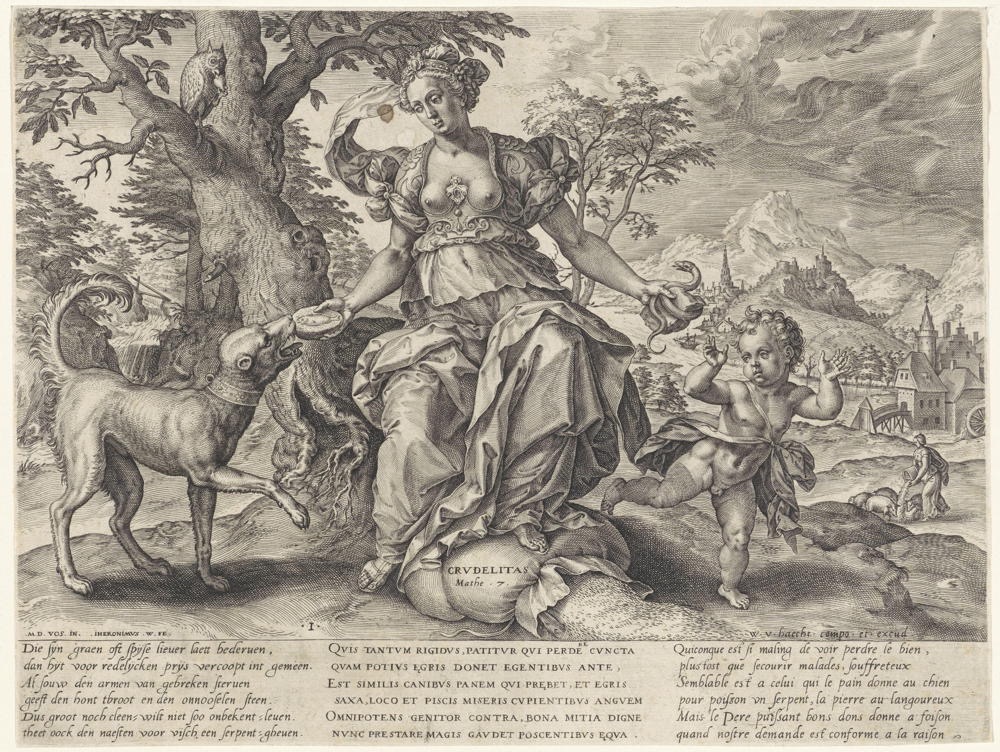
Hieronymus Wierix: Cruelty (1577)
Gallery Notes:
The female personification of Cruelty (Crudelitas) sits on a bag where the collected grain flows out. She hands a bread with a fish to a dog, and a stone with a snake to a young child. In the tree behind her sits an owl with a burning heart in its beak. On the left in the background a river with a current acceleration. On the right in the background a face on a village. On a field, a woman sprinkles food for the pigs. In the margin, a six-line exlanatory poem in Dutch, Latin and French.
— — —
"Under certain uncertain conditions, a two-by-four to the side of the head could be considered an intervention of Decency."
Varying intensities are permitted when deploying Decency. It needn’t always seem gentle or even necessarily kind. As with most things, tough love equivalents unquestionably exist, though one must usually deploy them circumspectly lest motive be interpreted differently than intended. In business, for instance, certain otherwise unseemly intensities seem permitted under the self-referential rubric that “business is business,” a multi-purpose excuse intended to cover every possible variation. It seems as though nobody can call “violation” regardless of the intensity of the application if it’s done in the pursuit of profits.
I’ve also noticed a certain erosion of what used to pass for decorum, allowing for some rather coarse words to be injected into otherwise benign conversation.
MoralHazards
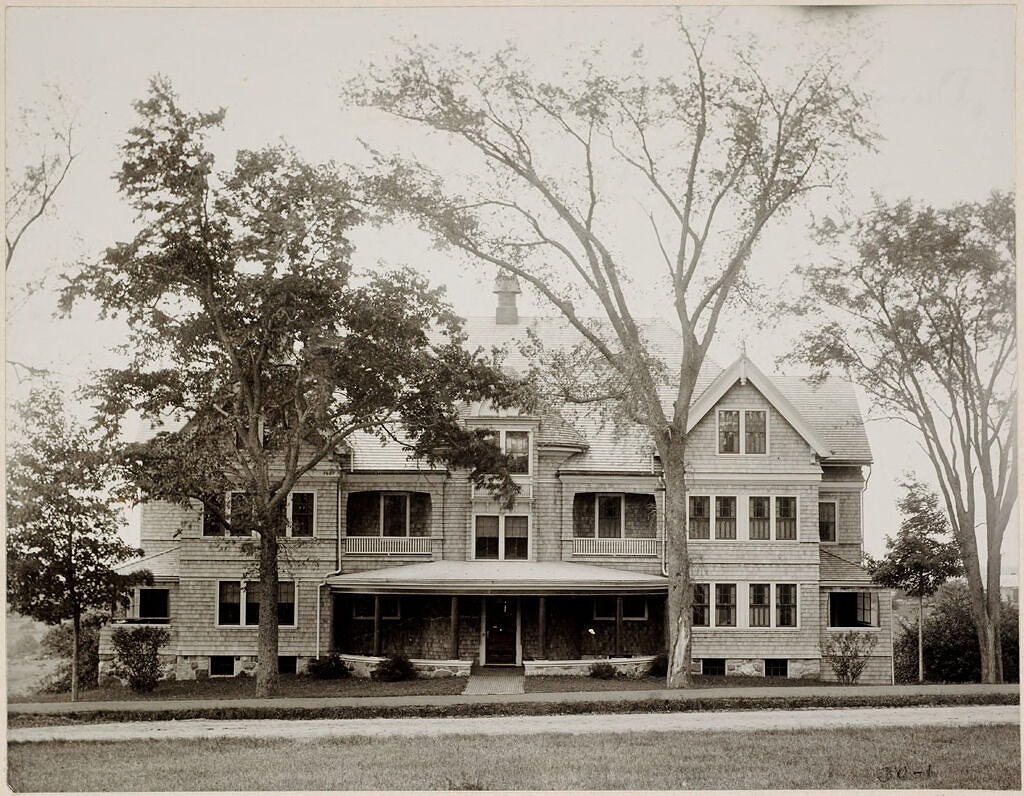
Unidentified Artist: Danvers, Massachusetts Insane Hospital (c. 1903)
"What does it mean to respond Decently then?"
Decency seems to demand continual adaptation. What constitutes Decency in one context might border on indecency in an adjacent space. Further, emotional states also enter into this calculus. One might easily justify different responses when feeling angry than when feeling secure. Decency does not provide an isolated or isolating platform for responding. Everybody’s inescapably in each fray together, whatever their behavioral or moral preference. It might not prove helpful to equate Decency with morality, especially when subtle senses of superiority creep into the internal conversation. That said, the Decent might behave more consistently, if only because they insist upon certain limits and boundaries. There are probably many more things Decency won’t consent to do than indecency even notices.
I’m fussing today about how Decency can get twisted in the presence of the insane.
InnerIndecency
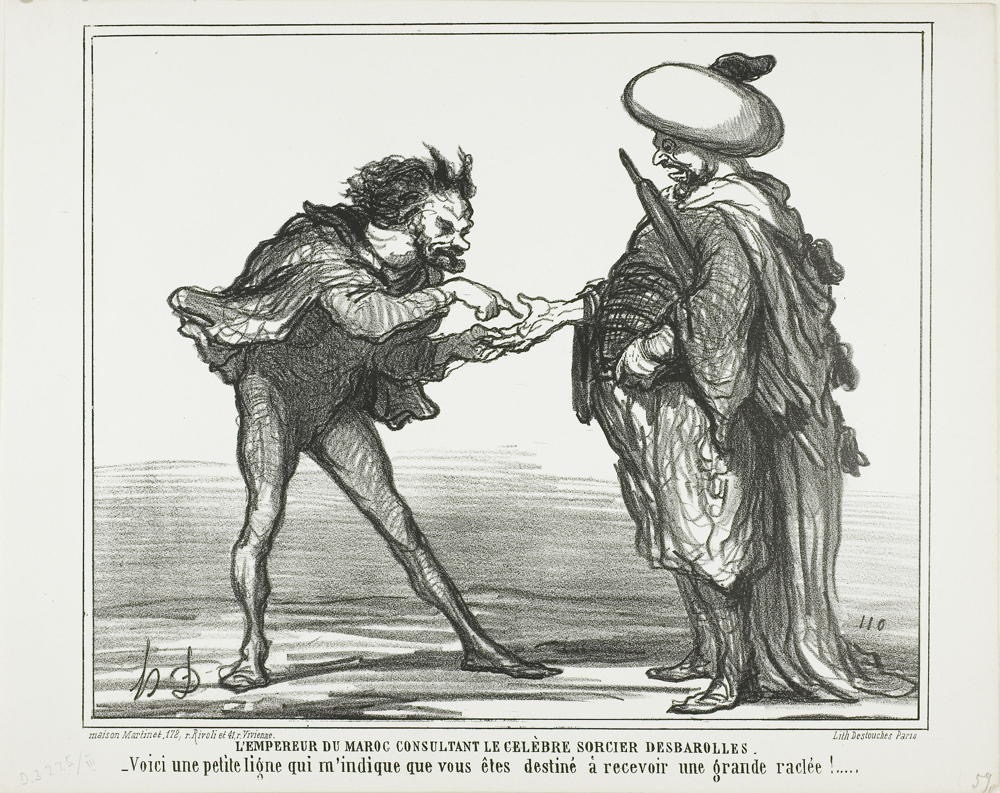
Honoré Victorin Daumier: The Emperor of Morocco in Consultation With the Famous Magician Desbarolles. “- This small line here indicates to me that you are going to get a royal thrashing!,” plate 126 from Actualités (1859)
"They ultimately only manage to fool themselves."
Some things I firmly believe that I can see might not actually exist. Belief provides more than adequate evidence to convince almost anybody that almost any nonexistent entity probably exists. Beliefs can be remarkably incorrigible beasts, so they must be held with a certain circumspection. They might support unshakeable conviction in absolute fiction. I concede that many of the worst indecencies I’ve ever witnessed fed on just such convictions.
Furthermore, few who held those convictions were ever considered to be felons, though the damage they inflicted might well have supported criminal indictment.
SelfDealing
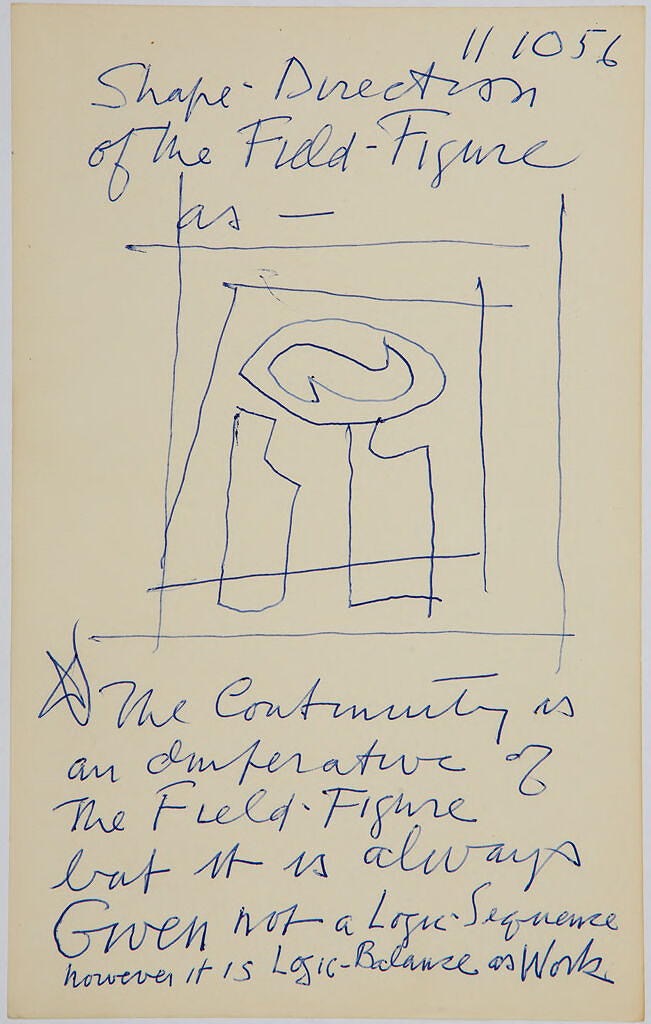
Stuart Davis: Study for “Package Deal” (1956)
"Nobody Decently corners any competition."
Decency requires some hair-splitting. One must somehow manage to sustain oneself without over-reaching. Society maintains laws against monopoly because we deem SelfDealing indecent. It’s unseemly for anybody to merely compete with their own interests. It’s considered Decent to engage as a part of a system rather than as the entirety of it. Monopolists freeze others out, essentially robbing them of opportunity, however much their monopoly might resemble greater efficiency. Efficiency in the service of nobody else amounts to wasted effort. Efficient monopolies are merely rapacious.
Oligarchies are monopolies on steroids.
RelativeDecency
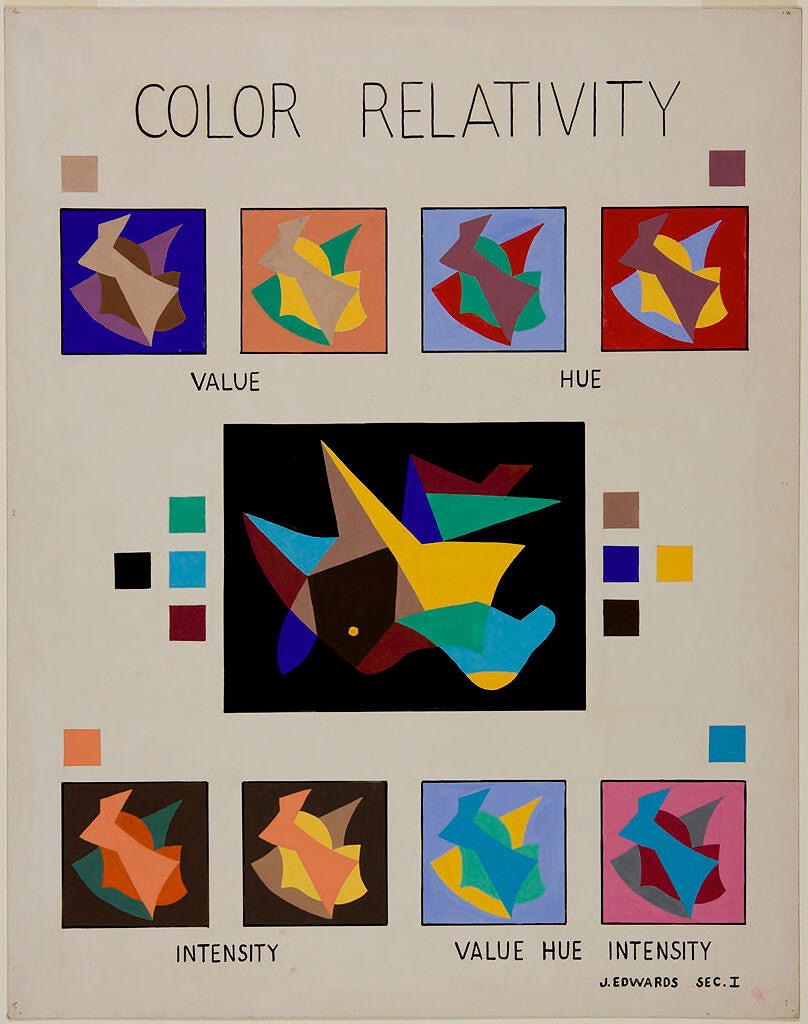
J. Edwards*: Color Relativity (1942-1949)
*Newcomb College Art School Student
"…I will remain confident that I understand what constitutes some relatively absolute Decencies."
Like everything else, Decency exists on a sliding scale. Few absolutes seem appropriate when considering it. One person’s Decency might well prove to be another’s downfall. Further, it often appears in know-it-when-I-see-it guises. I sometimes feel surprised to find that what I thought might degrade me turns out to elevate me instead. Likewise, some actions initiated in good faith and lofty intentions leave me feeling humiliated. Even with my considerable decades of experience, I have yet to develop a foolproof method for classifying Decencies. Yet I continue as if I understood, as if I could know how to tell Decency in action. I’ve many times proven myself fully capable of fooling myself. What could be preventing anyone else from fooling me, too?
I still consider myself firmly on the side of Decent.
D_e_C_ency
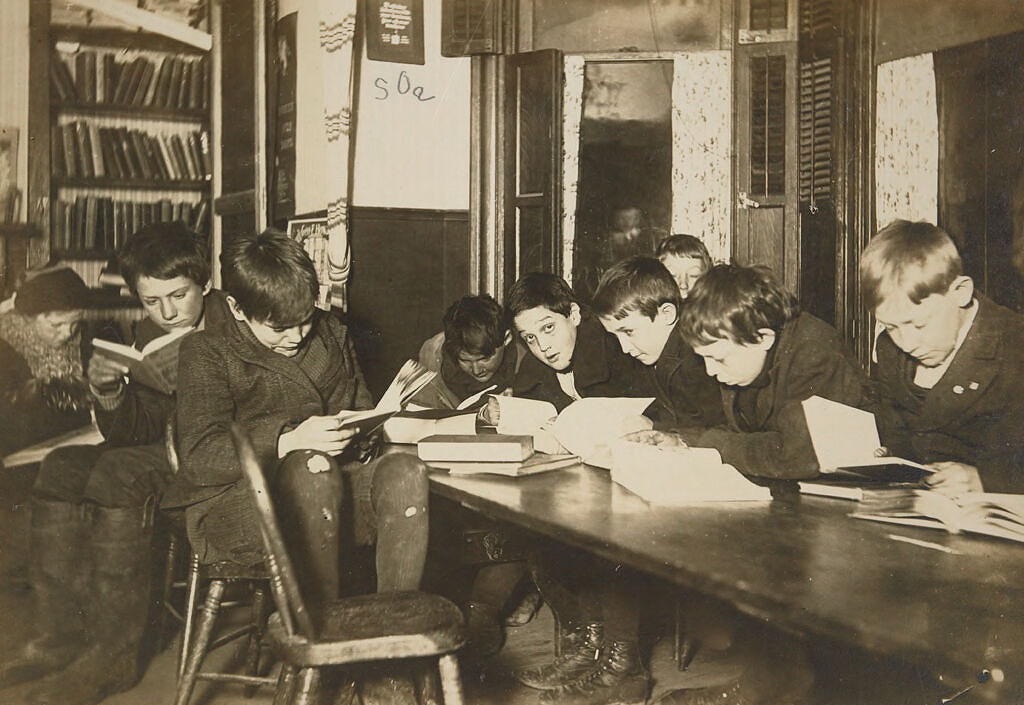
Unidentified Artist: Social Settlements: United States.
District of Columbia. Washington.
"Noel House": Noel House, Washington, D.C.:
Library and Reading Room (. 1903)
"Beware the land speculator promising to eliminate non-existent swamps."
Contrary to popularly promoted misconceptions, our nation’s Capitol was never a shithole. It did begin life as a swamp, one owned by that era’s most enthusiastic land speculator and so-called founder of our country, none other than General Geo. Washington, esquire. Those promising to “Drain The Swamp” were centuries too late, for the original swamp had long before been drained and filled to allow a truly great city to be built. The result was not, like most of this world’s capitols, some ancient artifact built on ruins, but a testament to a country’s citizens’ dedication to self-governance. They funded and built an odd collection of buildings, some grand and inspiring, others quite the opposite. The boulevards were broad and laid out so that every few ran diagonally. The result seemed absolutely unique in this as well as every other country. Its heritage was that of a swamp, for sure, but its legacy was self-esteem.
Many have noted that perhaps the primary function of government has always been to “Make Sausage.”
Weekly Writing Summary For The Week Ending 11/27/2025
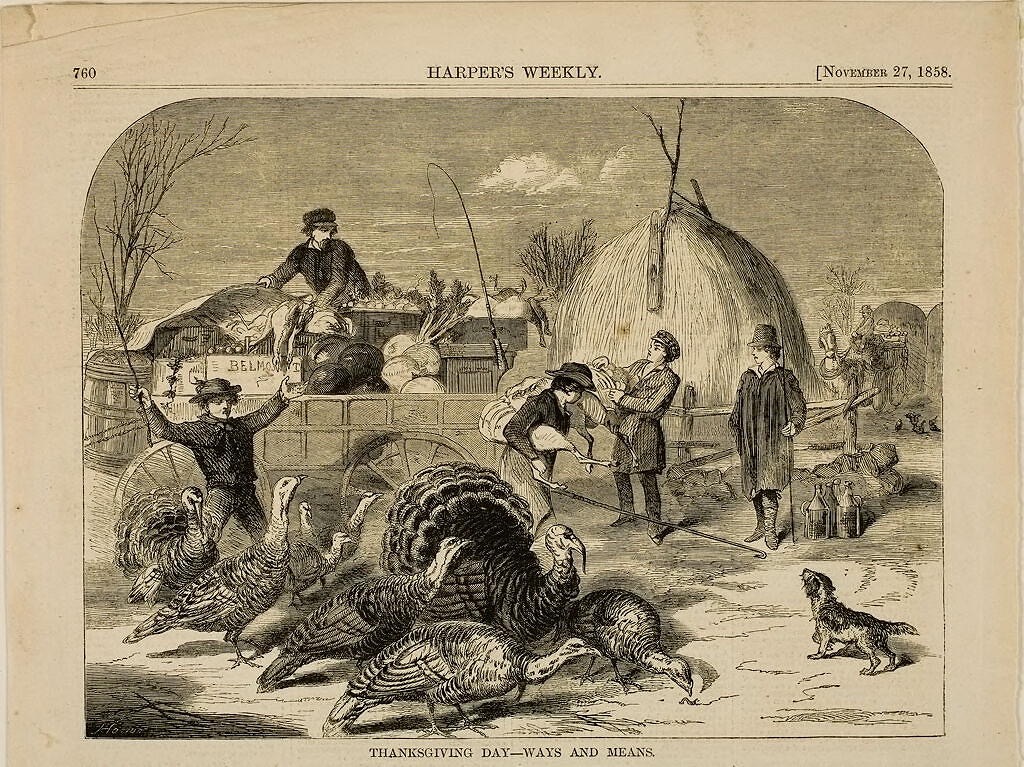
Designed by Winslow Homer: Thanksgiving Day - Ways and Means
Harper's Weekly, November 27, 1858
This writing week, like every previous week, was destined to become a writing week that was. Like you, I live with a trailing tail endlessly emerging, persistently trailing me, and refusing to let go of my present past or my fading presence. I routinely accomplish considerably less than I might otherwise prove capable of producing. Any engine designed with the presumption that it might perform at its design peak was always designed to fail. Any engine built to perform well beneath its design spec was always built to actually exceed its more optimistic expectations. I began this writing week naming a familiar haunt, the Dundency that has always followed me. I praised that most unlikely and always welcomed couple, Dignity and Freedom. I reframed my experience of Decency as a Decendency rather than as an ascendancy up and into any place above. I reported that indecency seems radioactive in Radioactivization (which is a term Google® found no hits for on the internets). I ended this week with a short screed insisting that Decency must be deployed relentlessly if it is to be effectively used. I appreciate all those who shamelessly employ their Decency without ever once necessarily expecting to be rewarded for their efforts. Bless us all as we defend the continuing insults to our Dignity again. Thank you for following along!
Relentless

Félix Edouard Vallotton: Cover for Paris Intense (1894)
"This necessarily requires that the Decent fear less and be Relentless more."
As near as I can determine from here, the universal antidote to indecency must be RelentlessDecency. Nothing more annoys the indecent than Relentlessness being employed in the service of the Decent. I know that we most often associate Relentlessness with more nefarious activities. However, I suppose that Decency probably seems evil enough to the indecent, perhaps among the most heinous possible activities, especially for the Relentlessly indecent. To be Relentless in the service of the good side of any equation demonstrates a reassuring dedication, for even Decency demands some consistency. Nobody much appreciates the merely fair weather Decent. One must, it seems, become requisitely Relentless to be taken very seriously. If I retreat into numbed silence or simply disappear whenever another indecency appears, especially when it seems Relentless itself, I might just as well have never been here. My sporadic contributions to the general well-being might not have gone for naught, but they probably didn’t go half as far as they might have gone had I more diligently held my ground.
Relentless Decency demands some courage from its practitioner, for it won’t always feel safe to honestly display your Decency when immersed in some den of iniquity.
Radioactivization

Barbara Norfleet: High level radioactive waste storage tank: Savannah River Plant (300 square miles): Aiken, SC. 35 million gallons of high level radioactive waste are stored in the deteriorating tanks
Series/Book Title: The Landscape of the Cold War(1988)
Harvard Art Museums/Fogg Museum, Gift of Barbara Norfleet © Barbara Norfleet (2010)
"That's what Decency appears to be here for."
Indecencies seem radioactive to me. They perform like unstable elements, bleeding atoms on their way to becoming something else. They are by their very nature transitory and poisonous. They produce waste that outlives their original purpose. They prove unsuitable for use in anything lasting. We do not build bridges out of radioactive materials for good reasons. We avoid including them in connecting roads, too. They can produce relatively short bursts of extreme energy and, when properly harnessed, longer-lived power. Whatever the use, though, they leave behind messes far exceeding their initially intended usefulness. Their use requires more than usual justification.
I visited my dentist last week and noticed that they no longer draped a reassuringly weighted lead-lined blanket over me when taking pictures of my mouth.
Descending_Into_Decency

Ohara Koson: Descending egrets in snow (1925 - 1936)
Five settling herons between snowflakes; snowy reed at the bottom left.
"That's how Descending Into Decency feels to me."
I instinctively think of Decency as holding an elevated position, slightly higher and left of some center line. When I engage in an act of Decency, though, I feel a sensation more like Descending. I reflectively think of myself as Descending into Decency rather than stepping up into it. This descending should not be mistaken as degrading or any of the other coming-down metaphors. Decency feels like immersive activity, effort that seems to cloak and reassure me, as if I were being carried and cared for, even though I know I’m the one caring for myself in those moments. Decency seems inherently innocent. It expresses an inner innocence regardless of a person’s prior experiences. It can even be an antidote to some experiences, a penance, or a form of forgiveness.
Because Decency’s always a choice, it brings certain limitations.
CommonDecency

John Singer Sargent: Venetian Glass Workers (1880–82)
ABOUT THIS ARTWORK
Trained in Paris, John Singer Sargent traveled to Spain, the Netherlands, and Italy early in his career in order to study how painters such as Diego Velázquez and Frans Hals captured the effects of light and rendered figures in space. Venetian Glass Workers is one of several genre scenes featuring glass-bead workers that Sargent executed in the early 1880s. This backlit view of a shop in Venice is dark and atmospheric except for the brilliant strokes of light green and silvery white paint that describe the canes of glass as tradespeople prepare to cut them into bead-sized pieces, which will then be polished and strung into jewelry.
— —
"…everything's extraordinary, especially and including CommonDecency."
I once inhabited a now utterly mythical place: The Past. What seemed ordinary and commonplace then, when it was present, seems utterly extraordinary and absolutely unattainable now. I do not mean that some rare and special things are now rarer and even more special, but that even the most pedestrianly commonplace items have now joined the ranks of the exceptional. I can almost experience these once-so-ordinary things vicariously now, through dreams and fading memories, though the colors and textures seem blunted after the passage of so much time.
I have been noticing lately just how remarkable almost everything suddenly seems.
Dignity&Freedom
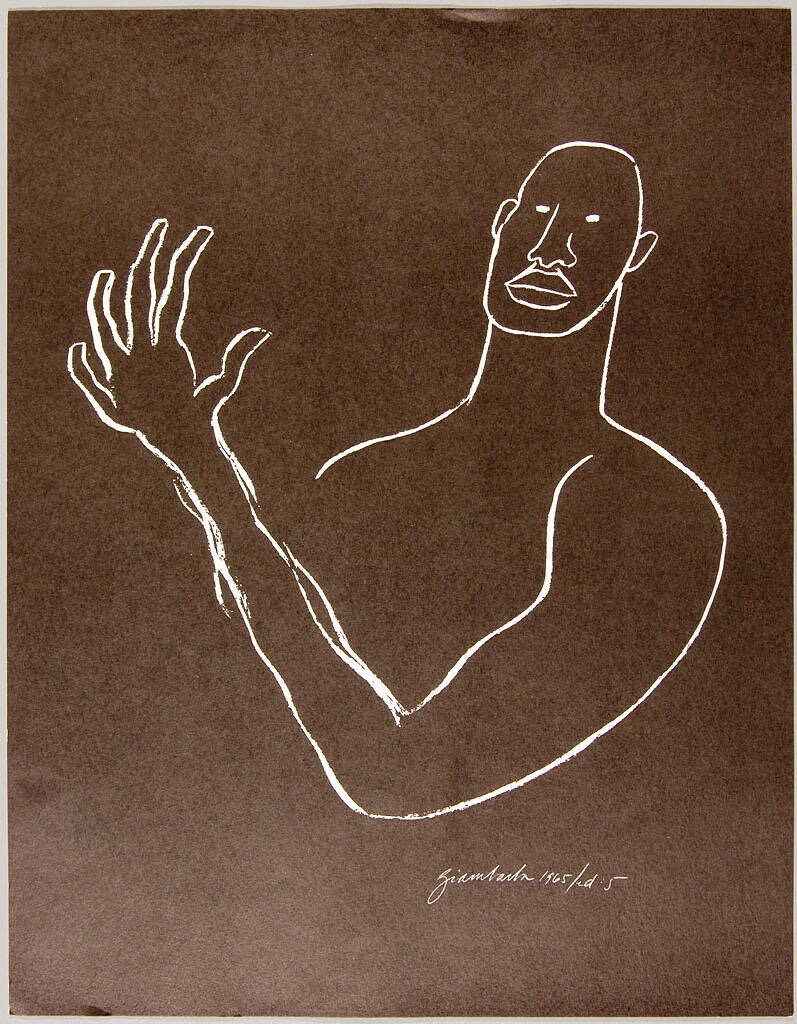
Paul Giambarba: The Withered Arm (c. 1960)
"May Dignity&Freedom never abandon them…"
Facing invasion by a hostile neighbor, Ukraine declared its purpose for defending its sovereignty. It announced that it was fighting for Dignity&Freedom. Their Freedom demanded a deeper purpose. It could not stand alone as sufficient to justify the suffering inflicted in its defense. Dignity would have to be Freedom’s companion to properly justify the struggle. This combination has lent Decency to Ukraine’s otherwise purely defensive strategies, inspiring freedom-loving nations around the world. Unfortunately, my country tisn’t of this at present. Our incumbent has made it his special mission to discourage our intrepid ally by denying it the necessary and prudent support that any freedom-loving nation deserves.
Now the world observes a different struggle, one between Decency and its enemies, who presently most prominently include Russia and the once United States.
Duncency

Mervin Jules: The Art Lover (1937)
Gallery Notes:
An admirer of 19th-century French artist Honoré Daumier’s social caricatures, Mervin Jules satirizes the myopic gaze of a bourgeois connoisseur scrutinizing a painting. The painting-within-a-painting depicts workers demonstrating against the backdrop of a smoke-filled industrial landscape. The subject memorializes the infamous 1937 Little Steel strike, during which police fired on unarmed unionized steelworkers and their sympathizers protesting low wages and poor working conditions. Jules executed this painting during a formative time when he was studying with Thomas Hart Benton at the Art Students League and employed by the silkscreen unit of the Works Progress Administration.
— — —
"Let such mysteries be."
Not all Decencies contain the same quantity of sincerity. Some seem more phony than actual. Some seem counterfactual. I mention this not to encourage paranoia, for minor discrepancies are probably nothing to lose much sleep over. For one reason or another, or for no discernible reason at all, some will pretend to be acting Decently when they actually aren’t. The motive probably doesn’t matter. The insincerity says much more about them than it ever could about you, and what it says about them will probably remain unspoken, even if you were to break ranks and ask after the disconnect. These acts most often remain uncommentable. You might be able to convince yourself that something smells fishy, but the fish rarely admits to any deliberate deception, or even inadvertent. This often means they’re not aware of their inauthenticity. So be that.
I speak here of that niceness that seems out of context.
Weekly Writing Summary For The Week Ending 11/20/2025
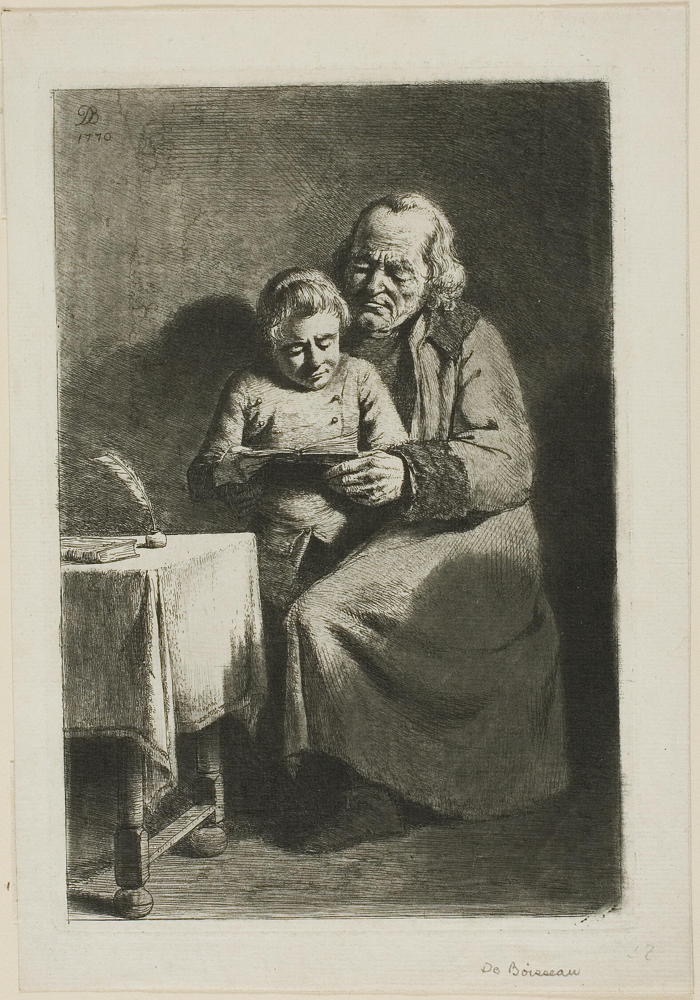
Jean Jacques de Boissieu: Old Man with a Boy Reading (1770)
Our concrete contractor, Pablo, and his crew laid a new sidewalk on the north side of our newly refurbished front porch this week, bringing us one step closer to completing our infinite front porch remodeling project. A new sidewalk serves as the closest thing The Muse and I might ever contribute to permanence here, lasting evidence that someone once lived here, evidence that should last well into the following century. This Writing Week proved to be more speculative than concrete. Change seemed prominent without necessarily feeling imminent. Our hapless administration, still apparently uninterested in administering anything, has been exhibiting some gravely serious difficulties recruiting and retaining EvilPeople in sufficient numbers to completely undermine our Democratic order. I sensed an impending Awakening. The Elites seemed teetering again, on their usual precipice of greatness … or something. I praised our sacred Jurisprudence, which has proven to be the most stalwart defender of our civic Decency. I admitted to feeling Enraged, however politically unacceptable that emotion might seem in a discussion of Decency. I ended this writing week praising the Insubordinate as the true patriot of Decency in our ongoing passion play. Thank you for following along with me here.
Insubordinate

Pierre-Paul Prud’hon: Head of Vengeance (c. 1804)
ABOUT THIS ARTWORK
A study for the figure of Divine Vengeance in Prud’hon’s celebrated paintingJustice and Divine Vengeance Pursuing Crime (1808), the head of Vengeance, who pursues Crime as an agent of Justice, brilliantly reflects the artist’s stated aim for the painting: “to give a commotion to the soul.”
Although the drawing’s blue paper has faded almost completely to gray, the work’s expressive power remains intact.
——
"The Decent direct themselves for their own damned reasons…"
Decency must be an Insubordinate act. It cannot be ordered or productively insisted upon, but must be more or less freely chosen by the individual engaging in it. One may take instruction in its practice, though this offers little beyond a grasp of its underlying concept. Practice proves different in actual practice and utterly depends on context, which shifts so that any two instances might prove the opposite of being indistinguishable from each other. Even experienced practitioners often wonder if what they just tried really represented the Decency they intended. Not even the receiver can always confirm receipt. So much of its delivery depends upon intention, which often necessarily remains implicit. Decency frequently appears in unexpected guises.
Indecencies can easily be coerced.
EnRaged
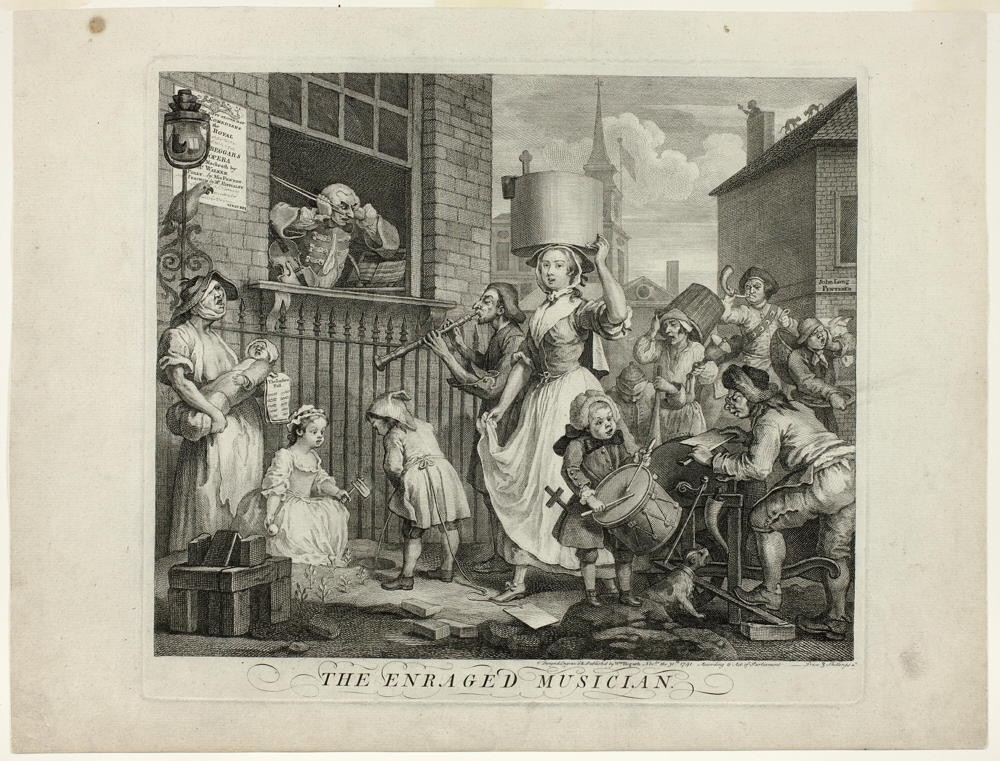
William Hogarth: The Enraged Musician (November 1741)
"Don't tread on Decency!"
Contrary to popular misconception, the Decent do not naturally lean heavily toward passivity. In some significant ways, Decency can encourage a fury, if only because it tends to sharpen sensibilities. Those incapable of properly parsing experiences, who live a more numbed existence, might find it more challenging to act out when encountering the subtly outrageous. Many infractions fail to piece together their native insensitivity. This can lead to a disturbing passivity. Those, however, more primed to sense disturbing differences might be much more easily encouraged to respond with rage, and even to complain that certain events leave them feeling EnRaged. This fury doesn’t always show, for Decency sometimes, even often, paradoxically, encourages a stifling of certain rages, lest a reaction appear equally outrageous. The resulting ‘anger turned inward’ can spawn periods of dark depression as inner frustration fails to find adequate release in outward expression.
The Decent sometimes foments dissent.
Jurisprudence
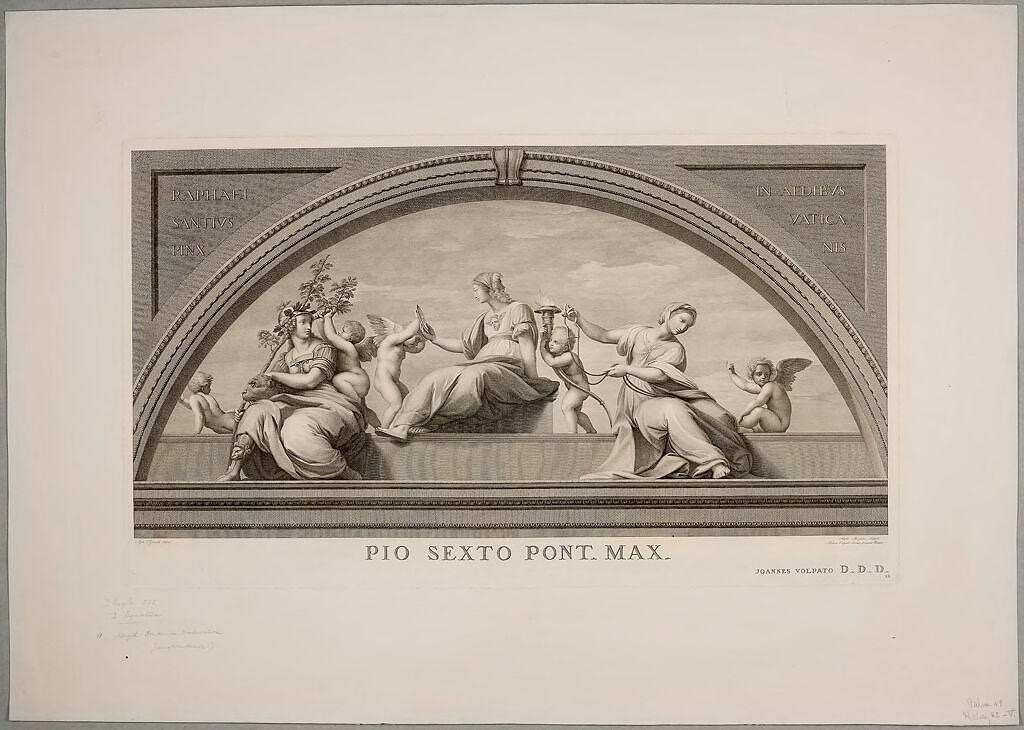
Raphael Morghen: Jurisprudence (18th-19th century)
"Even those who assault our Jurisprudence deserve justice. Decency demands it."
We hold our judicial system sacred, or we have. It has seemed imperiled lately, if only due to the sudden incursion of indecency into her hallowed halls. Our Jurisprudence was the store of our society’s civic Decency, though it has lately seen repeated attempts to degrade it. These have been mainly unsuccessful, if only due to the native ineptness as lawyers of the agents of indecency attempting to intrude. They have filed motions that don’t pass muster and suits that almost always prove frivolous. Our budding Department of Injustice turns out to actually be a department of dunces and indecencies in practice. They seem to believe that they can make anything so by merely declaring it so. However, our Jurisprudence, by which I mean our legal philosophy and long traditions, usually renders that functionally impossible, thank heavens.
Between judges chosen for their partiality and a SCOTUS half dedicated to indecency, our civic Decency has sometimes been taking it in the shorts.
Elites
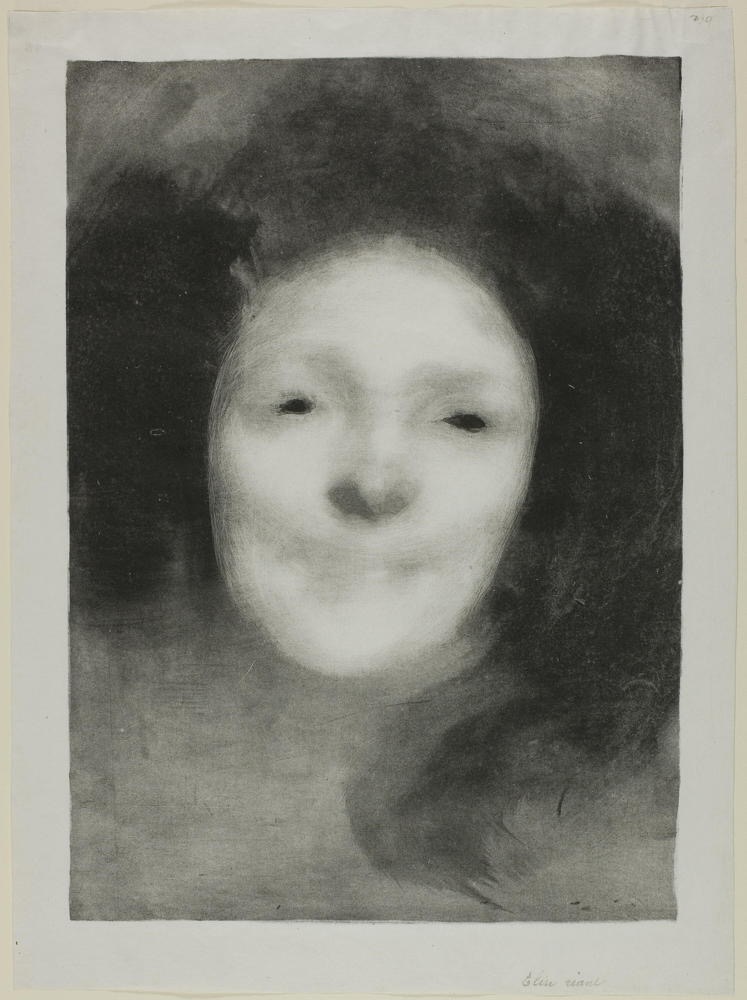
Eugène Carrière: Elise Smiling (1895)
"…they always seem to disappoint us and themselves in practice."
Some hold a belief in the absolute necessity of maintaining an Elite class in a society. History provides strong evidence against this belief. The story insists that Elites set the standards others follow and sustain society’s highest ground, enabling “regular” people to attend to lesser interests. This notion contradicts the first principle upon which this country was founded: the notion that all people are created equal. The historical record reveals many examples of Elites who, rather than serving their publics, merely served themselves. Crowned heads more often abused their power than wisely deployed it. Of all the awful notions humans have spawned, the notion of the necessity of superiority might have proven to be the worst. Yet, we still worship leaders and imagine them somehow superhumanly capable when, much more often, they’ve proven to possess feet of the most fragile clay.
Our country was founded partly to address the paradoxes that Plutocracy inevitably produces.
Awakening

Henry Duff Linton and Edmond Morin: Awakening (19th century)
"…American Dreams emerge from Awakenings."
The question of when our incumbent might start to seriously bleed supporters has been prominent in the minds of his many detractors. For us, and I consider myself a prominent detractor, it was always unthinkable that anyone might even imagine supporting him, for he seemed simply vile. His incoherence alone rendered him unsupportable since nobody has ever successfully parsed even his simplest utterances. Still, he seemed to possess some hypnotizing power, an astonishingly strange attractor, that reliably attracted and retained what he labeled his base. His base seemed at least aptly labeled, for they seemed to follow their leader beyond the depths of conventional political depravity. This devotion was truly disgusting to me. He’d famously insisted that he could stand in the middle of Fifth Avenue in New York City and shoot somebody and nobody would raise an eyebrow.
That “Teflon Don” capability seems to have started weakening lately.
EvilPeople
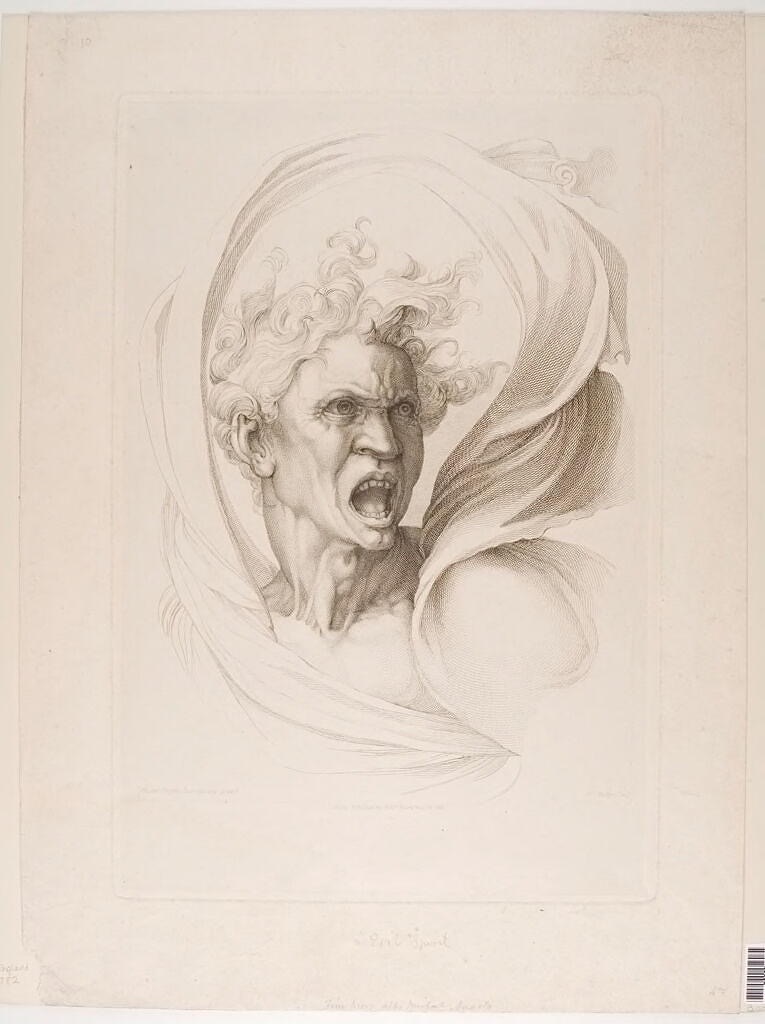
William Sharp: Evil (18th century)
"…never in sufficient numbers to succeed, thank heavens."
A promising dispatch from the front lines of The War On Decency reports an apparent sharp decline in the ready availability of additional EvilPeople to populate the ranks of the administration uninterested in administering anything’s many anti-Decency programs. Reports indicate that hiring and performance bonuses have proven inadequate to attract sufficient numbers of eager candidates. Further, a reassuring swell in voluntary resignations has only added to MAGA’s staffing problems. It seems that officials grossly overestimated the number of Americans who would voluntarily stand against their fellow citizens. This shortage was reportedly the deciding factor behind our incumbent ordering National Guard troops to be mobilized into our cities. Adequate numbers of volunteers refused the assignment. Now, though, with courts refusing to permit our incumbent from deploying the National Guard against citizens, the whole movement seems increasingly imperiled.
Their naive belief that we would not prove to be Decent people under pressure has apparently bitten them in their collective ass.
Weekly Writing Summary For The Week Ending 11/13/2025
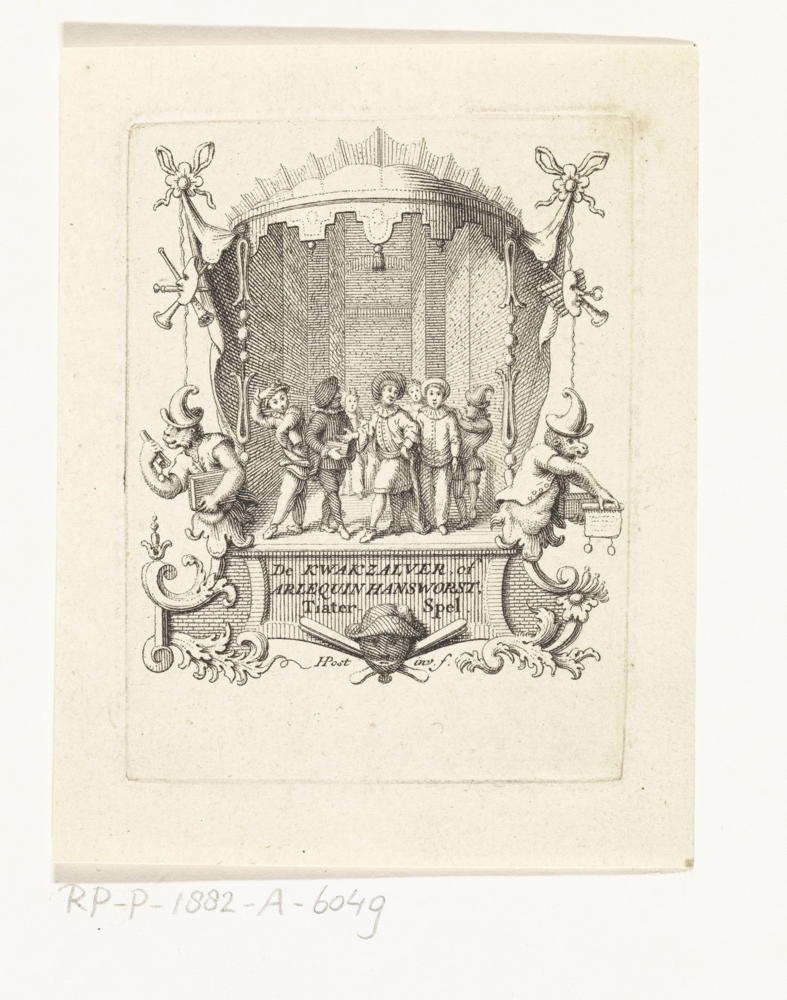
Hendrik Post: Title vignette of "the quack" (1718 - 1751)
Vignette with a group of actors inside an ornamental frame with musical instruments and masks and two monkeys with zots hoods, holding books and documents with stamps. The title of the farce is on a wall under the stage.
This writing week proved to be a genuine discovery. As usual, I set off on this adventure not understanding the purpose of the excursion. I consider this factor to be de rigeuor. If I planned beforehand or (shudder) outlined the trip before I took it, I sense that I might have leached most of the eventual potential out of it. I entered naked and, right off the bat, I hit at least a double into the corner with ThanksTaking. In this venial season of political degradation, it made perfect sense (and I make no overstatement suggesting this) to downgrade the usual, familiar Thanksgiving celebration to the level of the typical druid appreciation: roasted gruel with a side of sour cide, instead of the usual turkey with trimmings. I then entered into a short series of side-explorations, considering the relationships between Decency and Disgrace, Disgust, and Misdirection. I then slipped into a half-remarkable question: What might be the MotiveToDecency, given that it offers no clear evolutionary superiority? I ended this writing week admitting that I've been increasingly resembling one of my old nemeses, whom I had always considered somehow beneath me: the venerable and disturingly similar to me, the ever-Decent Mr. Magoo! Thank you for following along on these voyages of discovery!
MrMagoo

Eyeglasses, in case, Archival Material (20th century)
Collection of Barnett and Annalee Newman
"Wisdom comes from noticing the ridiculed other is us.
Acknowledging this preserves Decency."
MaGoo was a Decent man by most accounts. He was never accused of intending cruelty. Quite the opposite, he was, by all accounts, an innocent, guilty of perhaps, at worst, naivety, at best, a tenacious ignorance. He never knew what he didn’t suspect, and he apparently never suspected anything nefarious about anybody, including himself. His sole sin, if, indeed, this could be counted as a sin, was his steadfast refusal to wear glasses. Being extremely near-sighted, this insistence produced hilarious results as he continually misidentified virtually everything he encountered. He could have easily qualified as The Man Who Mistook His Wife For A Hat, had he been married. He was not ‘touched in the head,’ as was often said in his day, but tenaciously ignorant of the world he inhabited. Because he never knew better, he never suffered. He continually encountered life-threatening situations without once suffering any adverse consequences. It was as if he carried a guardian angel on his shoulders, or one carried him on hers.
In my youth, I watched MaGoo’s antics as portrayed on a cartoon series.
MotiveToDecency

William Merritt Chase: Alice (1892)
"It's me, mustering my own Decency for its own sake. That's plenty."
It doesn’t seem fair that Decency doesn’t bestow special privileges on those who practice it. The Decent get sick and die at pretty much the same rate as the indecent do, so Decency might not provide any evolutionary advantage. Likewise, we see Decent people being taken advantage of, despite their good records. Decency also seems like a difficulty when compared to its alternatives. Just appearing upstanding can prove exhausting, and maintaining a Decent reputation can sometimes seem life-threatening. Those who cut corners without remorse might seem to inhabit the most advantageous universe. Someone else absorbs their overhead costs while Decency spends extra resources dotting their ‘t’s and crossing their ‘i’s. Why?
The MotiveToDecency mystifies me.
MisDirection

Jean Daullé: The Magic Lantern (1757)
"Why, then, does Decency so often prevail?"
Contrary to popular misconception, Decency is not necessarily in a competition with indecency. They might both exist on some imaginary continuum, but that line bisects dimensions as well as linear space. It’s more diagonal than level, and not necessarily a straight or narrow line connecting the two poles, which cannot be adequately characterized as opposites without ignoring some rather obvious similarities. One continuing challenge stems from the straightforward-seeming notion of good and bad, beneficial and evil. Decency isn’t necessarily without sin, and indecency doesn’t always qualify as even a venial sin. Decency might satisfy convention while offending with pretension. Indecency might occasionally be absolutely necessary. Let he without indecency cast the first stone.
Indecency might seem to lack the discipline necessary to fully abide by the rules.
Disgust

Pieter van den Berge: Disgust (1675 to 1737)
A man, and face, sitting on the ground, his legs and arms rejecting to the left.
"We bring the conversation around to less upsetting topics before the dessert course gets served to aid digestion."
I feel odd mentioning this, but I’ve been noticing Disgust being expressed whenever Decent people gather these days. I’d never before closely associated Disgust and Decency, but upon deeper reflection, I suppose it makes sense that they might commonly appear together. You see, the Decent possess a palate capable of sensing the sorts of dysfunction capable of producing Disgust. Some seem to be able to engage in most any lowlife activity without turning their stomach, while others find revolting displays entertaining. Those who find cage fighting diverting, for example, probably aren’t the same ones who attend symphony concerts. I understand that the standards by which audiences judge performances have changed over the generations; nobody gives a second’s thought these days to watching a bloody murder mystery over dinner.
Some core discerning Decencies remain.
Disgrace

Anonymous Italian, Venetian: Book IX.5.
Roman consuls are sent under the yoke of Samnites
and are exposed to disgrace {Primae Decadis Liber Nonus p. LXXV}
Series/Book Title: Illustrations from Livy, Decades. Venice, Philipp Pincio, September 27, 1511
(1493)
"Wherever Decency seems endangered, some Disgrace is being denied."
Indecency seems to be somehow related to Disgrace, though I’m uncertain which serves as the chicken and which as the egg. Does indecency follow Disgrace, or does Disgrace trail indecency? I sense that Decency does not know Disgrace intimately, if at all, and that Disgrace often accompanies a fall, again, as either cause or effect, perhaps either. What does it matter? I’m toying with a proposal that indecency often accompanies Disgrace and seems to be frequently employed to attempt to cloak its presence. A fear of Disgrace might frequently justify indecent behavior, such that where indecency thrives, Disgrace appears to be hiding nearby. In this sense, indecency serves as a tell that some potentially embarrassing truth might be lurking. What might seem like run-of-the-mill cruelty, for instance, might distract from some deeper depravity.
Certainly, where indecency seems to thrive, depravity seems to follow right behind, or perhaps it leads.
ThanksTaking

Jacques Callot: Avarice -
Series/Book Title: Seven Deadly Sins (17th century)
"Our fathers grant to thee, expanding liberty, of this we sing. Land where our father's tried to live genuinely Decent lives, protect us by thy light, let freedom ring!"
Continuing their War on Decency, the administration, utterly uninterested in administering anything, continued eroding our foundational liberties by severely wounding one of our most treasured traditions: Thanksgiving, and defiling it by denying food assistance to the most vulnerable thirteen percent of our citizens, thereby eroding the sense of plenty usually accompanying the harvest season, replacing it with a deepening sense of dread. Further, the Federal machinery began dismantling our air traffic control system by withholding air traffic controller paychecks, prompting them to call in sick in record numbers, resulting in a spate of near misses, clear signs of an overloaded system. The administration began shutting down pieces of that system, cancelling service, thereby threatening the usual migrations homeward common to this season. Thanksgiving has this year been subsumed by a deepening sense of ThanksTaking.
Who thought it possible that anyone or anything could deeply wound our native optimism?
Weekly Writing Summary For The Week Ending 11/06/2025
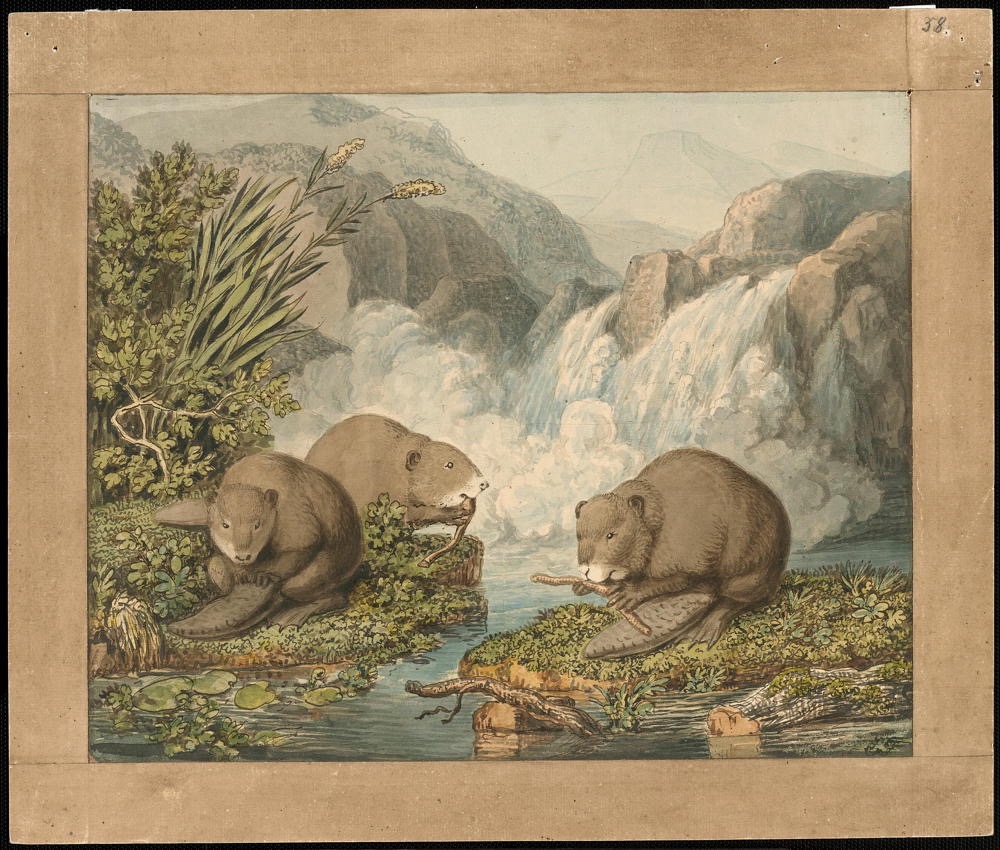
J. H. W. Tischbein: Three Beavers Building a Dam (c. 1800)
ABOUT THIS ARTWORK
Johann Heinrich Wilhelm Tischbein experimented with animal physiognomy in many drawings. Inspired by the Swiss philosopher Johann Kaspar Lavater, the artist believed a person’s character depended on the animal he resembled. As Tischbein wrote in 1796, “I have undertaken another [series of drawings] in order to learn more about man. To make this study easier it is necessary to begin with beasts, since they are easier and their characters more evident.” Traditionally busy animals, these furry beavers exhibit human expressions as they focus diligently on the difficult task of stemming an exuberant waterfall.
This writing week brought an end to Daylight Saving Time, ushering in my overlong season of early darkness and gratefully earlier sunrises. I was going to be up anyway, so I appreciate early daylight almost as much as I revile early dusk. This writing week also marked the end of the overlong baseball season, a national pastime that consumed more than its fair share of my time toward the end of the Series. Halloween visited, christening our refurbished porch with treat-seekers and kid footprints. I celebrated with Treating. I explored the metaphor of Decency as Dust. I found it surprisingly satisfying before delving into barking Madness, not as metaphor but as practice, as presently practiced by our increasingly hapless incumbent. I explored the proliferation of what I labeled ‘UmUrgencies,’ ineptness-caused emergencies invariably responded to ineptly, too. I found some solace in writing about Derision’s generally impotent attempts to discourage Decency. Then I ended this writing week by reminding myself and my readers that Decency almost exclusively comes in remarkably small packages. Thank you for following along here!
SmallDecencies
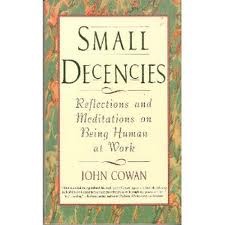
M.E. Edwards: Full of worries (1892 - 1905)
Gallery Text: Sheet with 6 representations of different kinds, including representations of a man who finds a sick boy on the street, a traveler who eats his bread and a man who makes wooden dolls. Between the images, verses in book print.
"Decency seems to reliably visit only those not desperately searching for it."
It might be way past time that I clear up one possible misunderstanding: Decencies almost exclusively come in very small packaging. I’m not denigrating grand gestures, for those most certainly have their place. Nor do I badmouth the occasional excesses which add that certain celebratory spirit to life. The grandiose and even the gross definitely have their places, but neither proves necessary nor sufficient to induce the genuinely Decent. Decency almost exclusively appears in tiny sizes, and even when it seems to appear in one of the larger ones, it tends to be some attribute of the thing that carries the Decency within it. The balance usually turns out to be packaging.
The often disappointing attempt to produce grand changes tends to be entirely overshadowed by the tiny, thoughtful gift —the kindergarten artwork, rather than the Hope diamond.
Derision
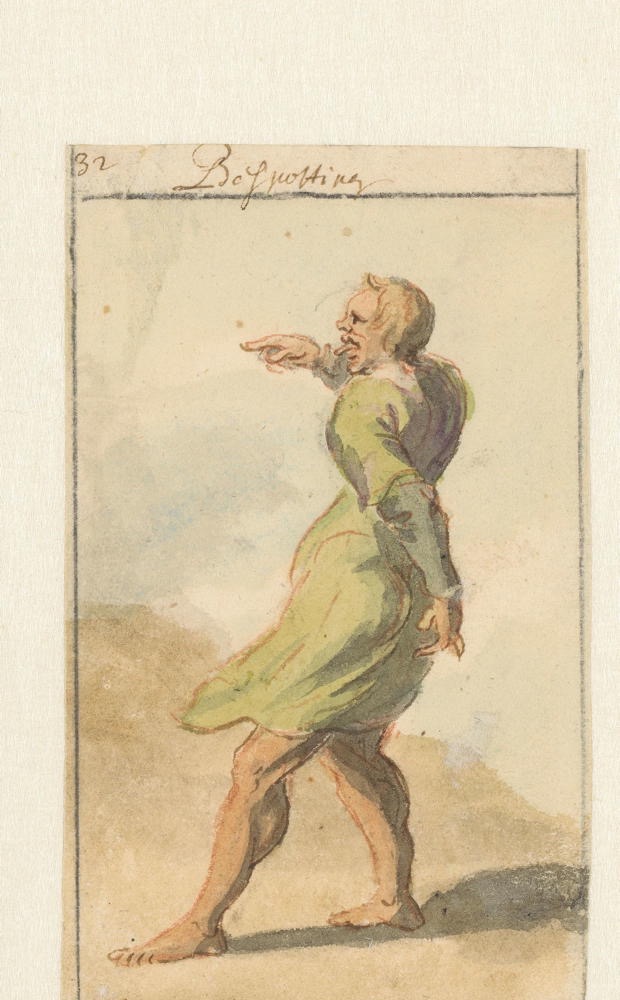
Pieter van den Berge: Spotting (1675 to 1737)
A standing man with his tongue stuck out and his right hand pointed raised.
"…indecency exhausts itself with its own irrelevance."
Few compliments seem less complementary than Derision, but it tends to be the praise of choice when passed from the indecent toward the Decent. The indecent hold limited resources, certainly less vast than Decency ever commands, so they compensate by making loud noises and dramatic gestures that signify little and mean even less. In any odd moment, their advantage, if only represented in volume, might appear to be overwhelming. They do the lizard dance where they stand tall on their skinny hind legs to appear much larger and more powerful than they actually are, relying upon startle reflex to balance what they not mistakenly understand to be uneven scales. Decency learns not to take those threats too terribly seriously, however otherwise terrible they might seem.
Decency learns this lesson in the oldest of the old-fashioned ways.
UmUrgency
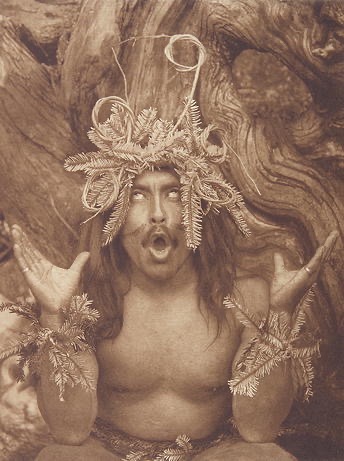
Edward S. Curtis:
Hamatsa Emerging from the Woods - Koskimo
(c. 1914)
“Nobody ever better deserved one of those handbaskets they say we should order.”
Never a day slips by or an afternoon recedes without another crocodile emergency appearing. The indecent house of cards our incumbent and his regrettable cabinet have constructed continually threatens to crumble. They have 911, or its equivalent, on speed dial. It’s always the same pattern: someone tried, or usually actually managed to hoodwink them into believing, but it turns out they were misled. Another hasty response was absolutely necessary lest some situation threaten to get resolved. Each intervention only serves to deepen each dilemma until the administration, which never had any intention of administering anything, feels forced to administer something. Their disinterest seems most manifest then, for their proffered solution always makes the situation worse, often much worse. Then they declare another unqualified success, by which I mean another action in no way qualified to be classified as successful. Then, action properly defended to their own satisfaction if no others, they return to parade rest until another inevitable UmUrgency interrupts their distraction again.
The rhythm of these disruptions has become perfectly predictable.


